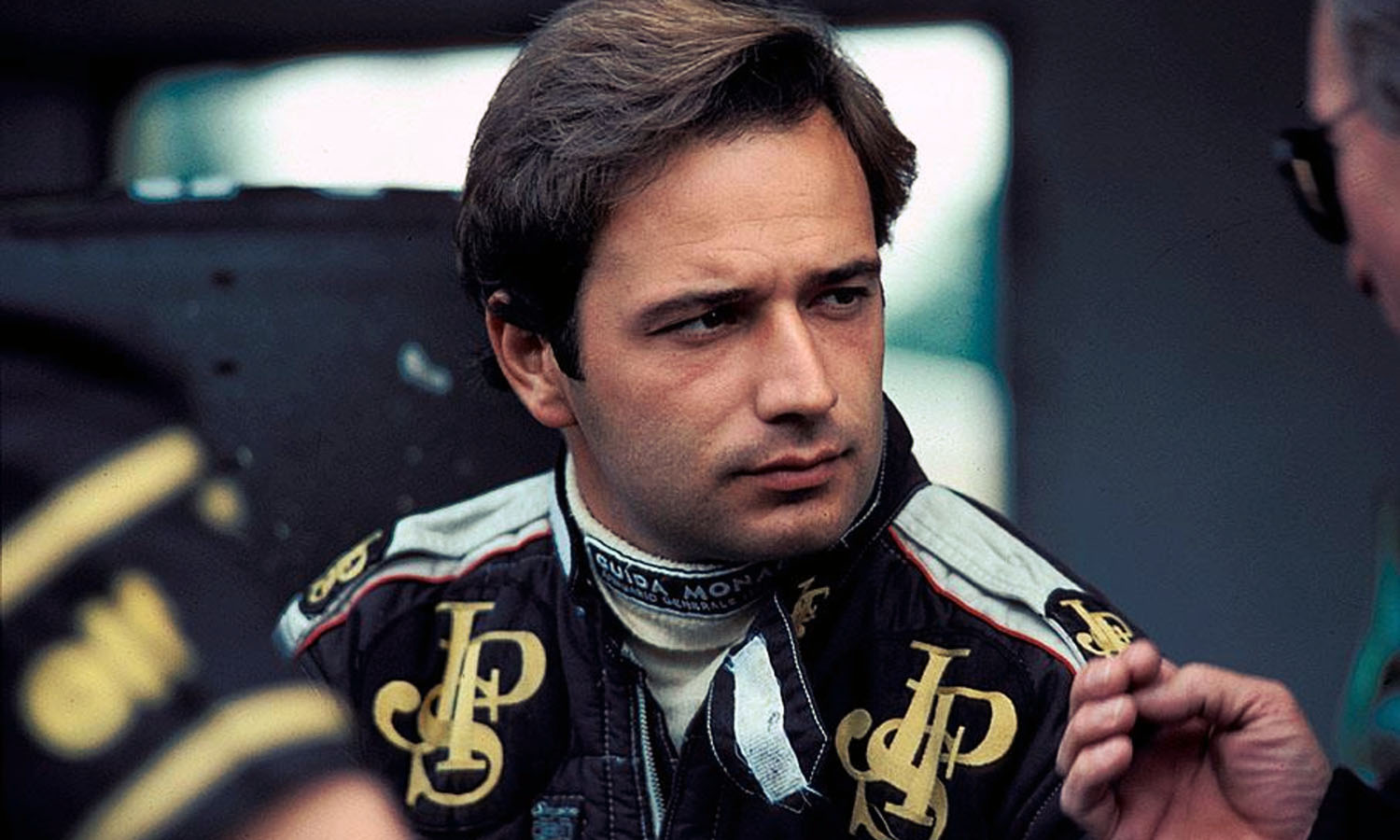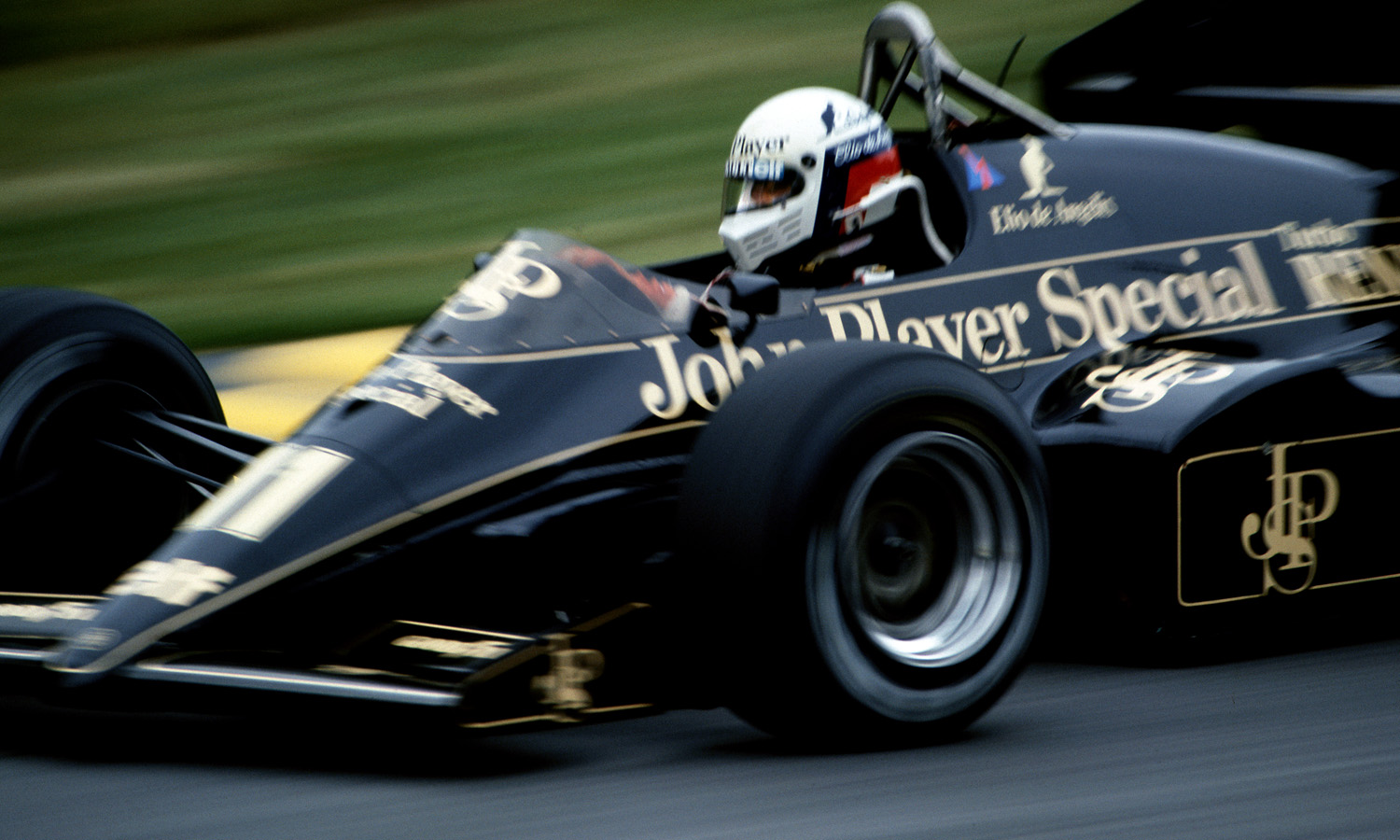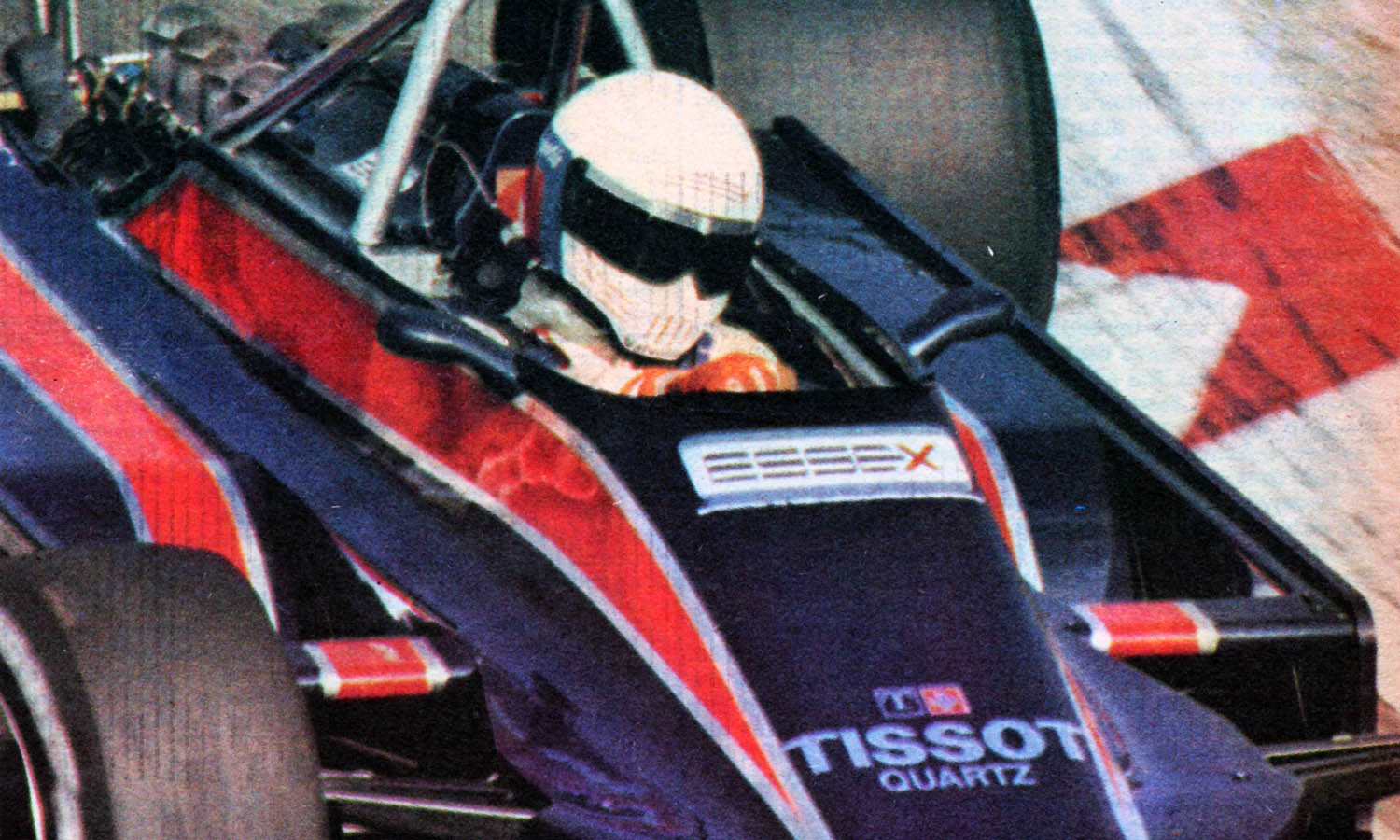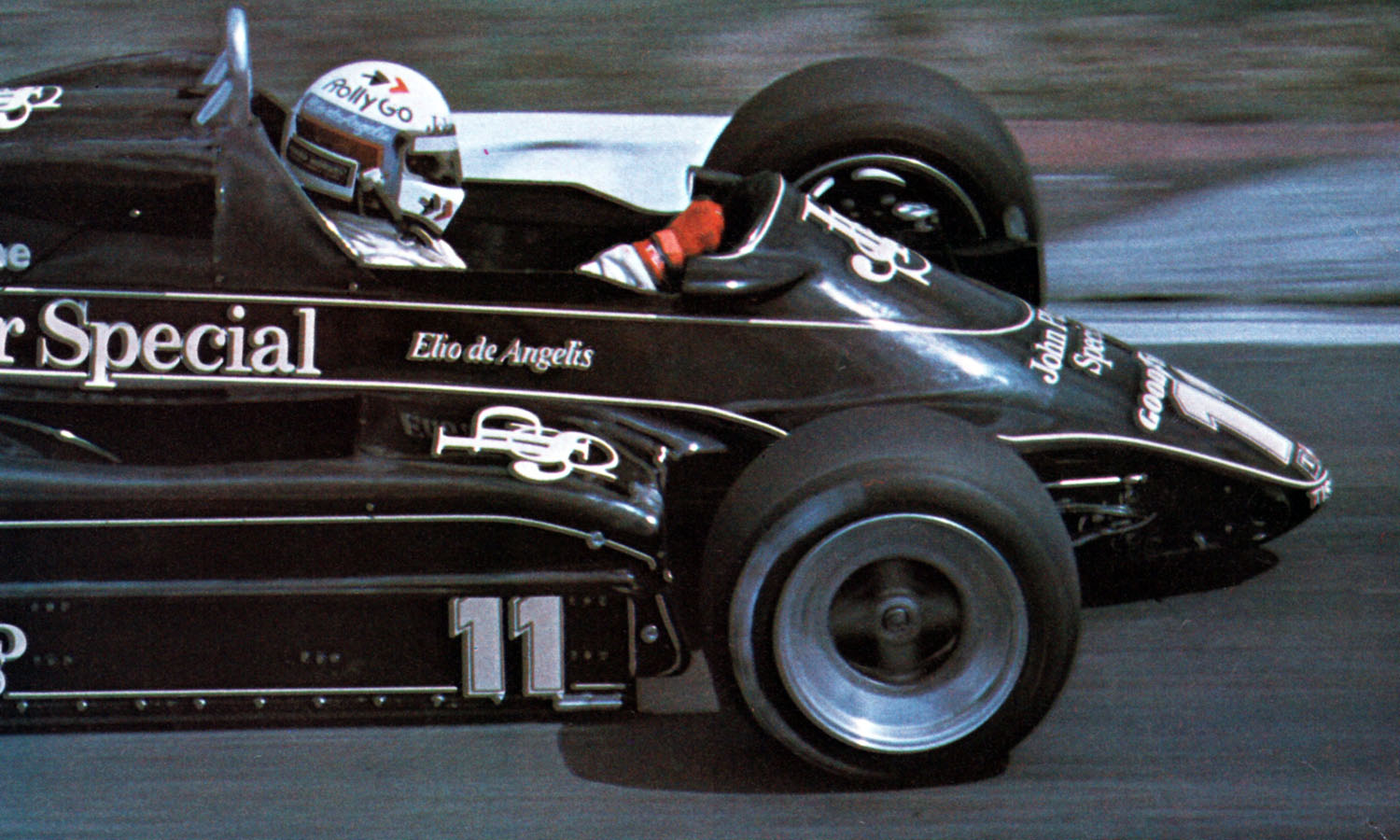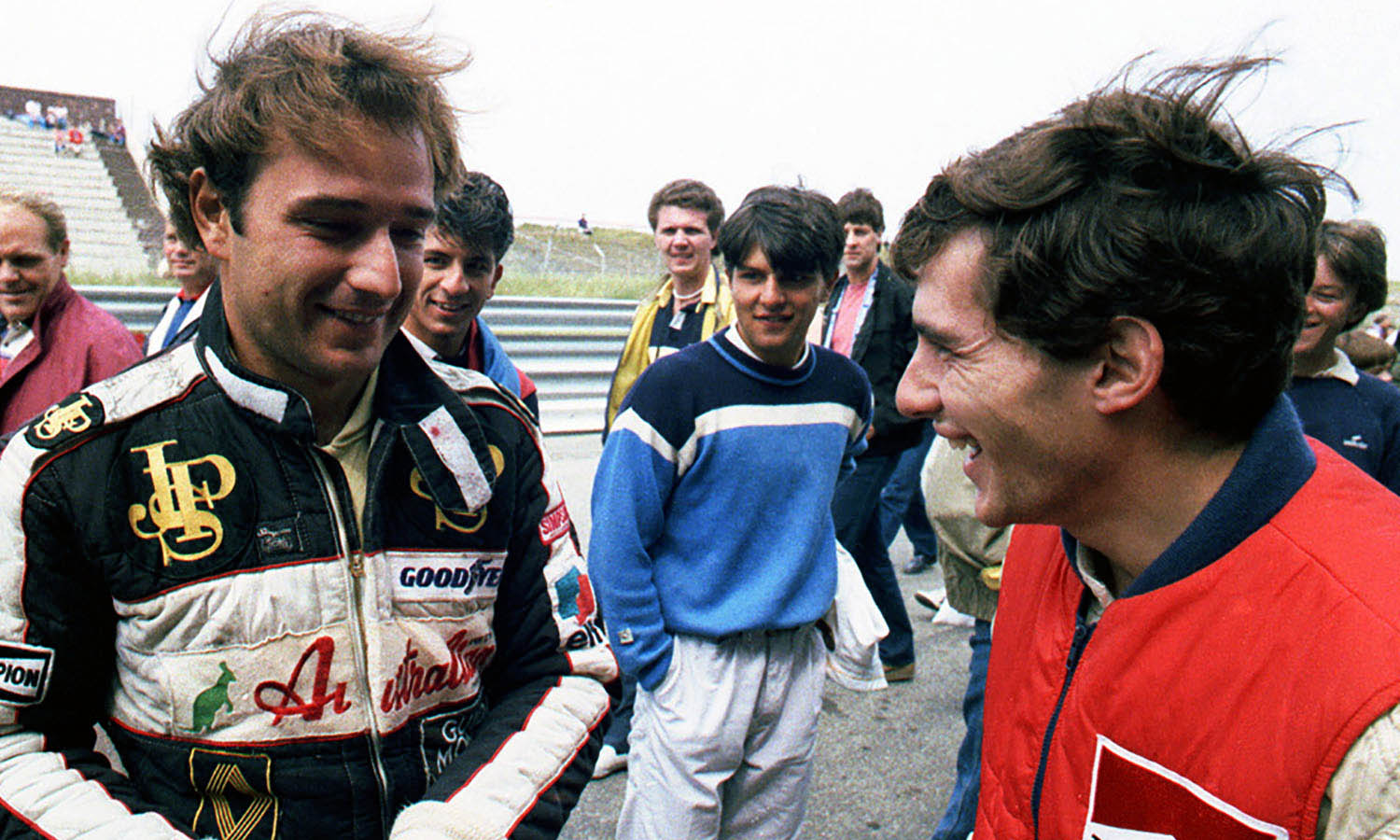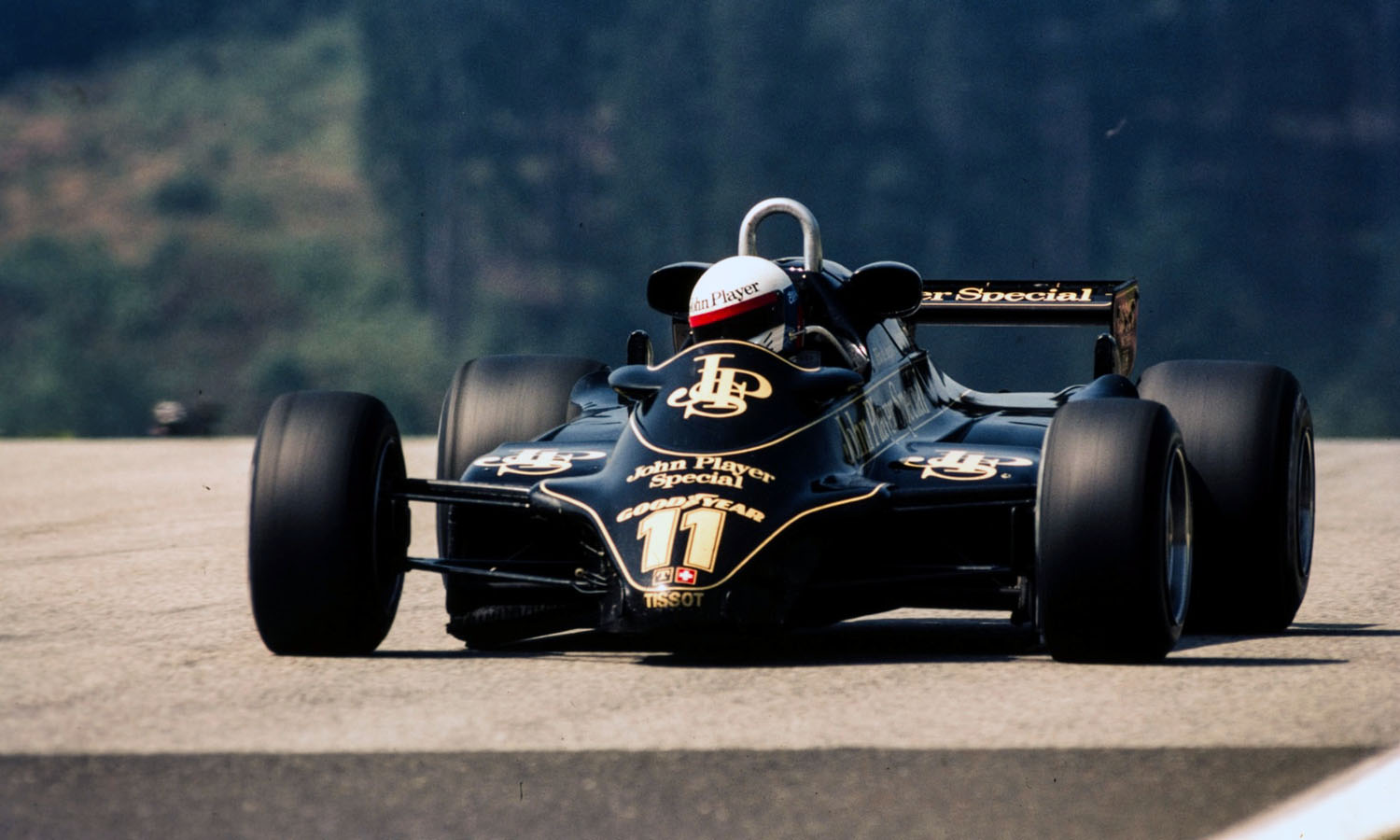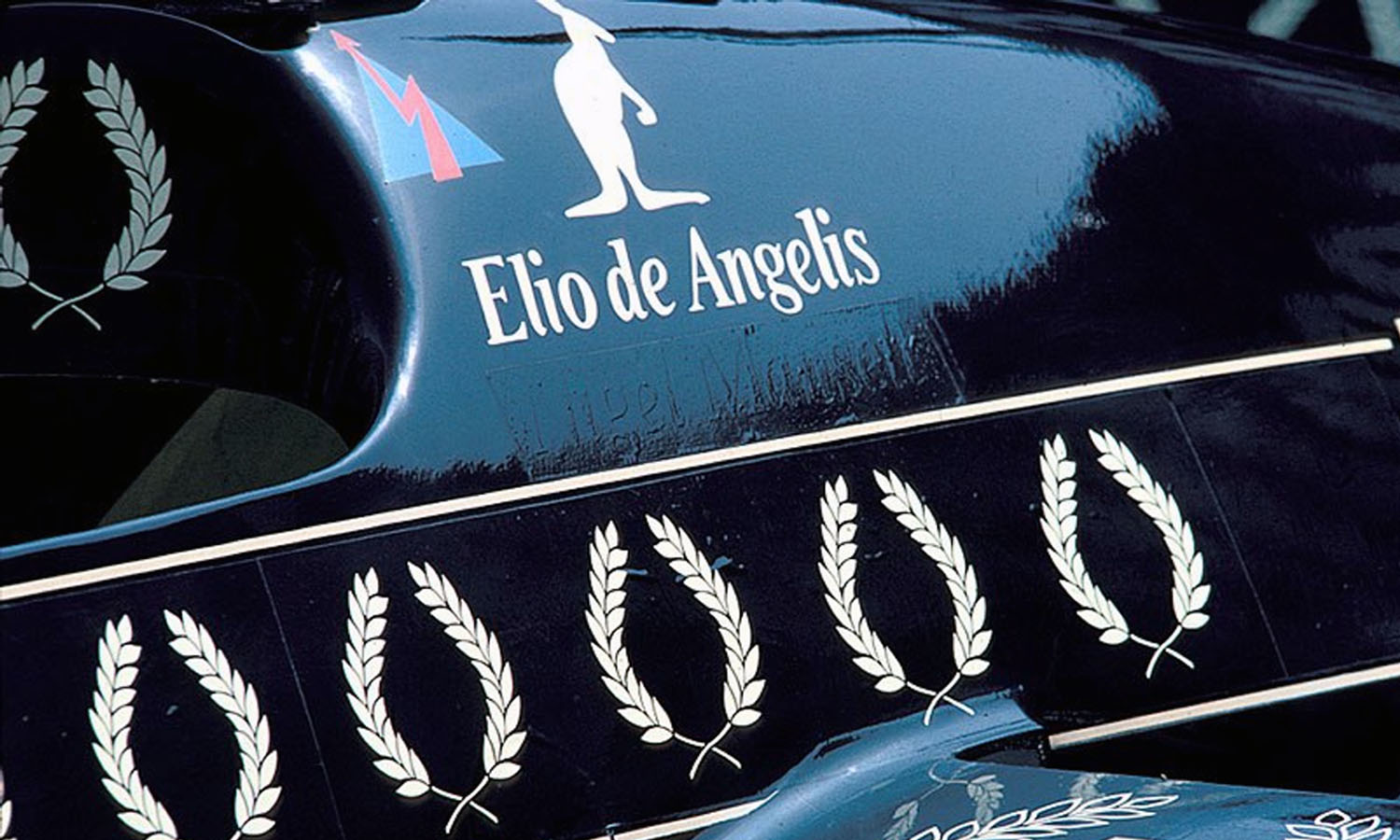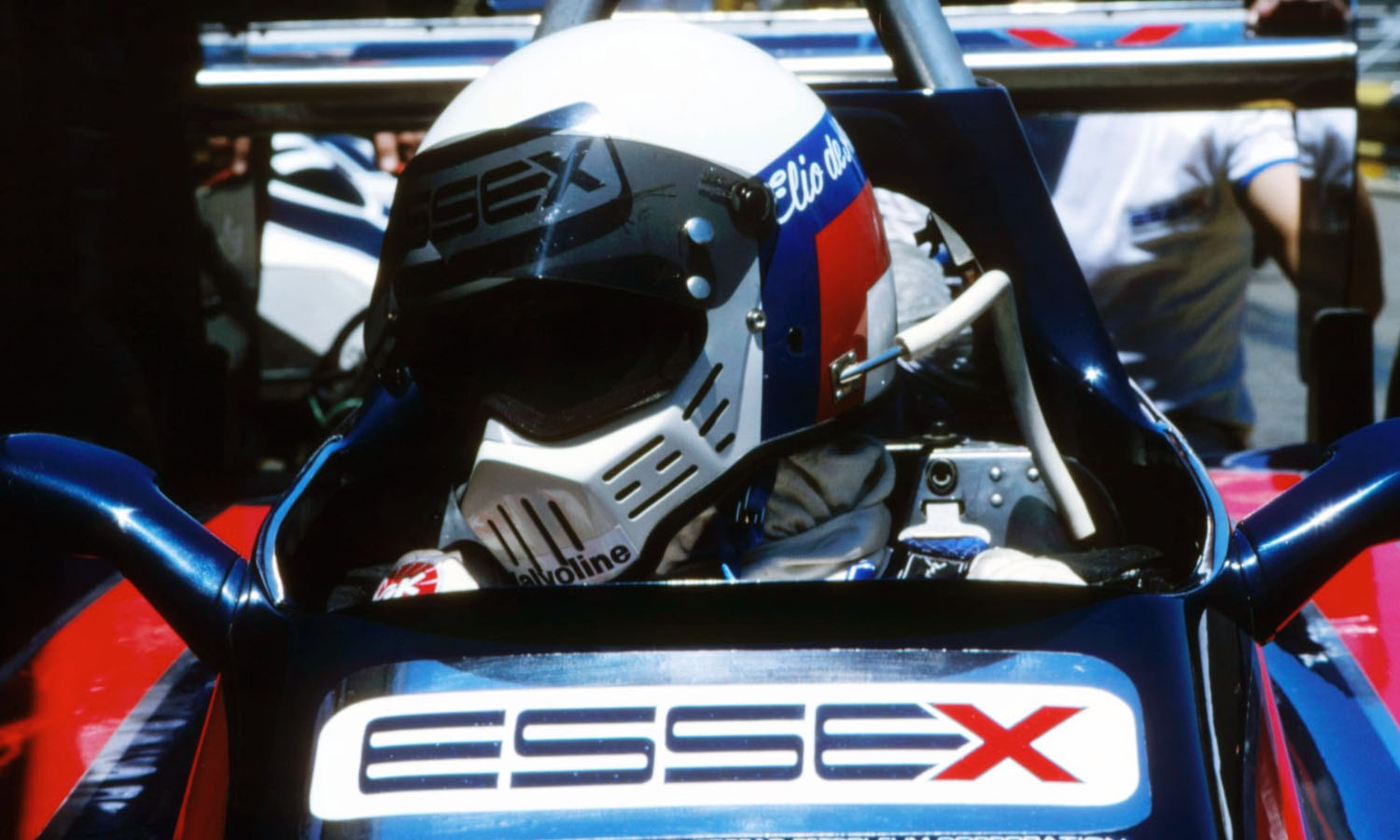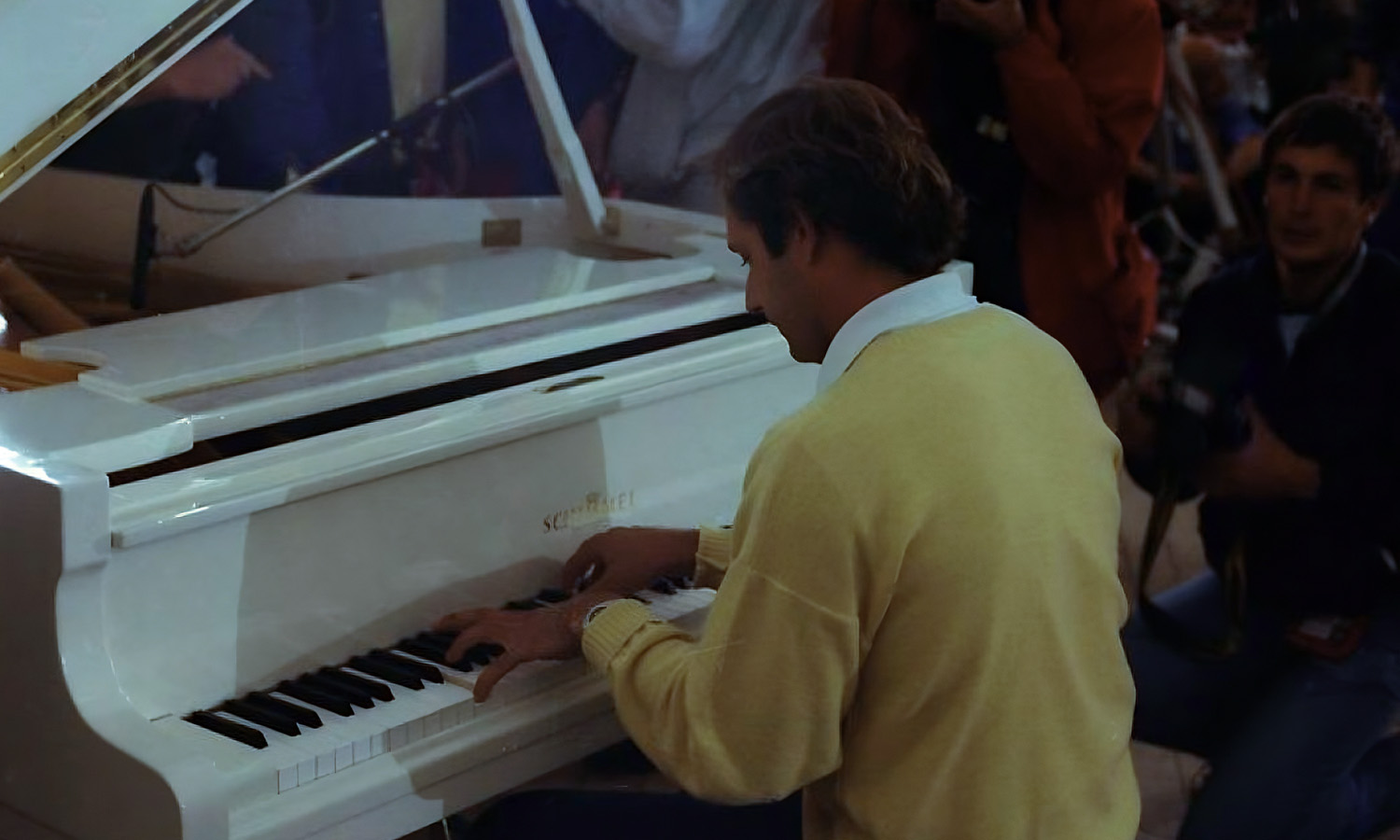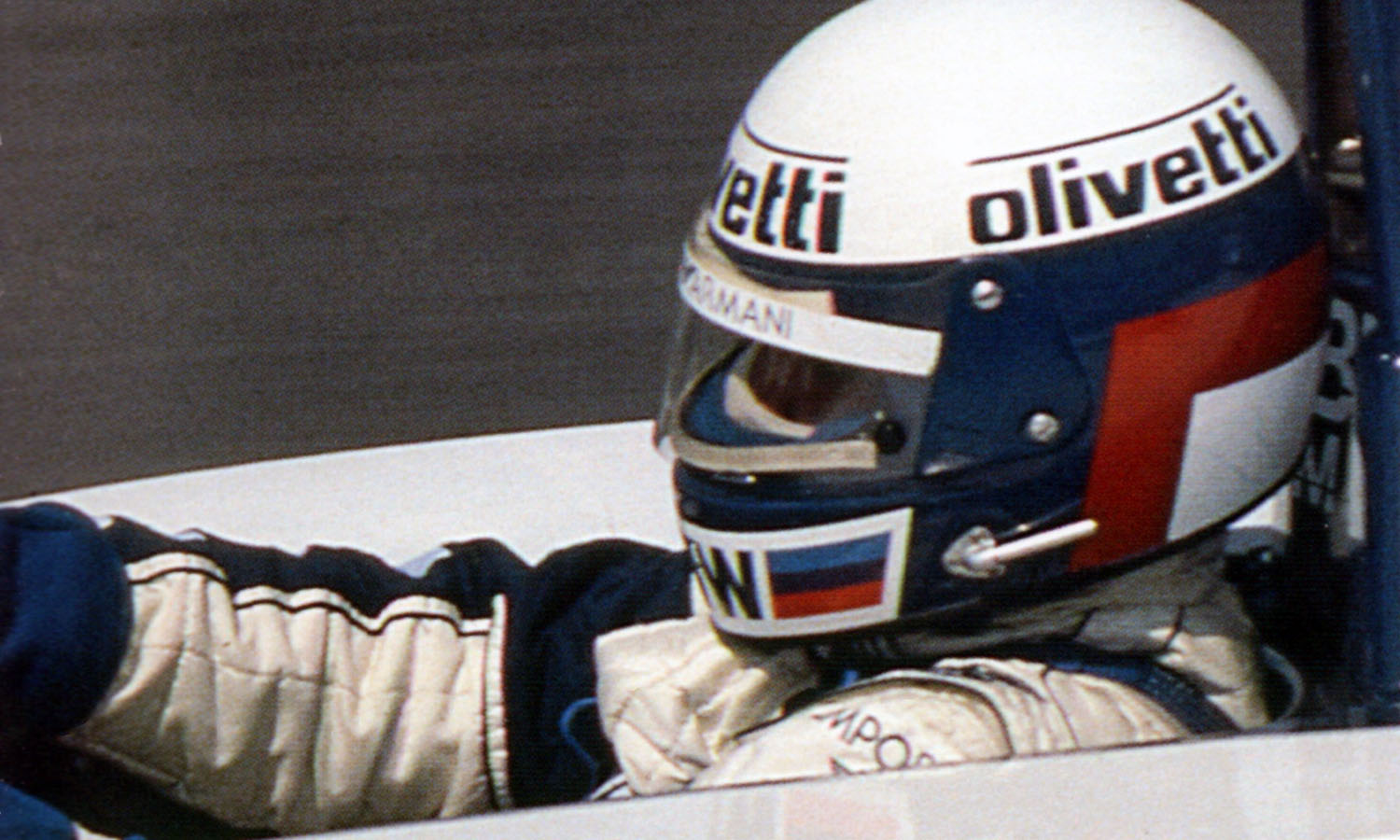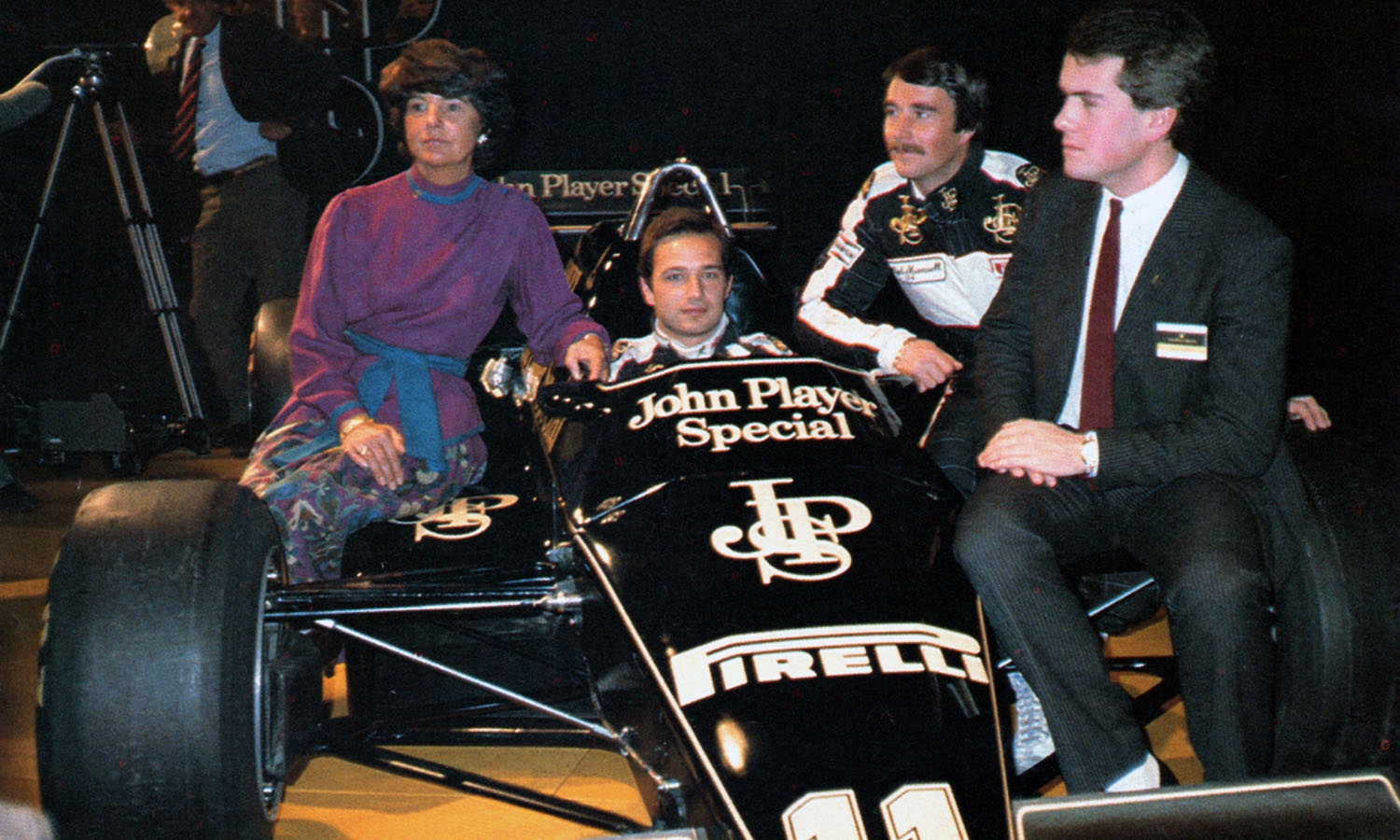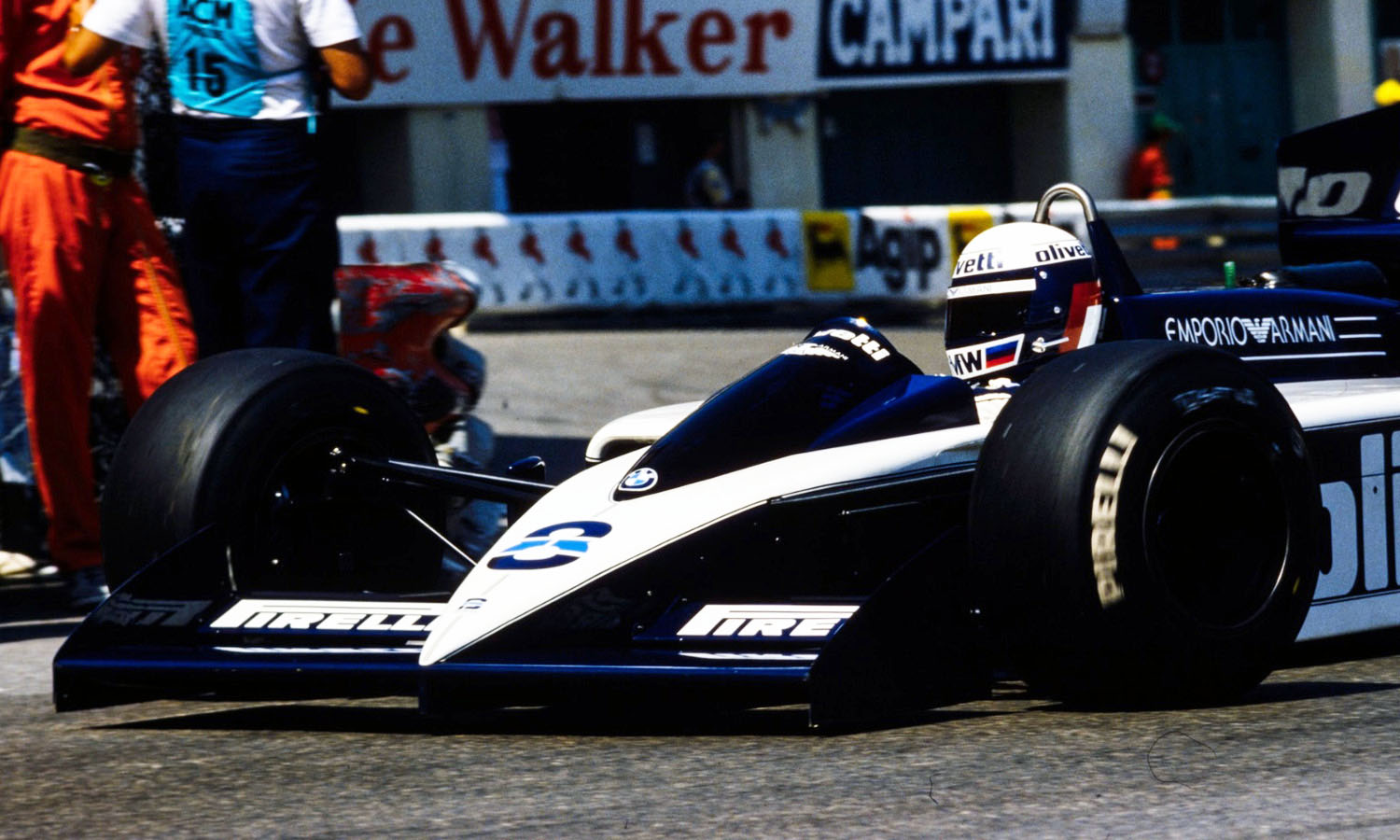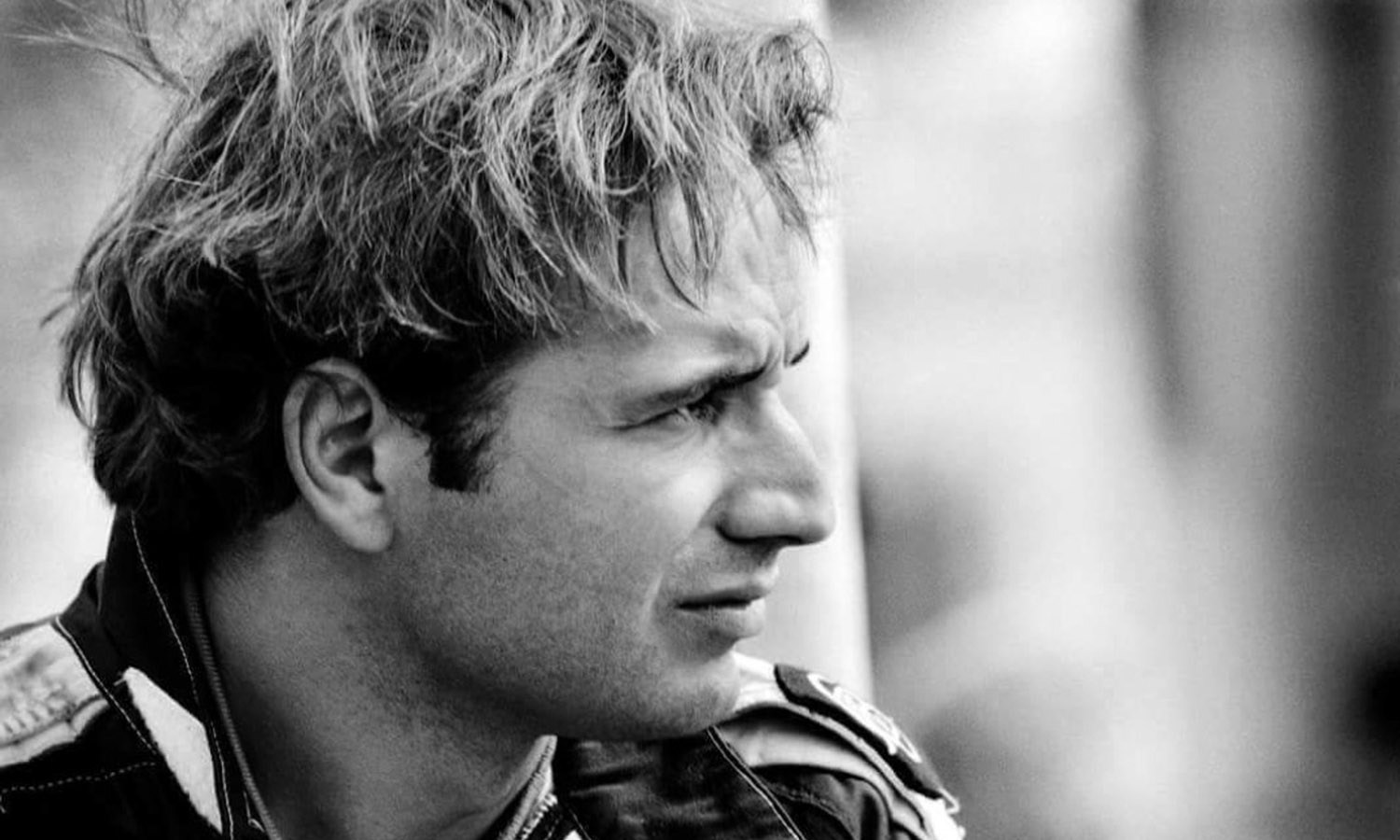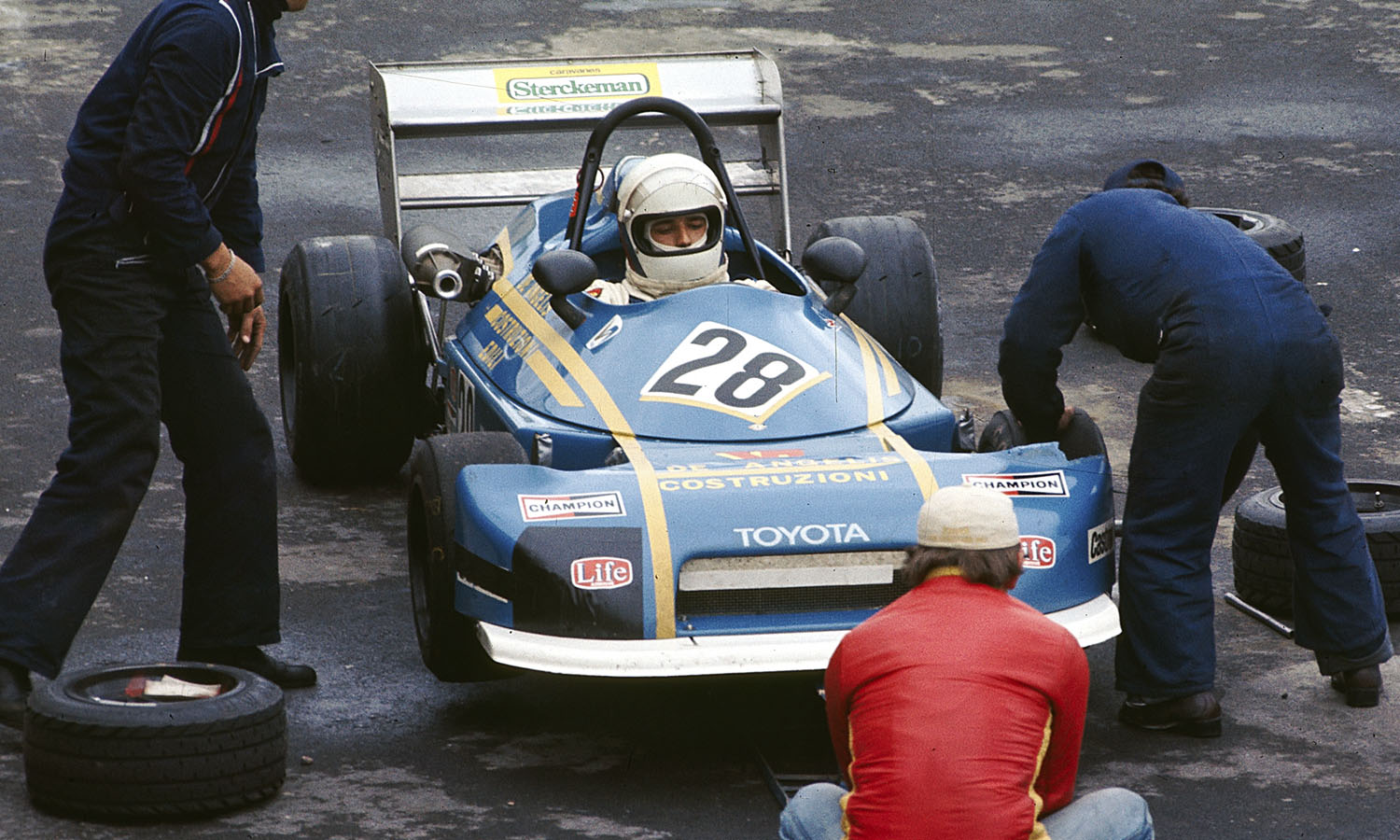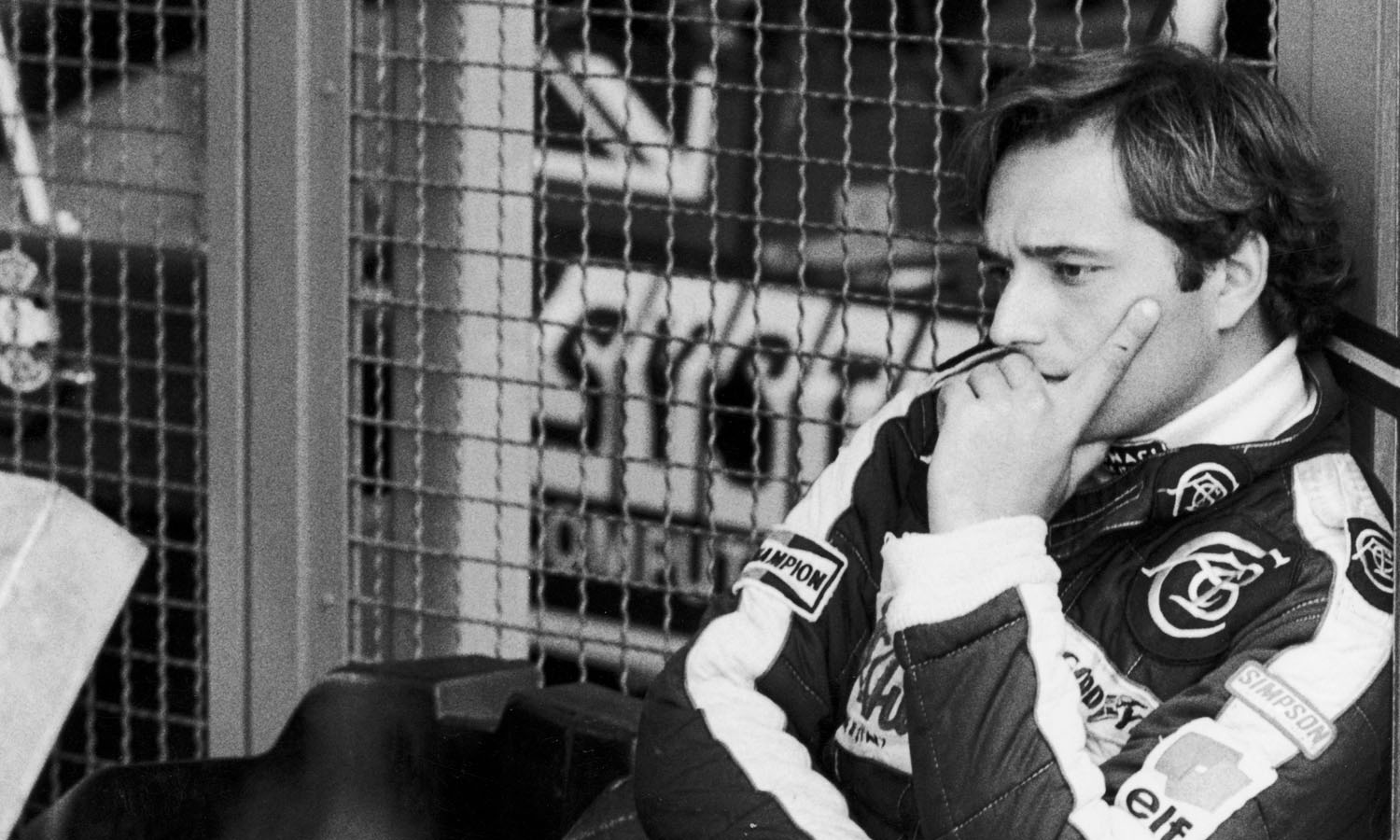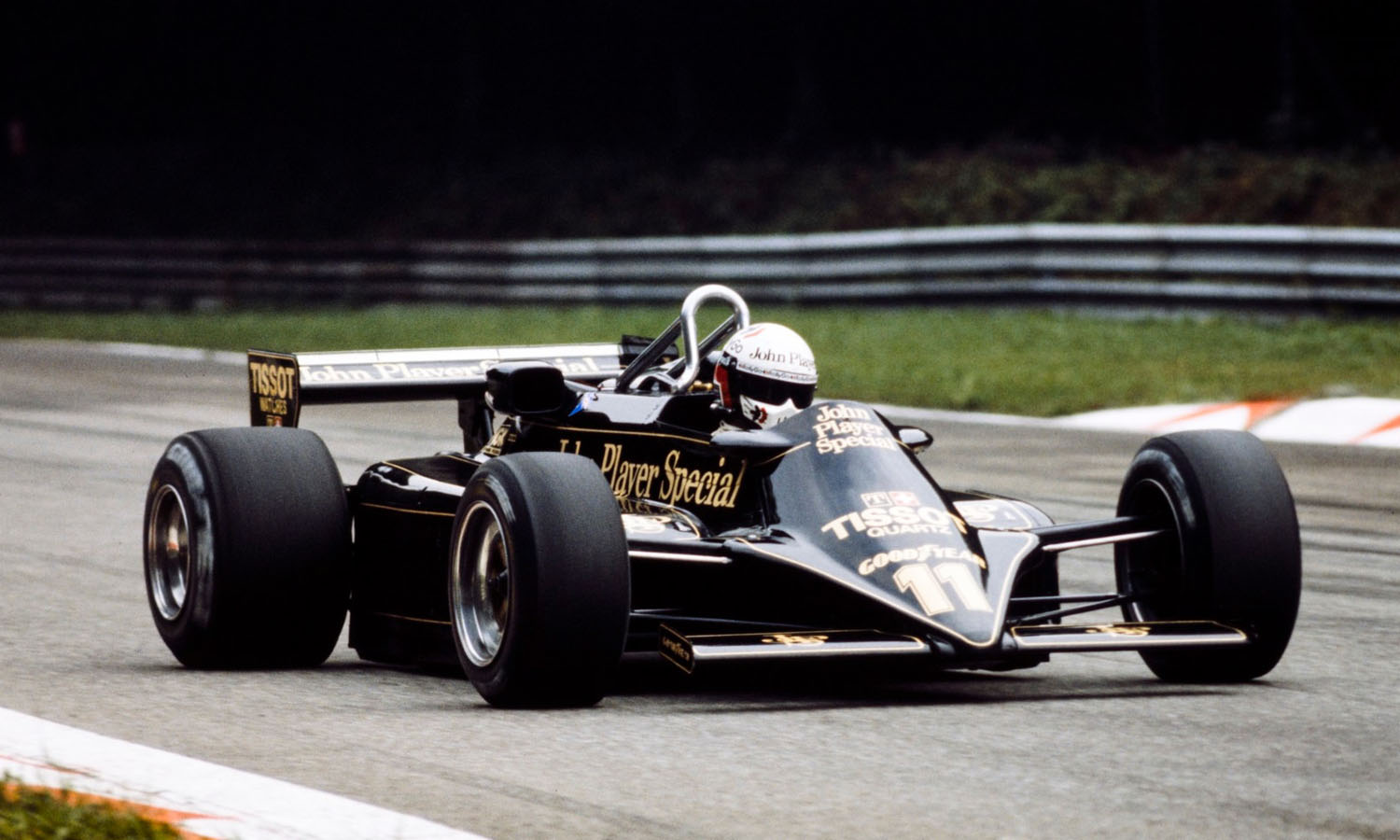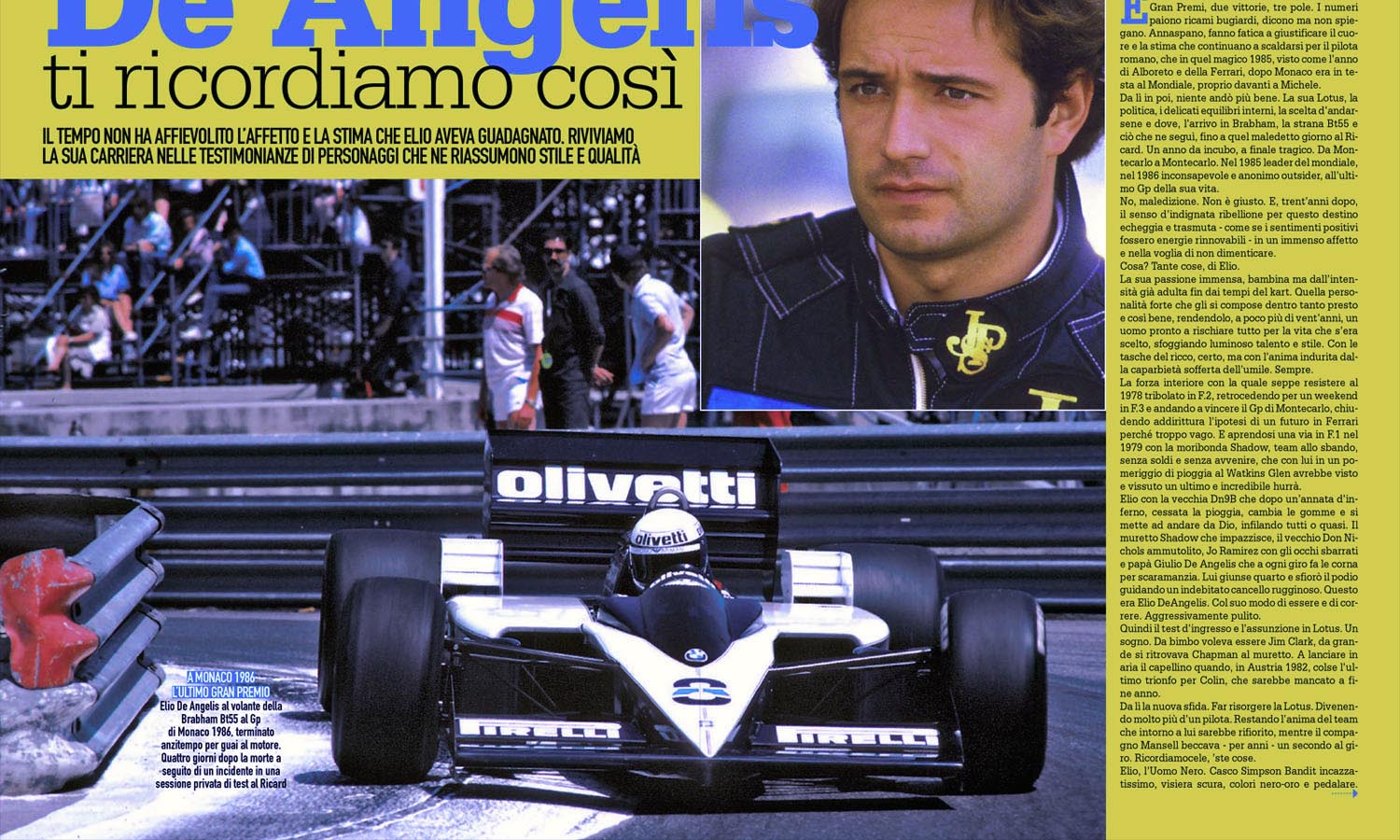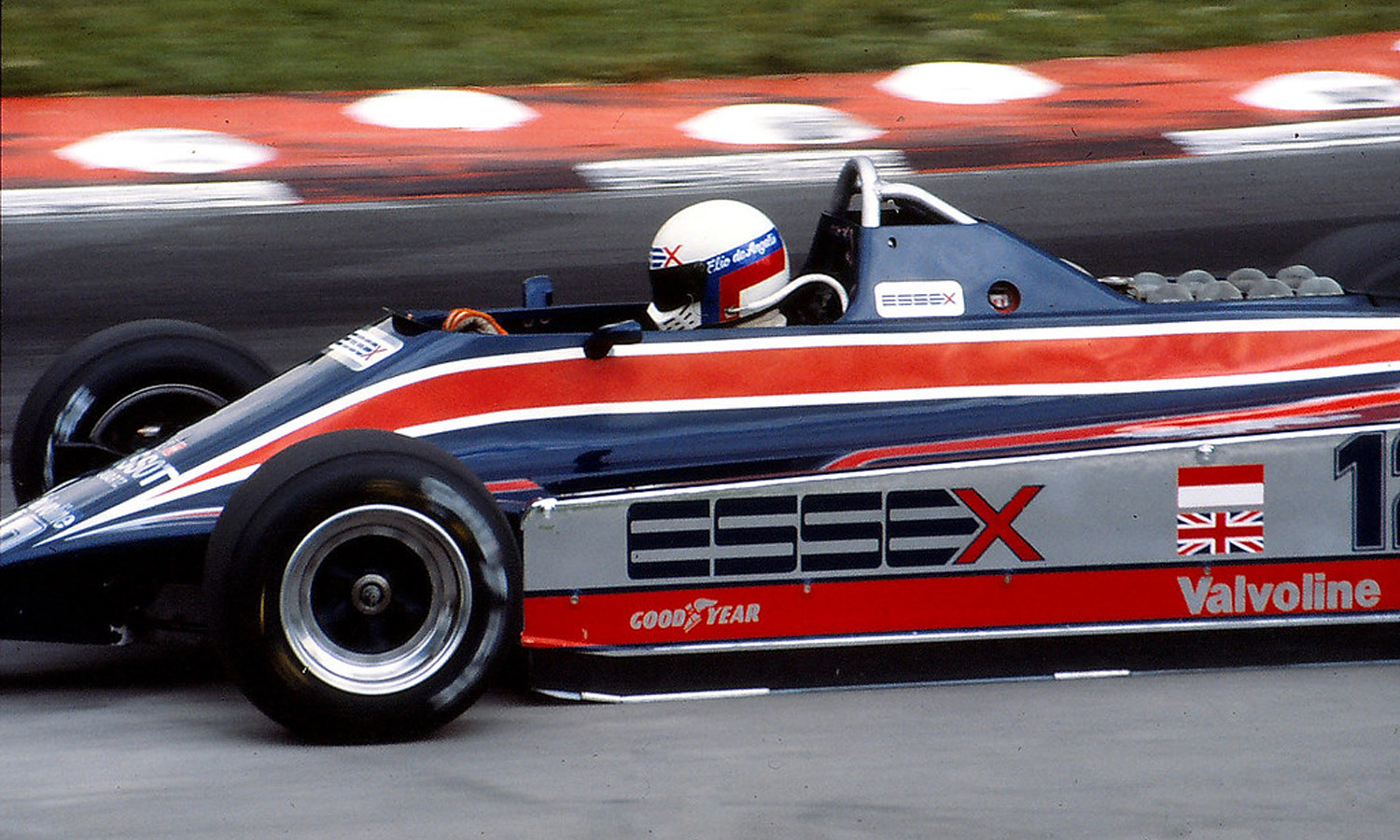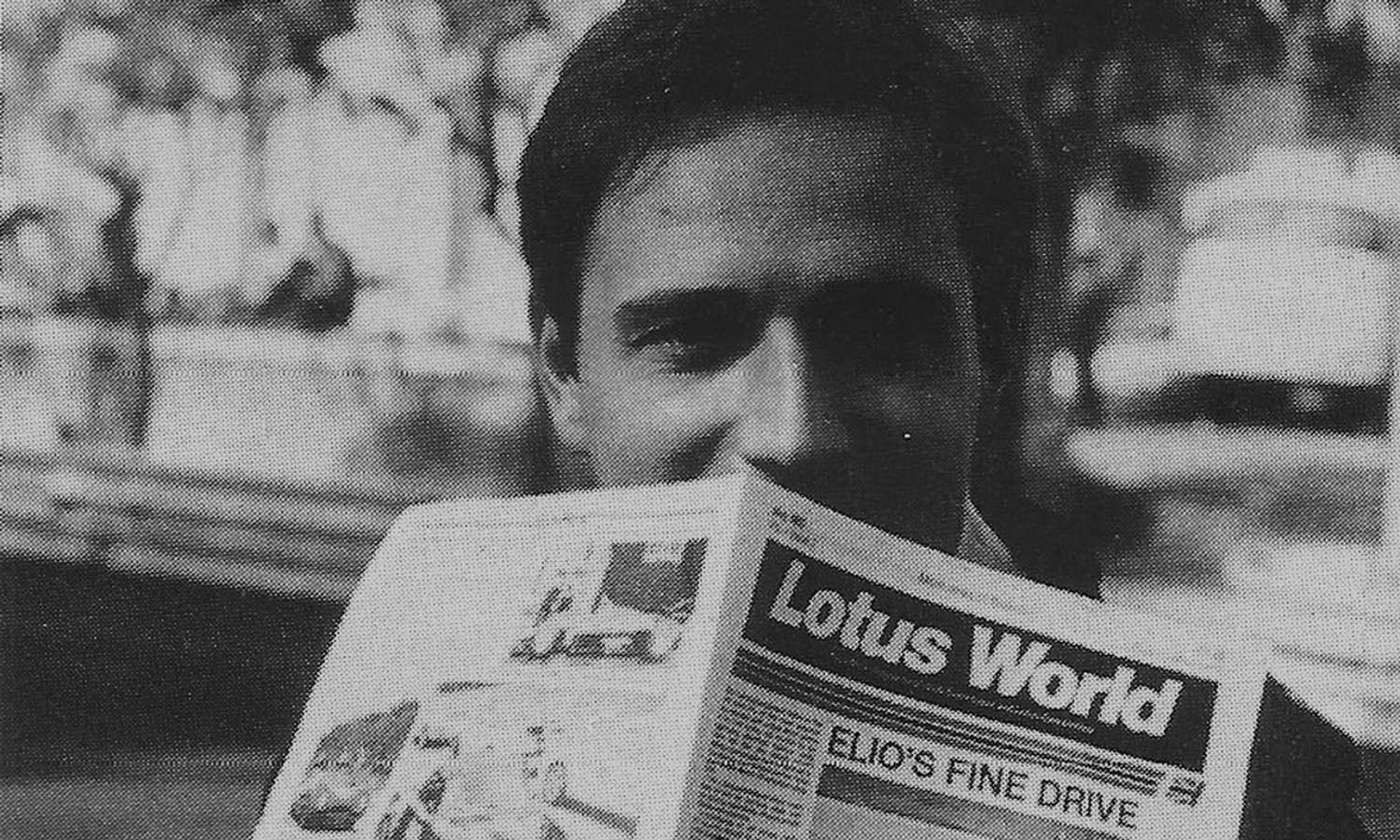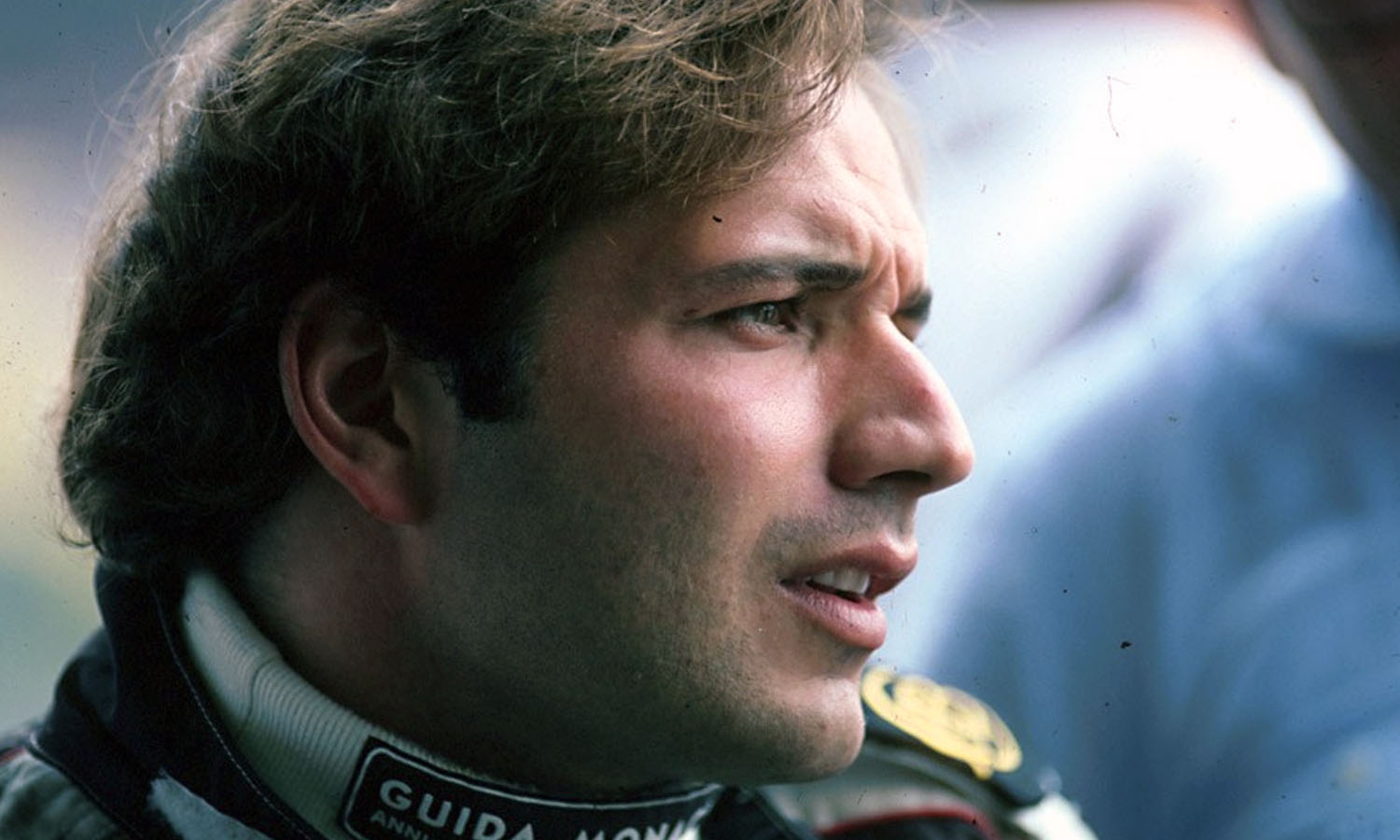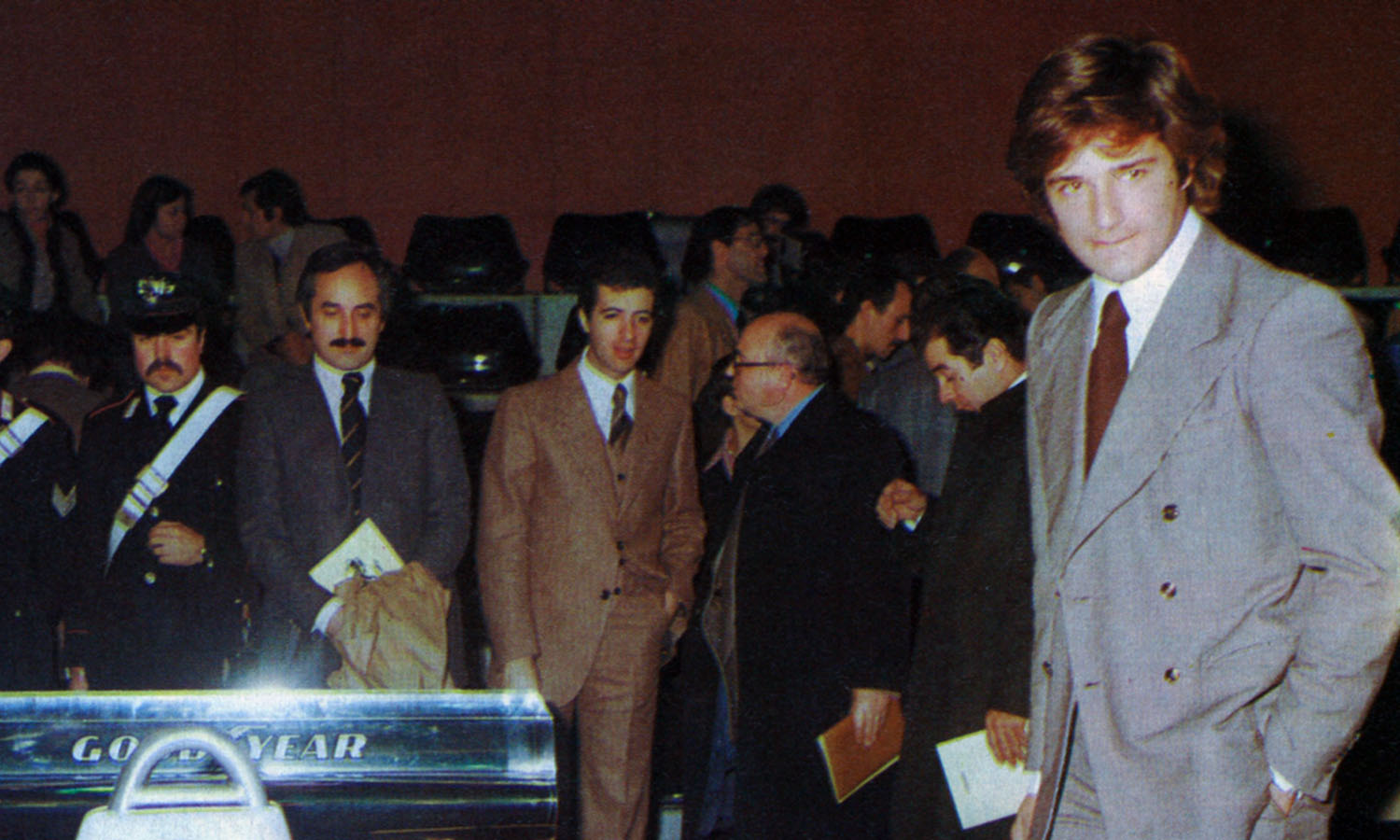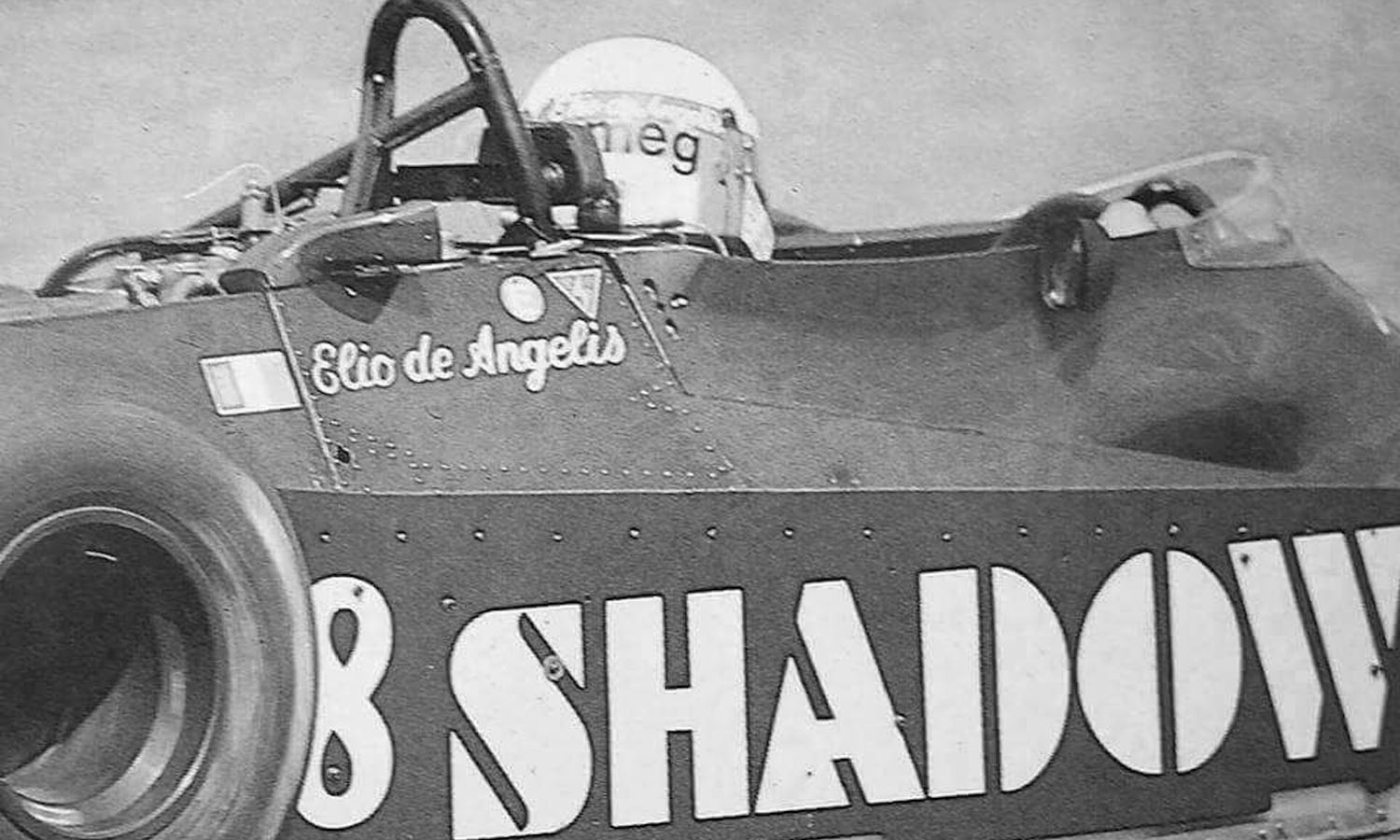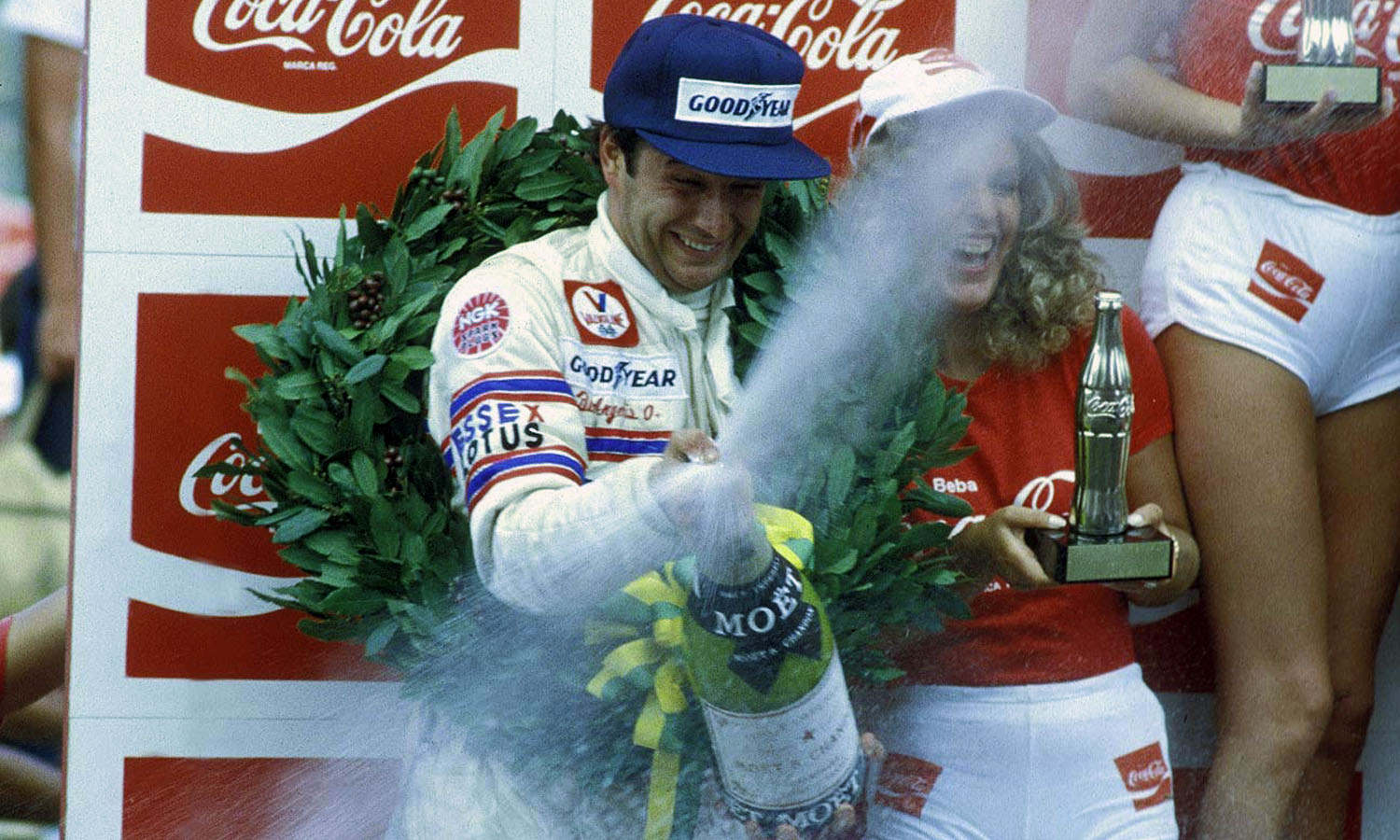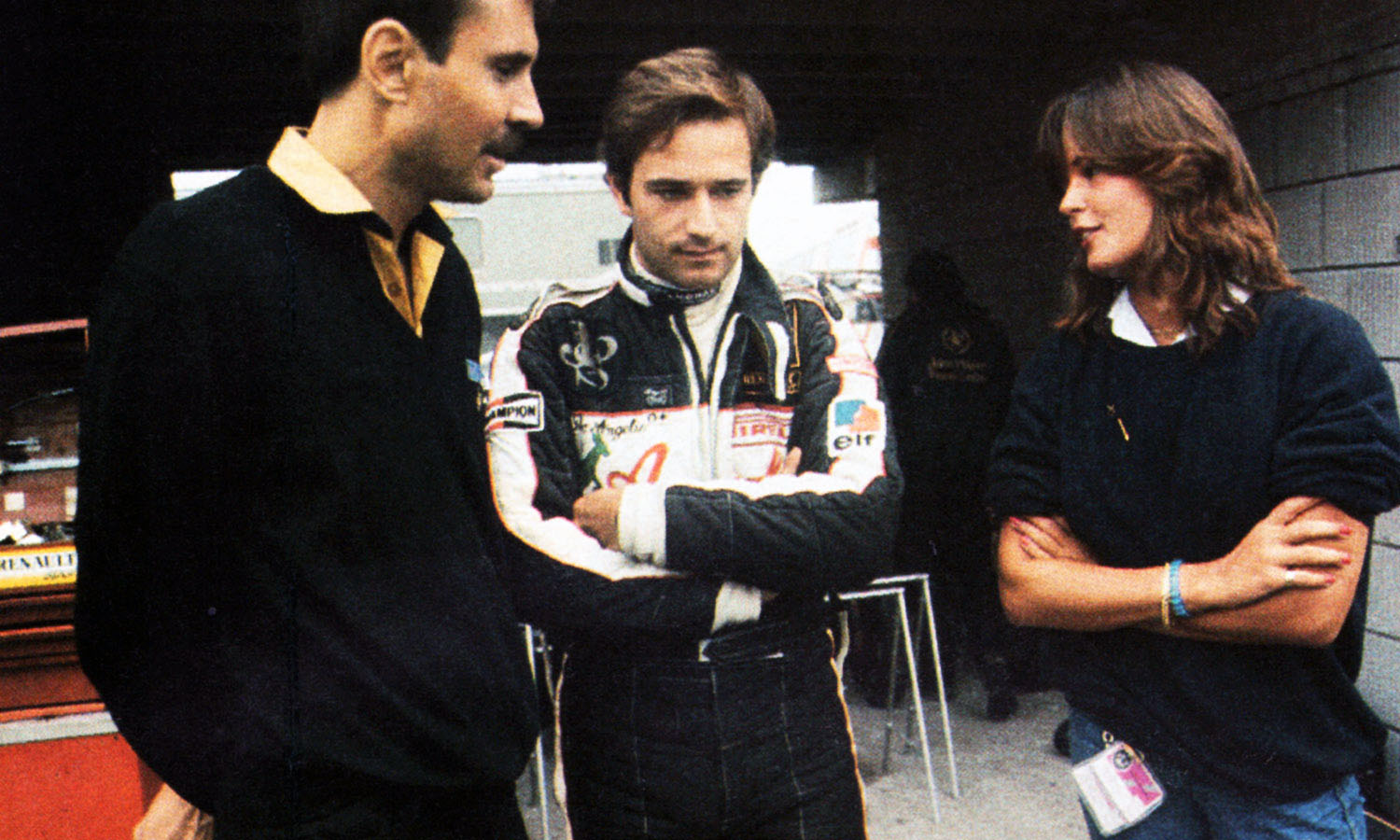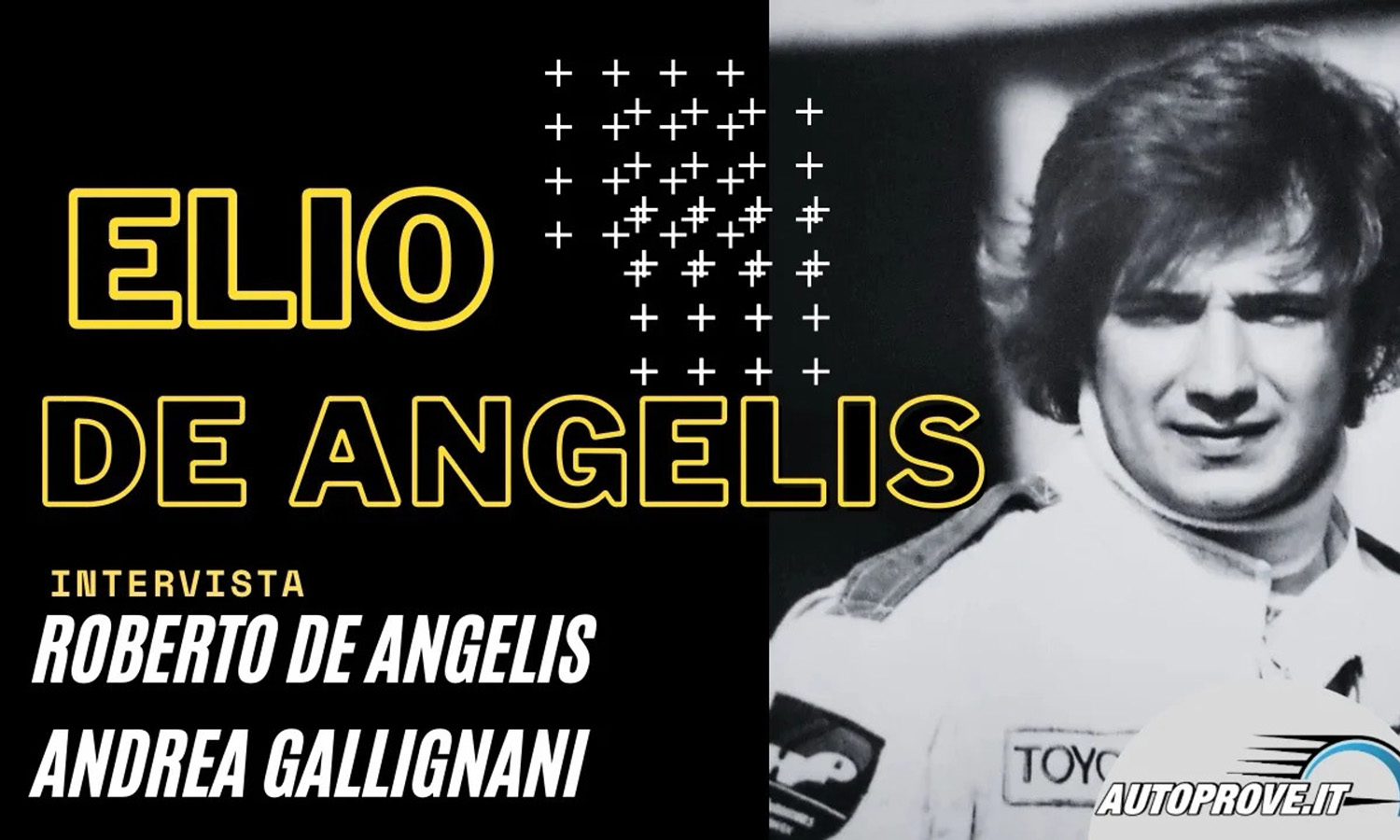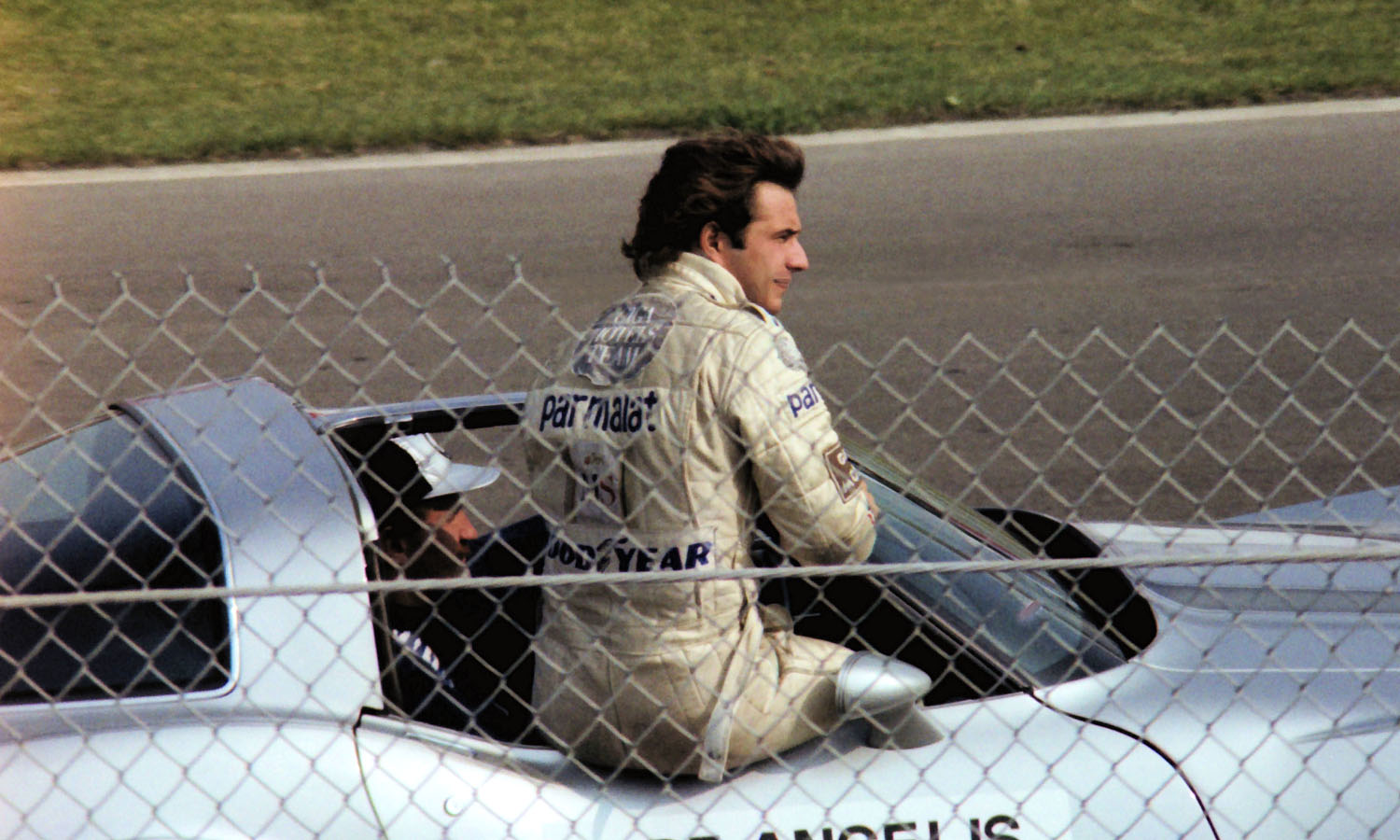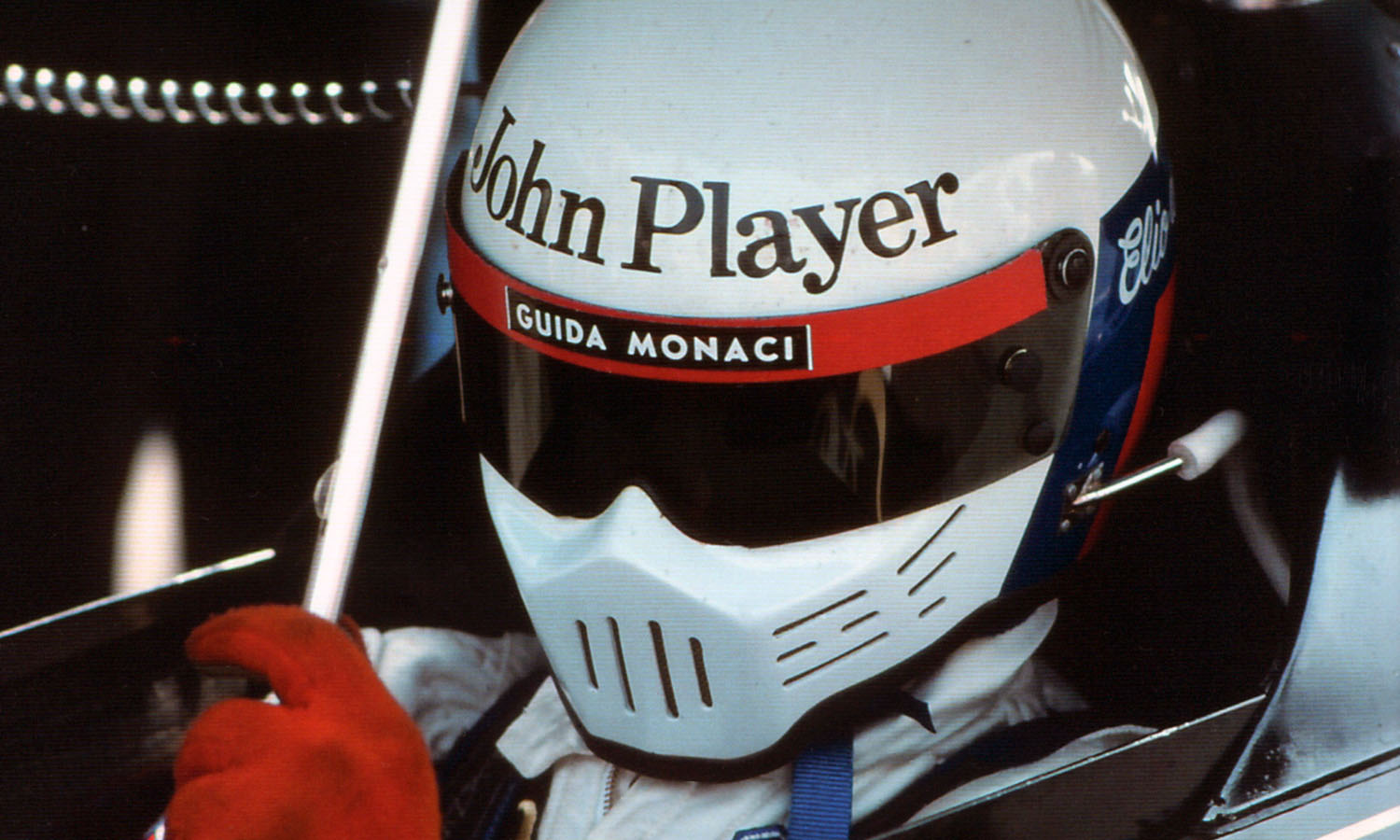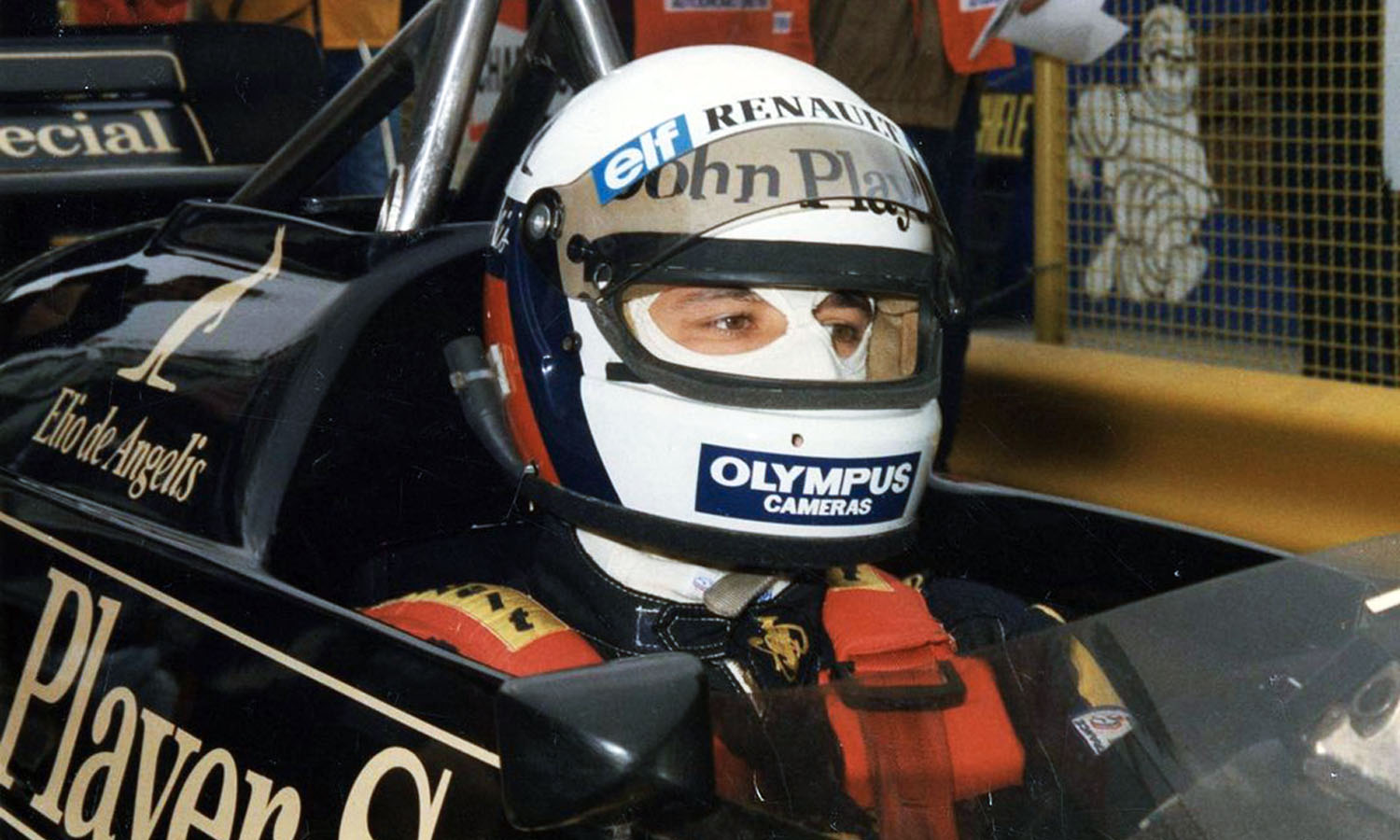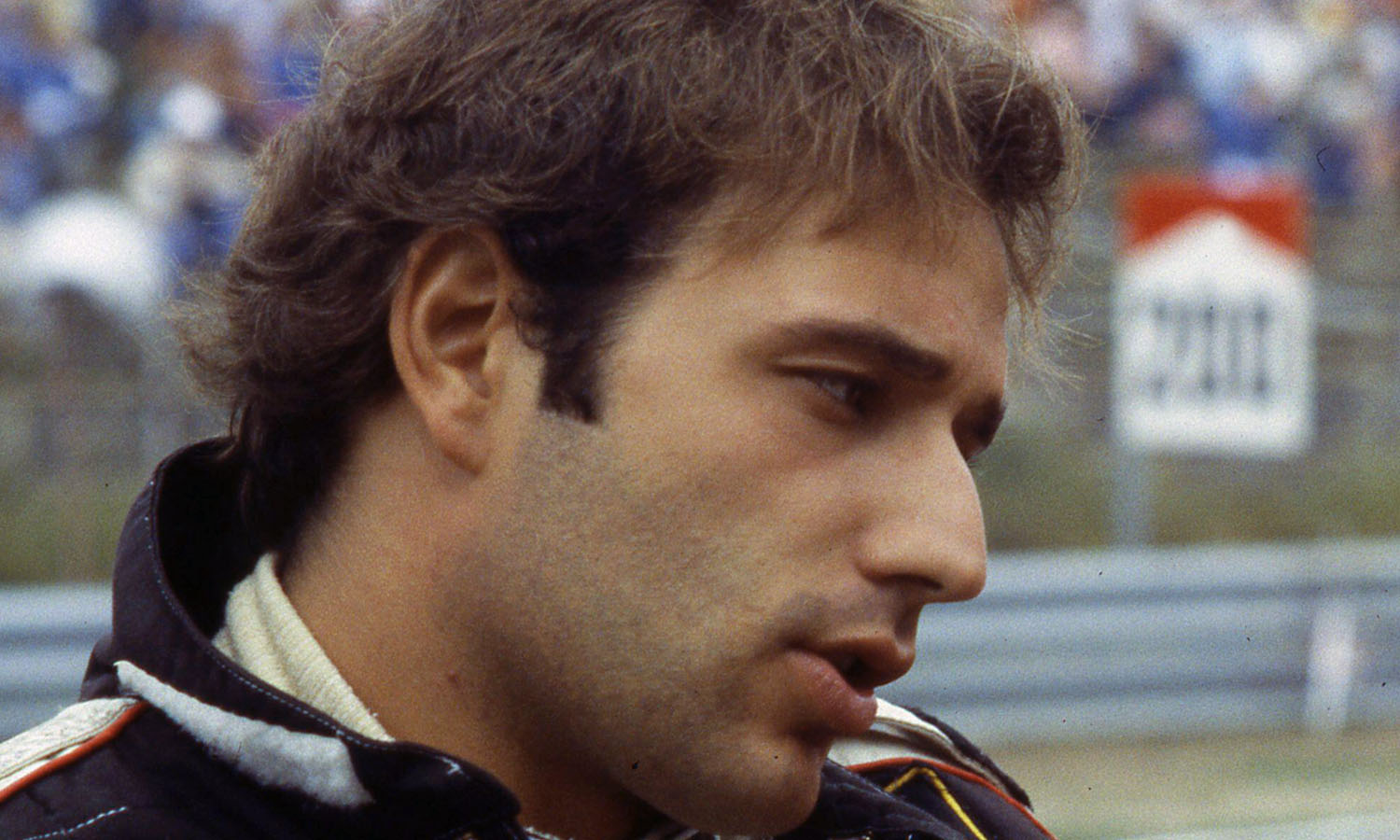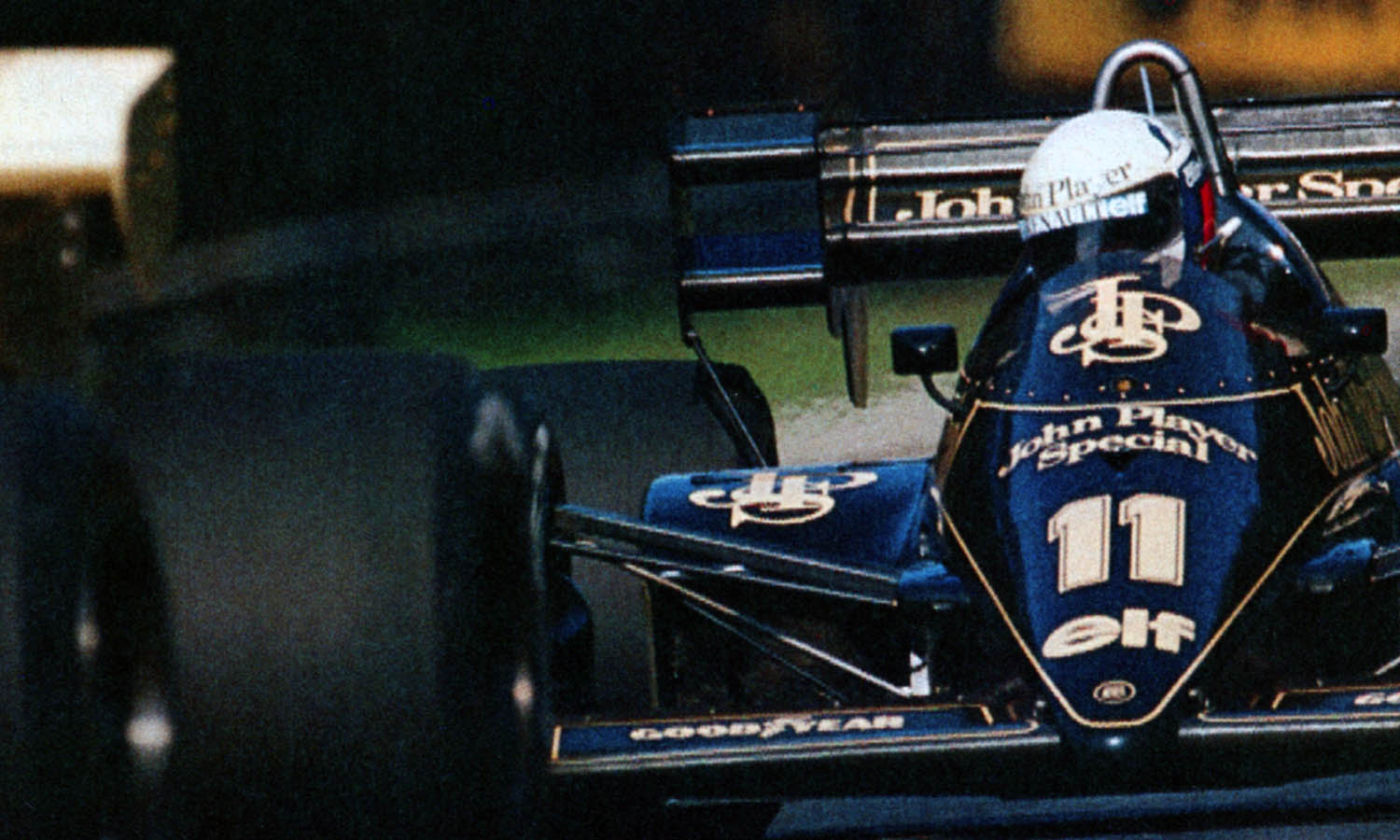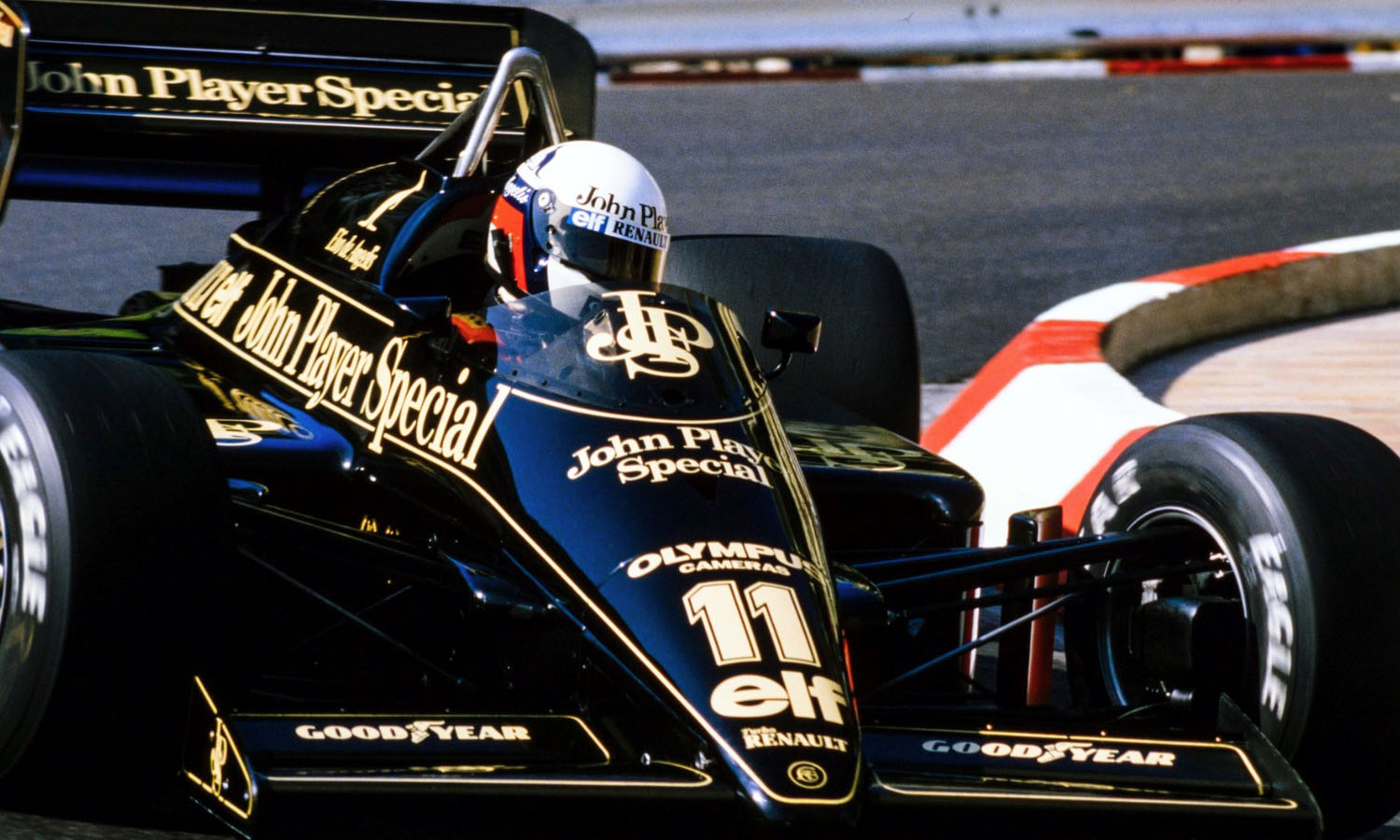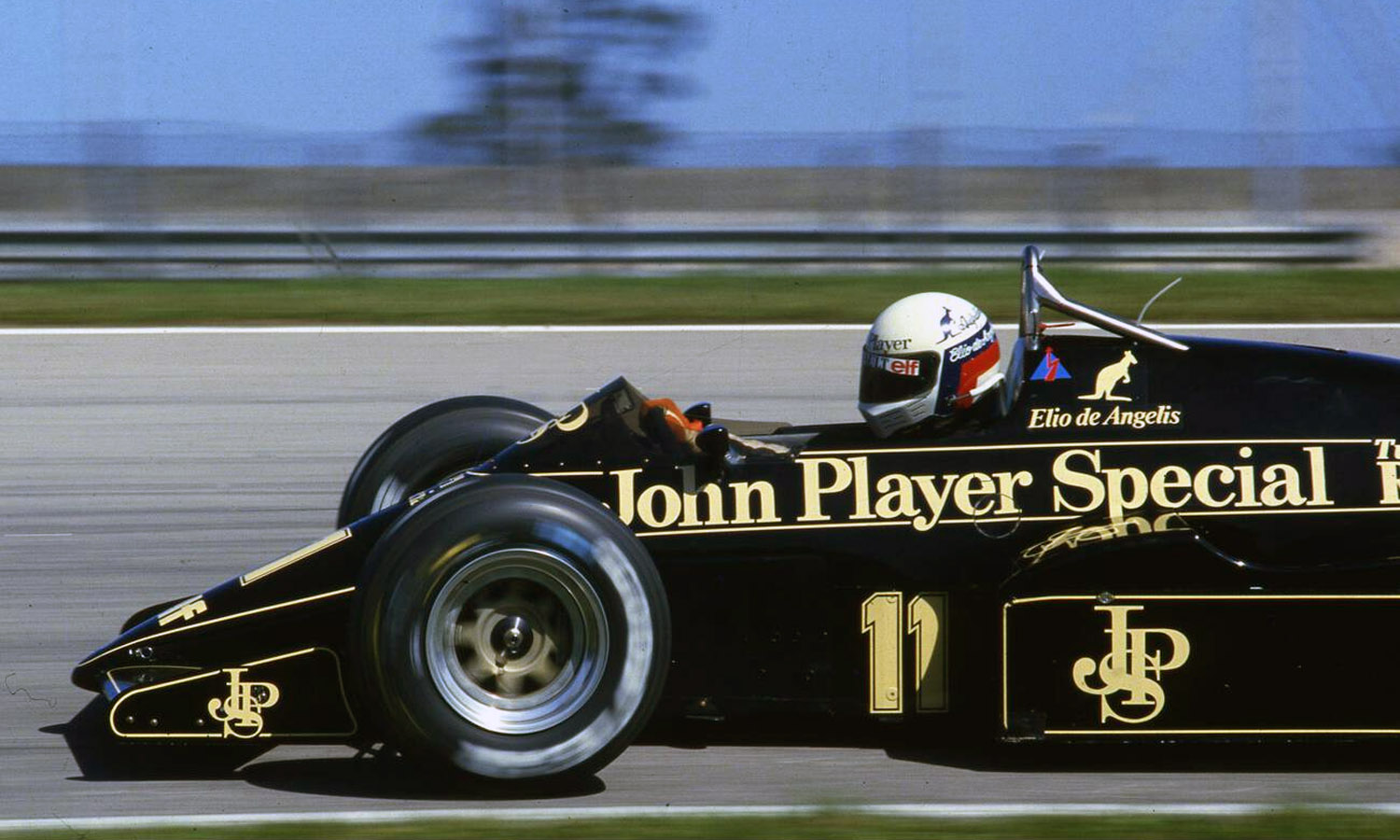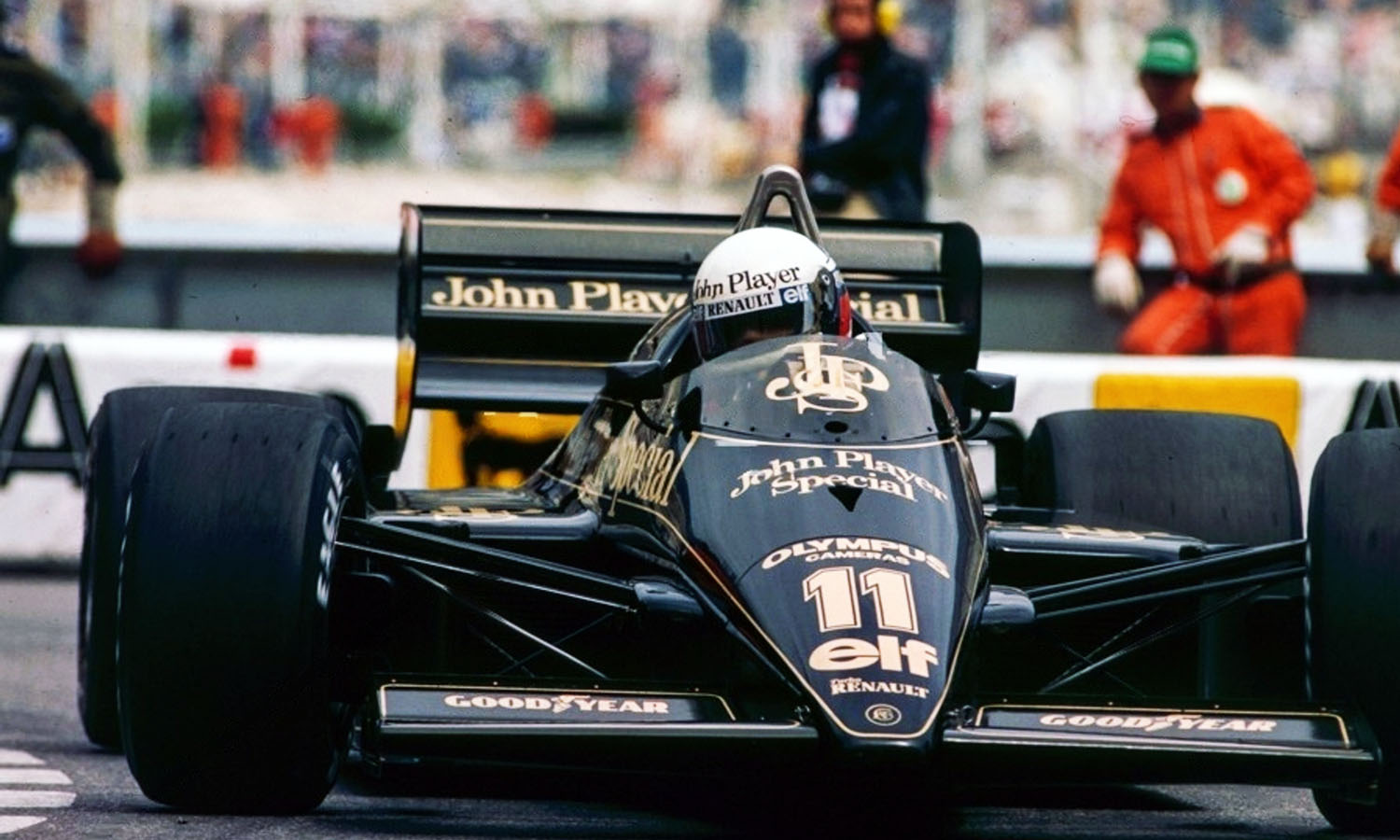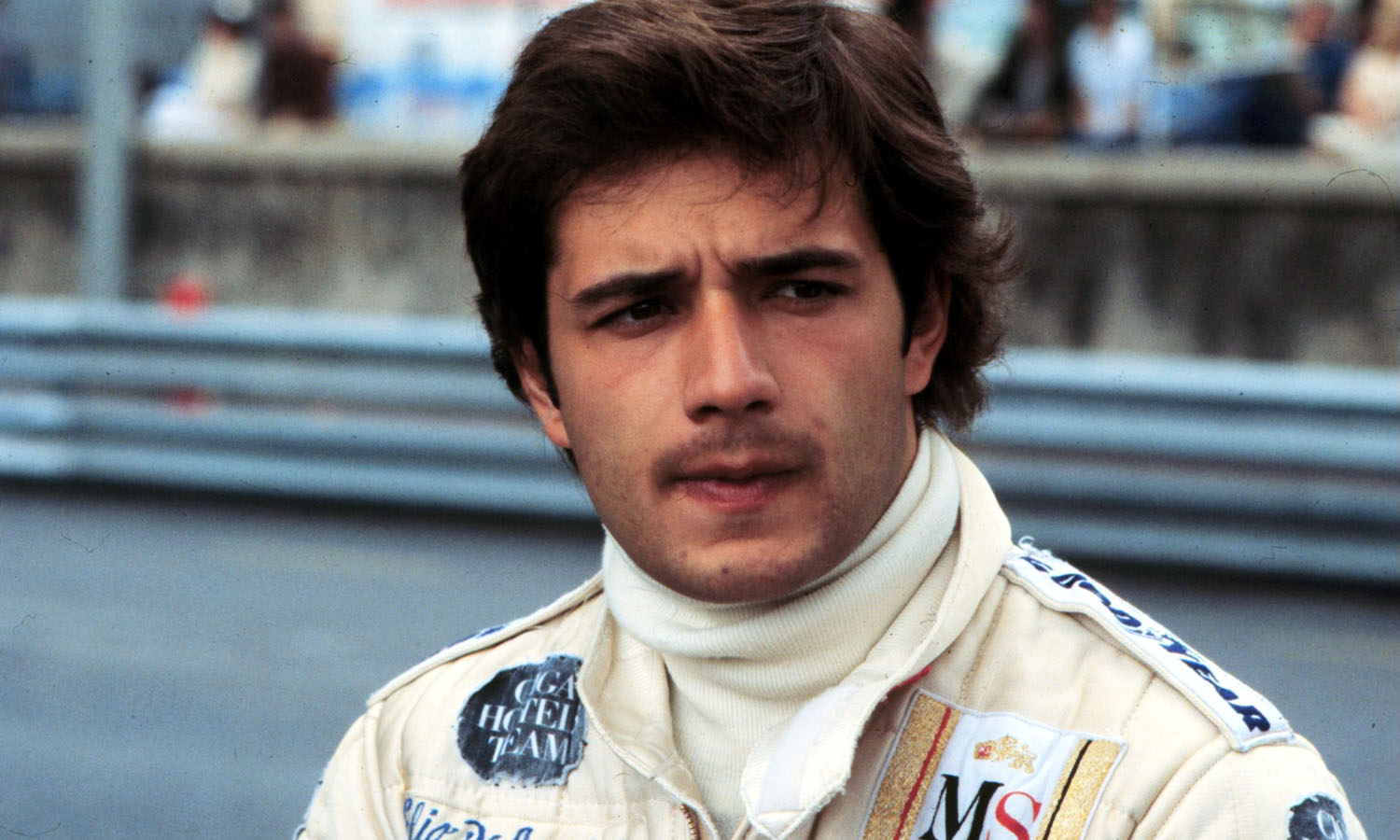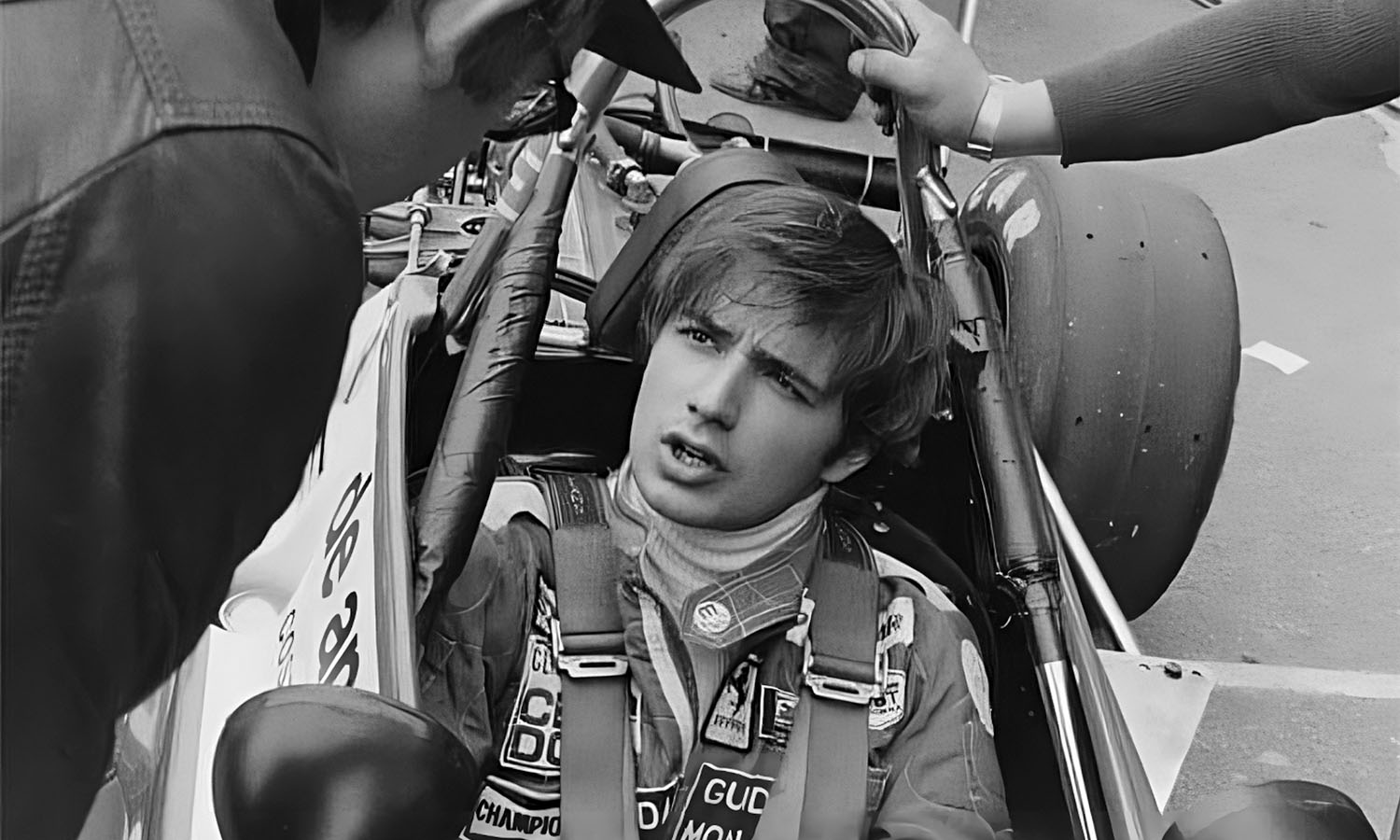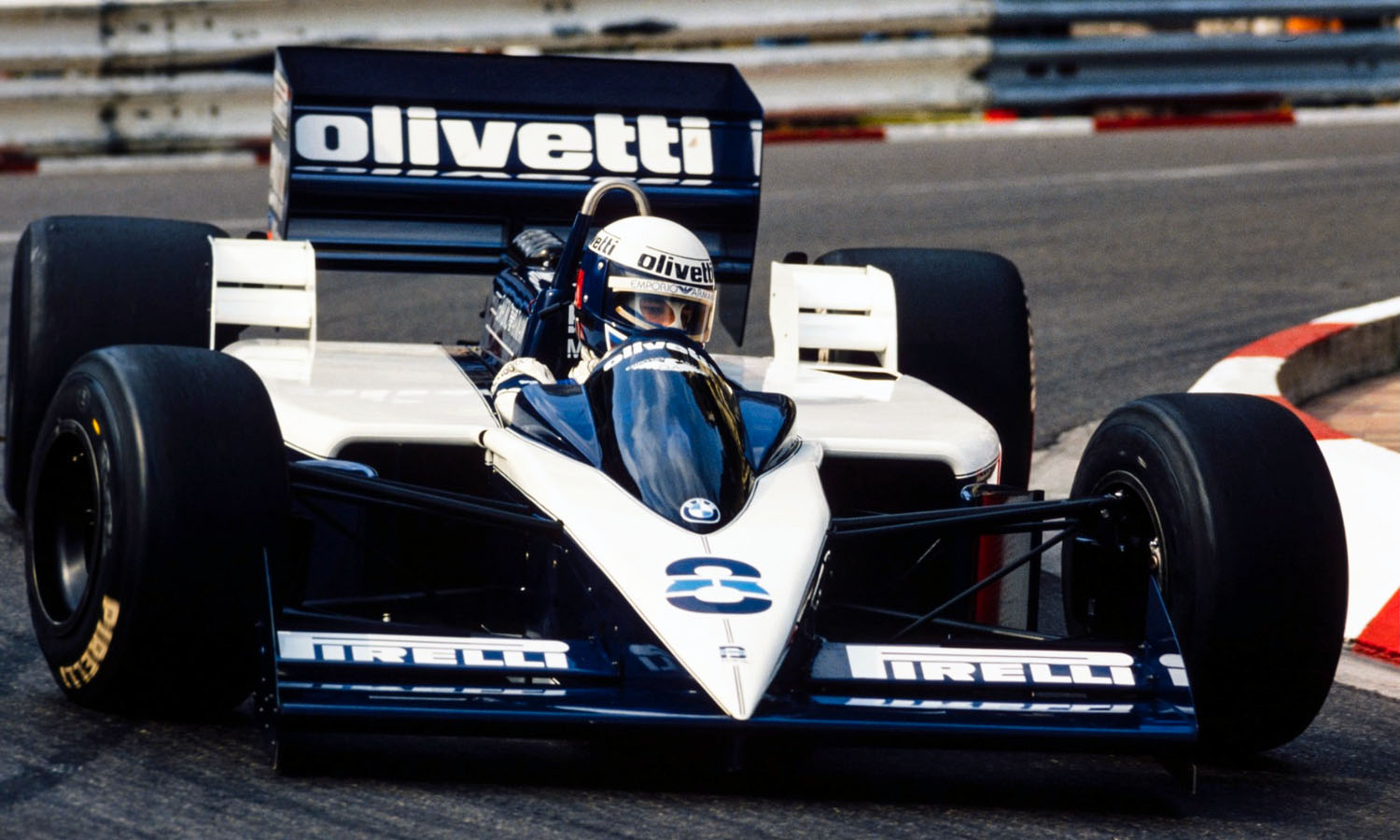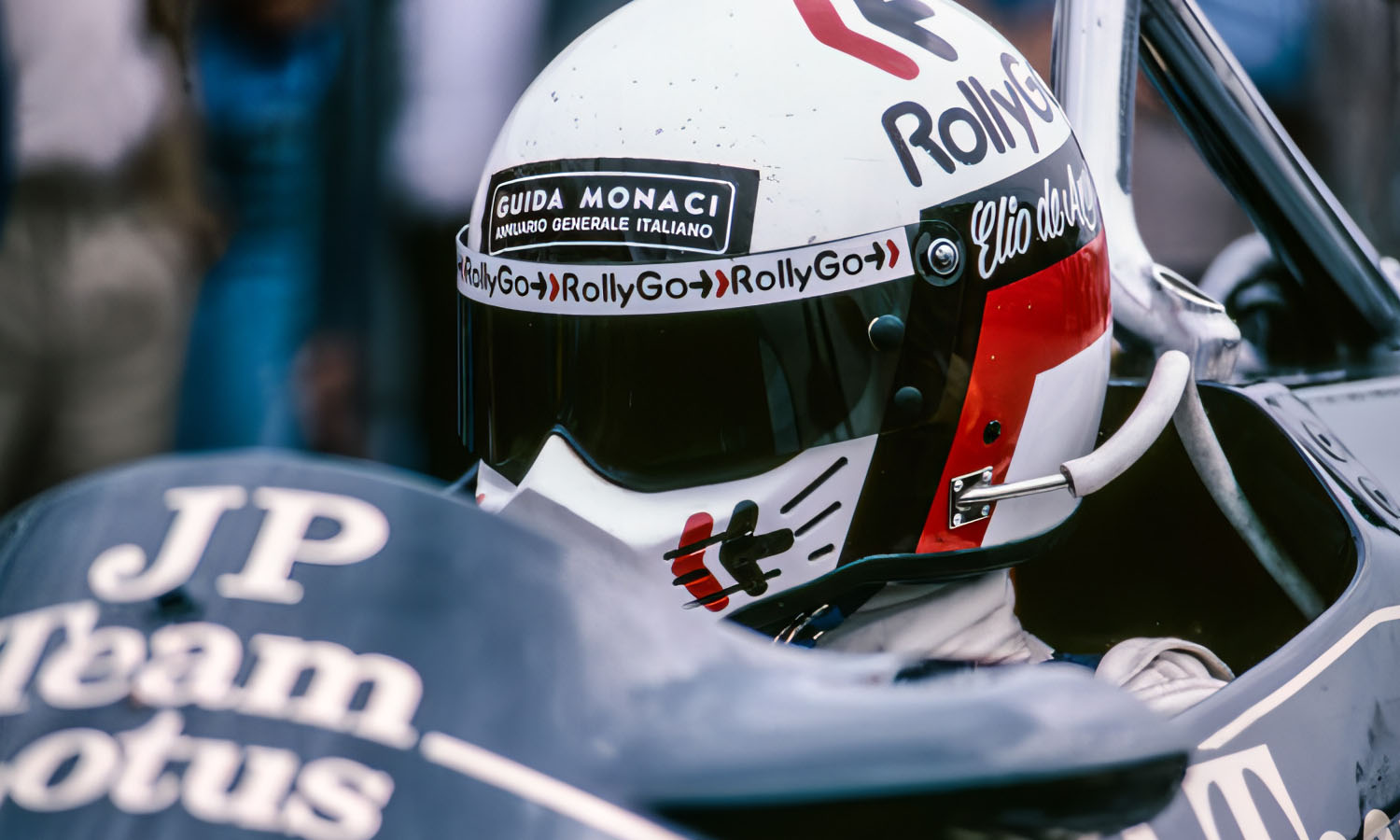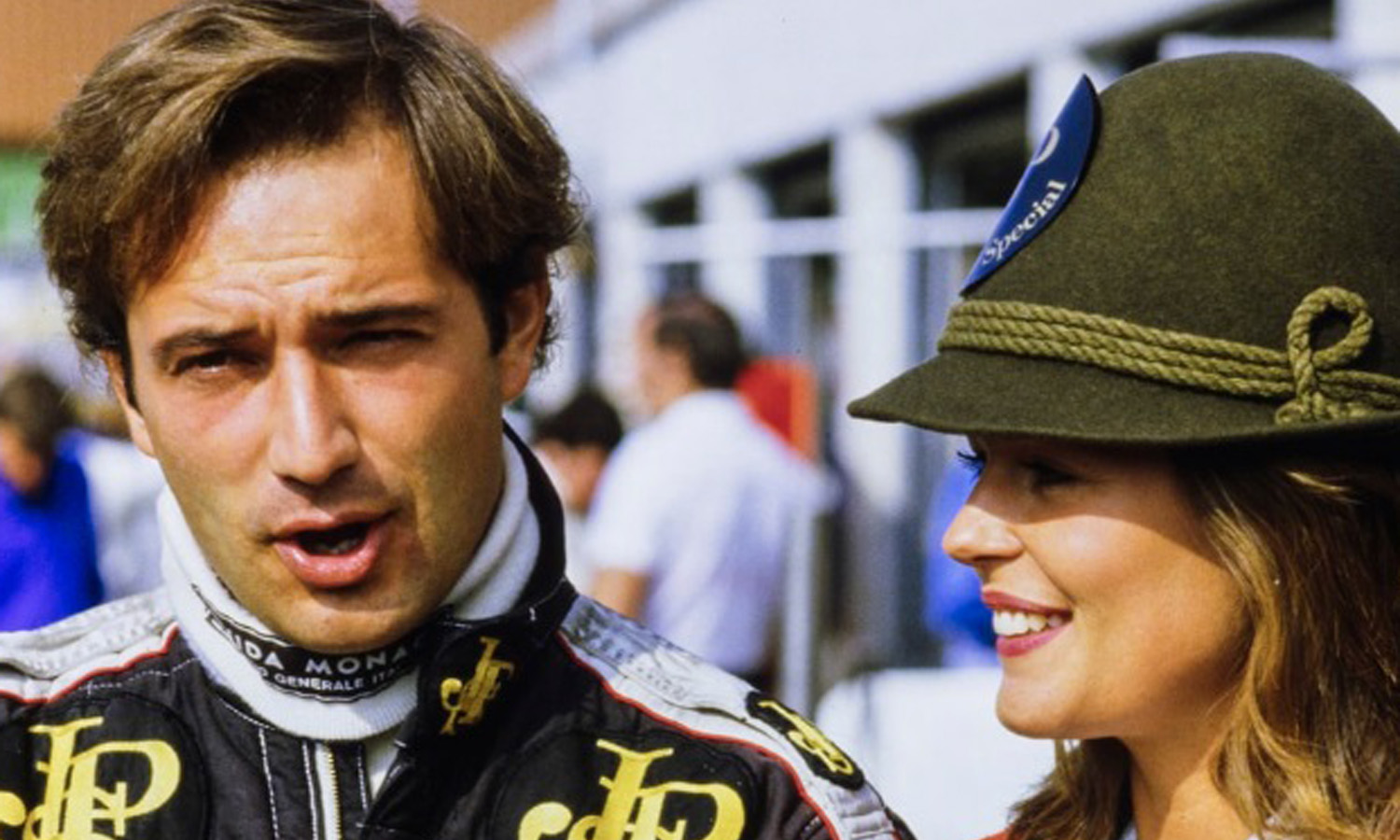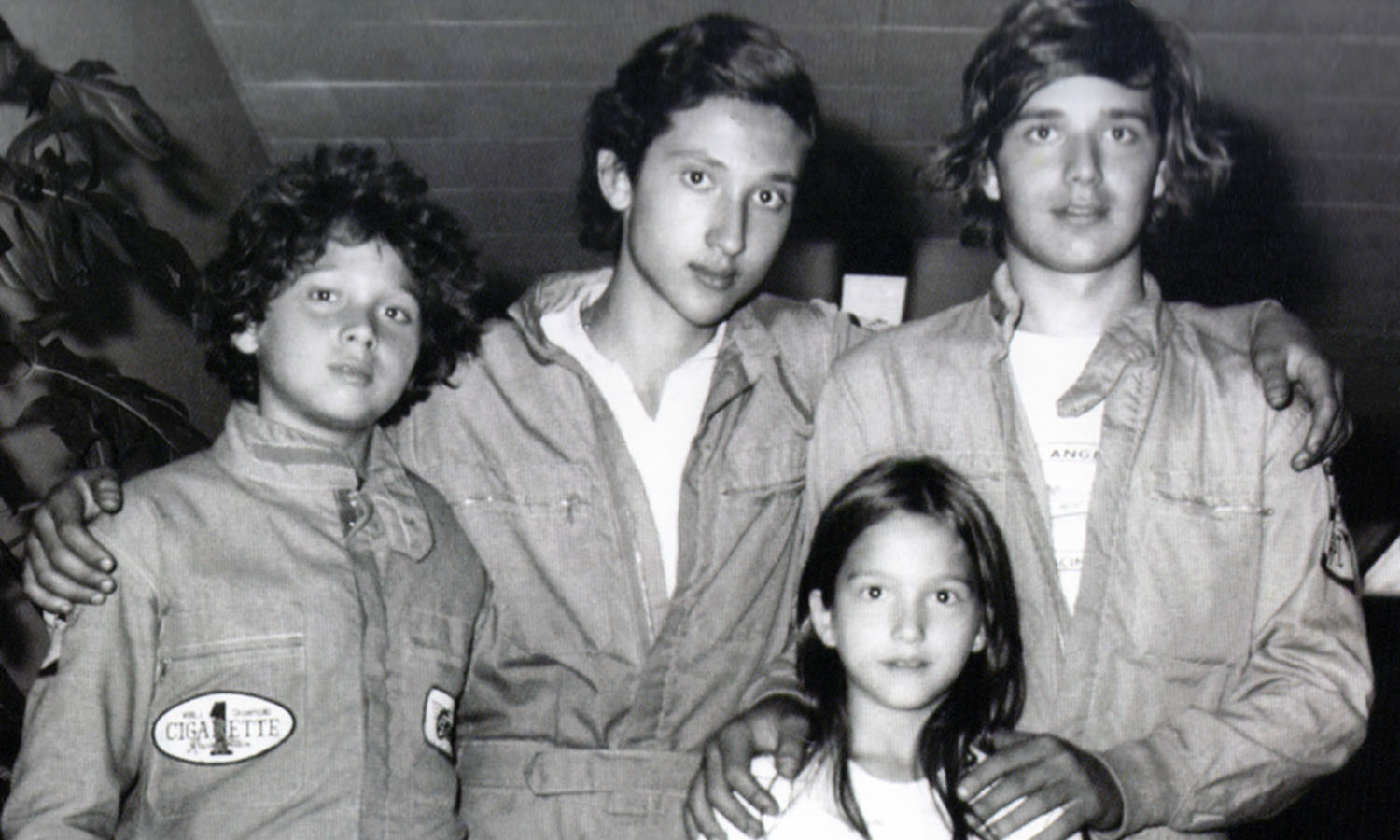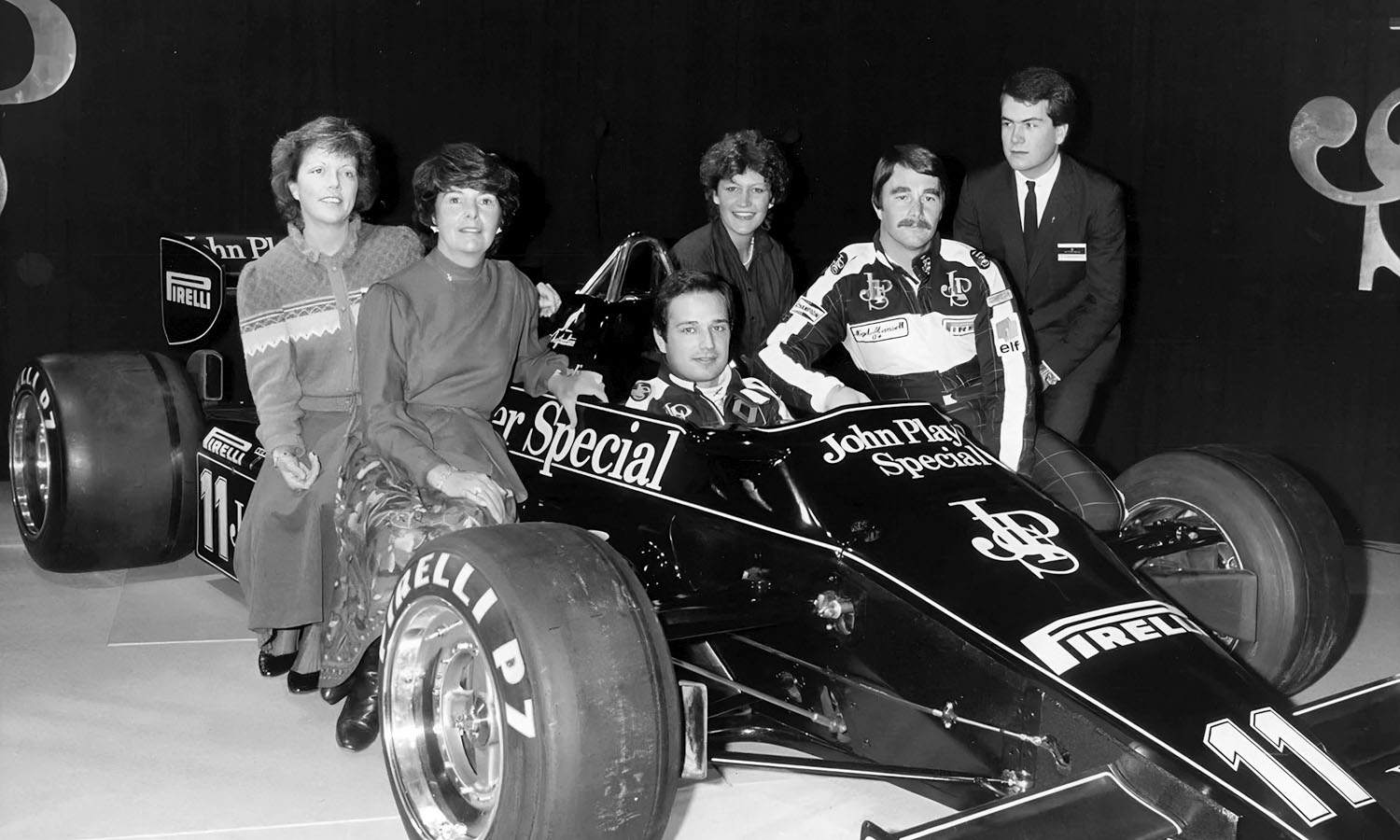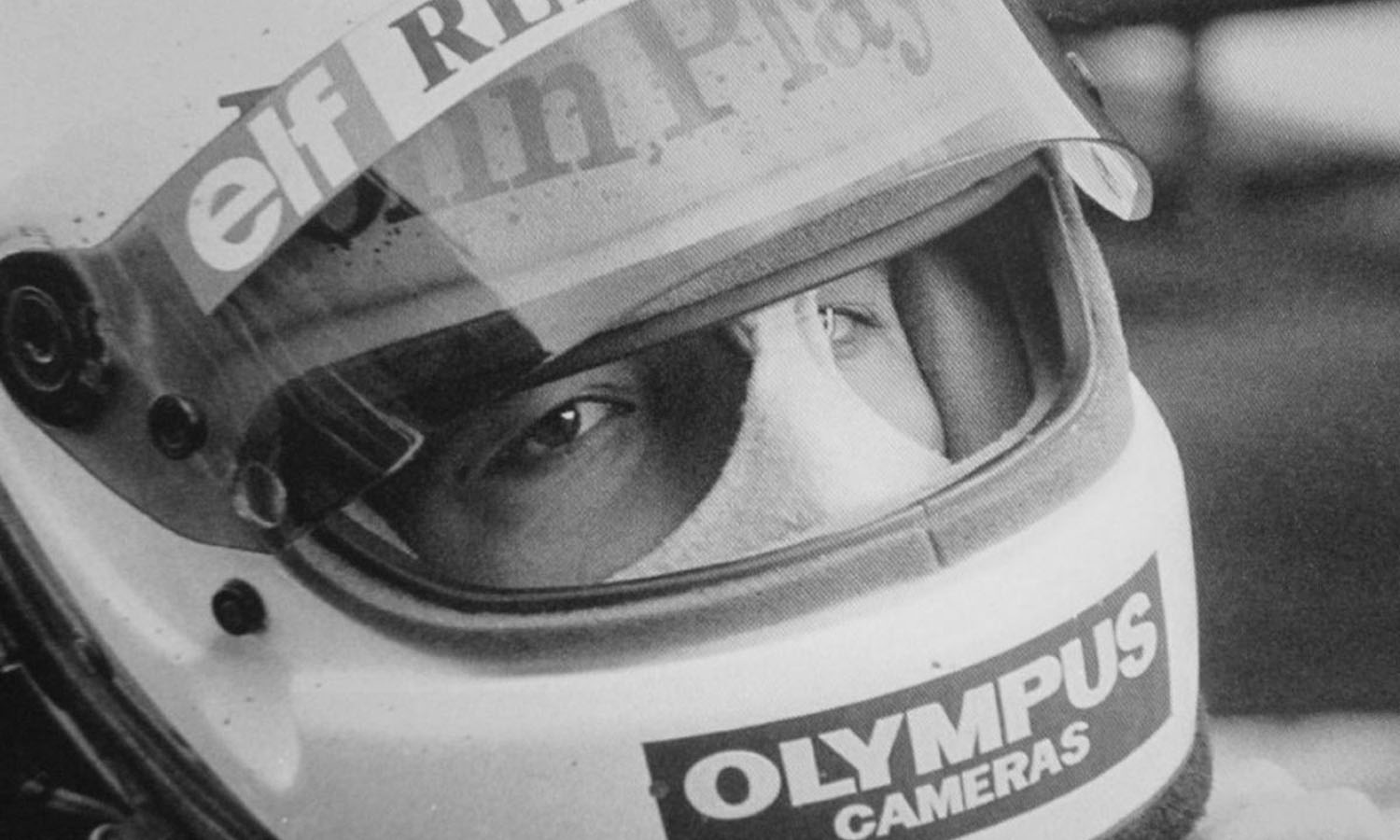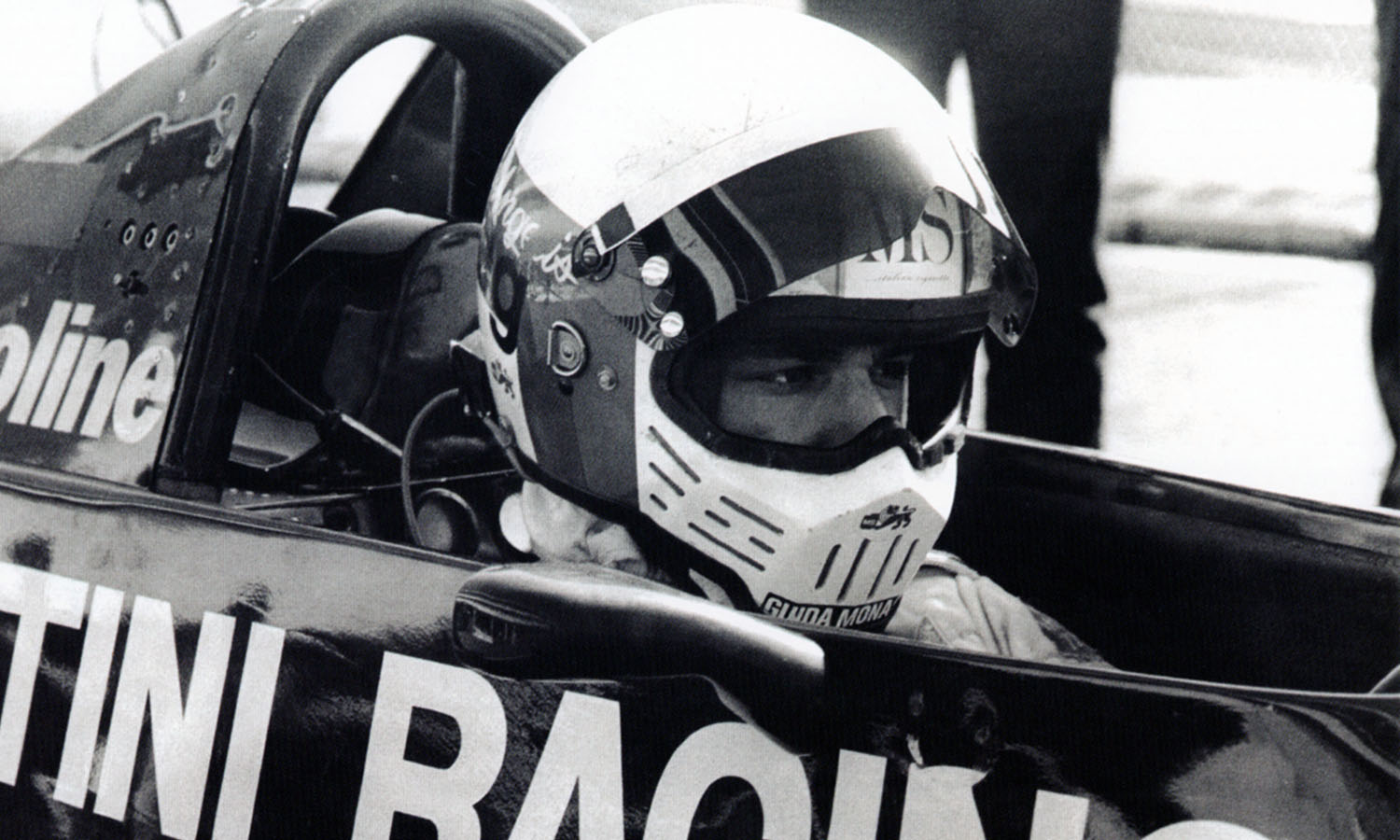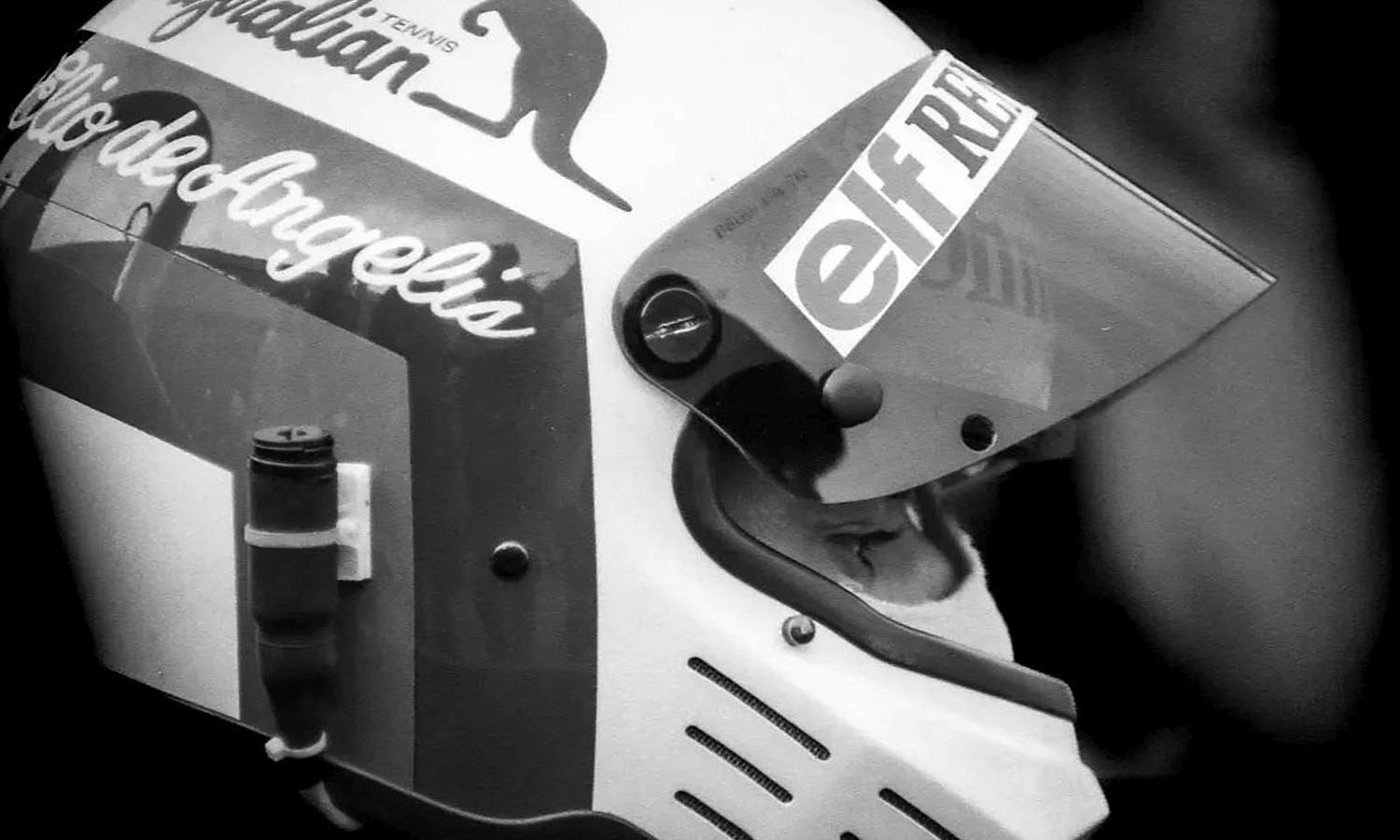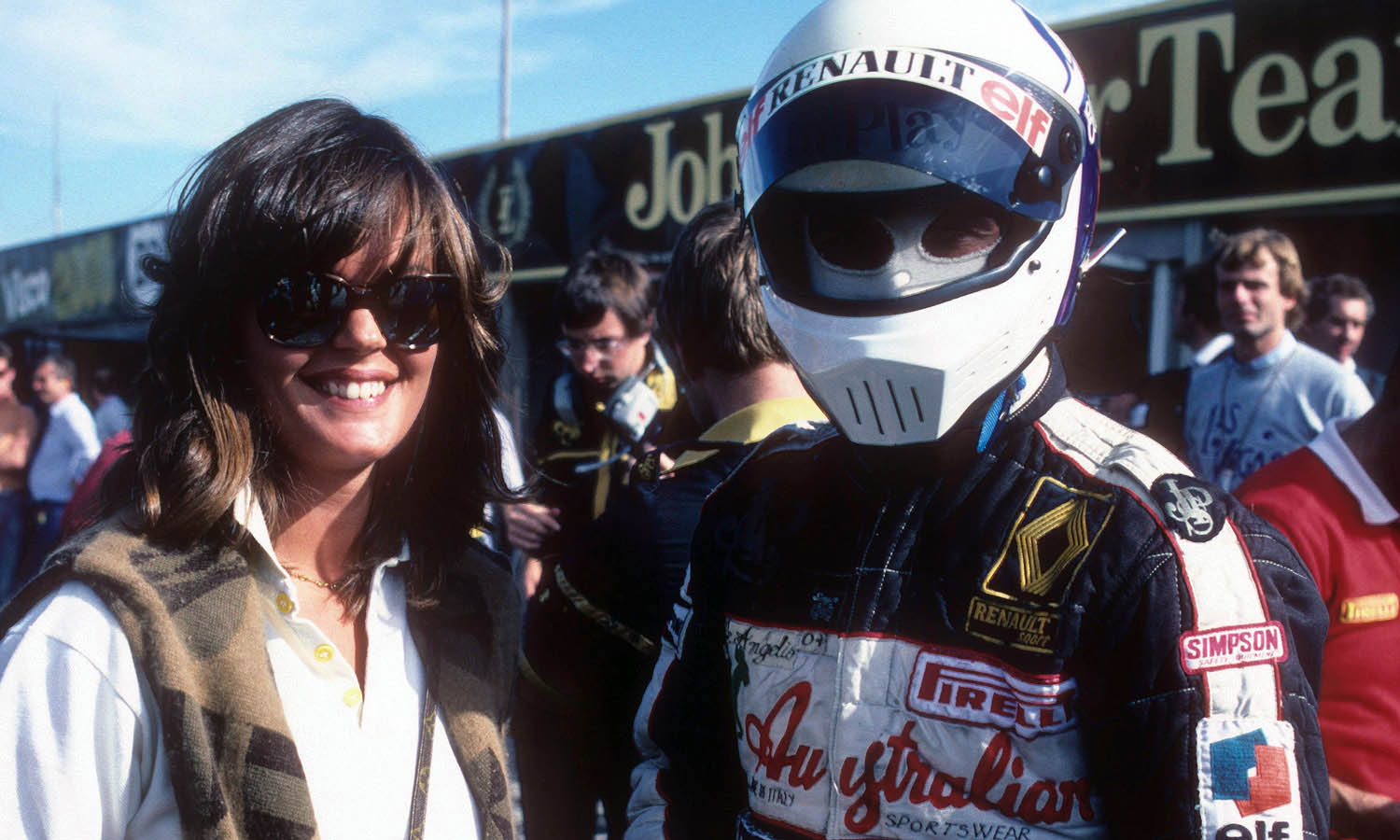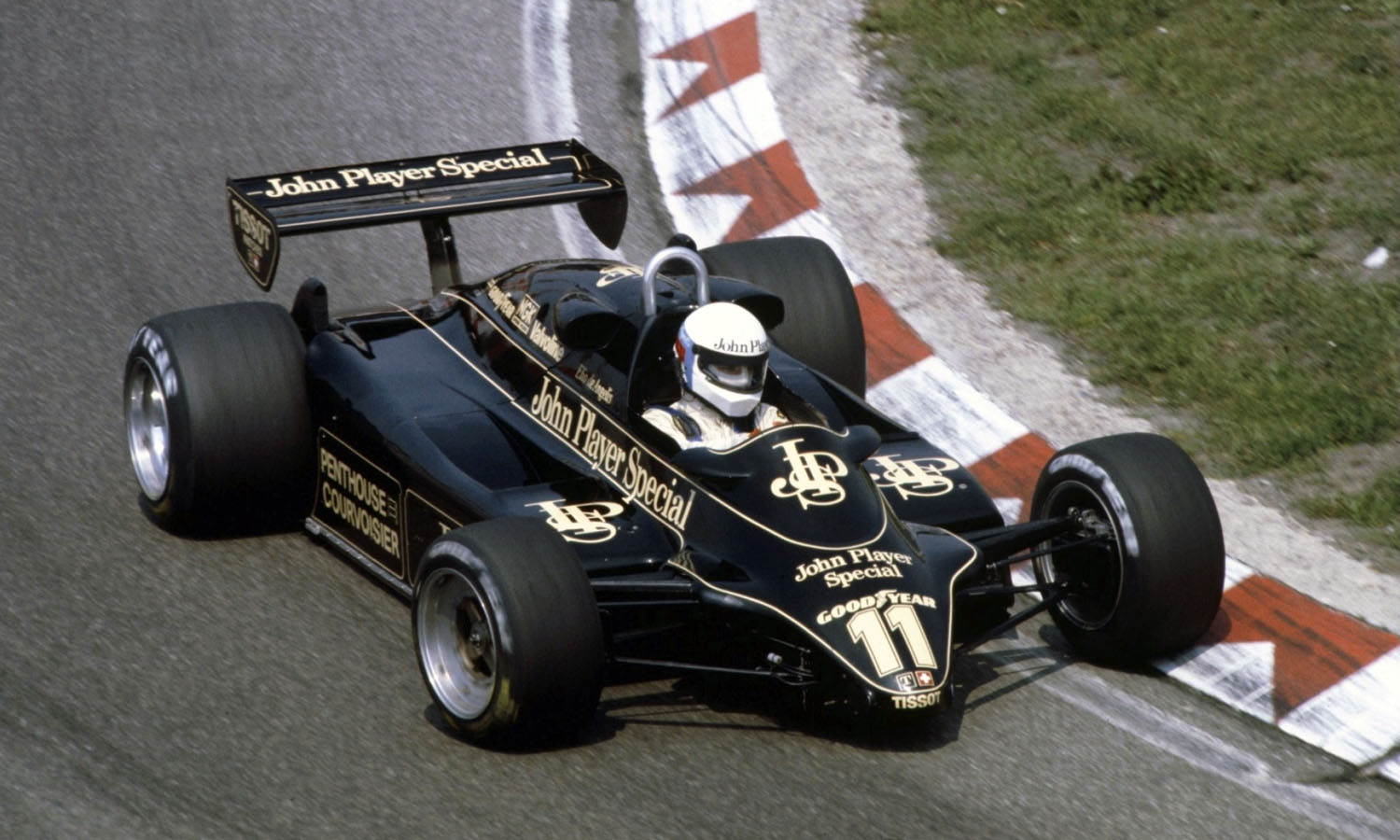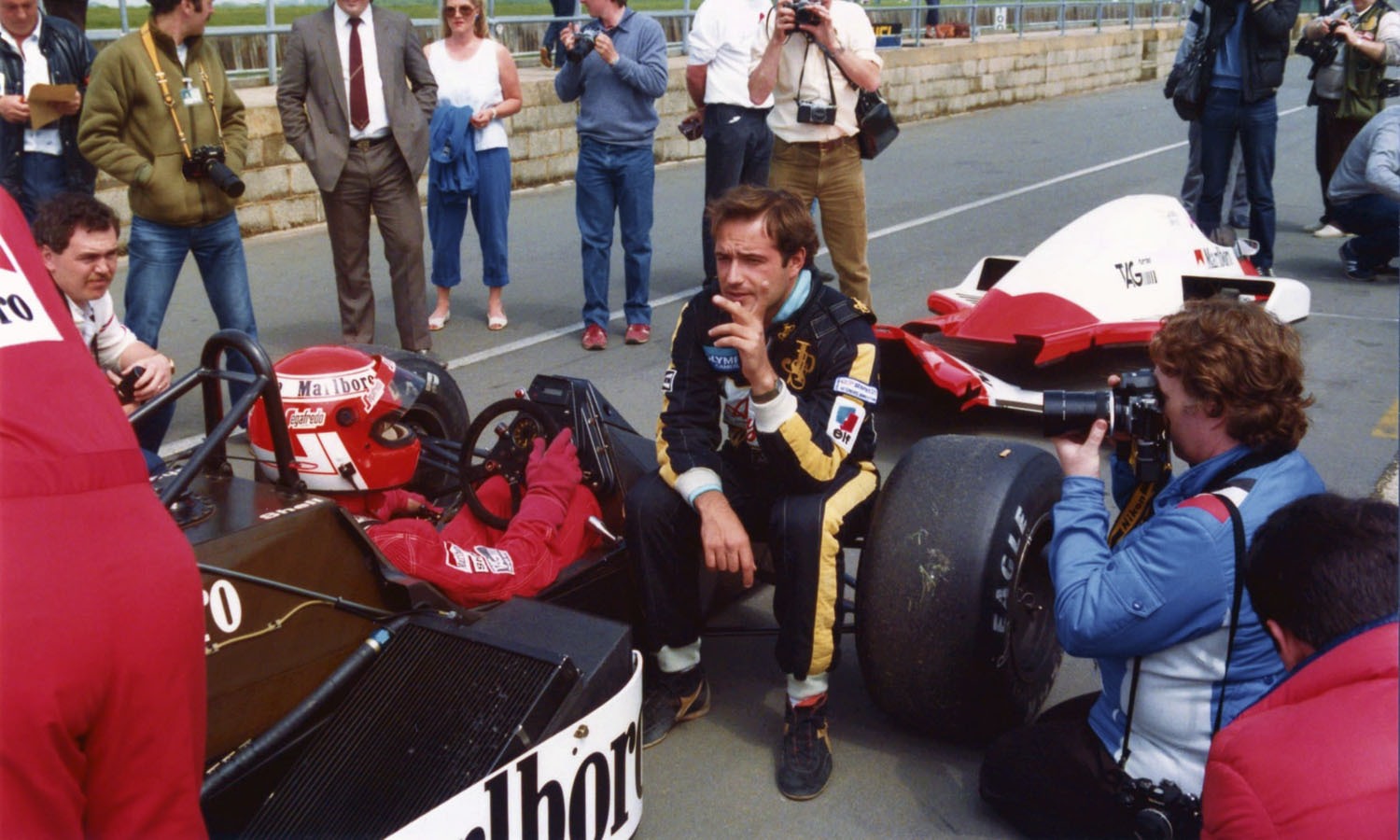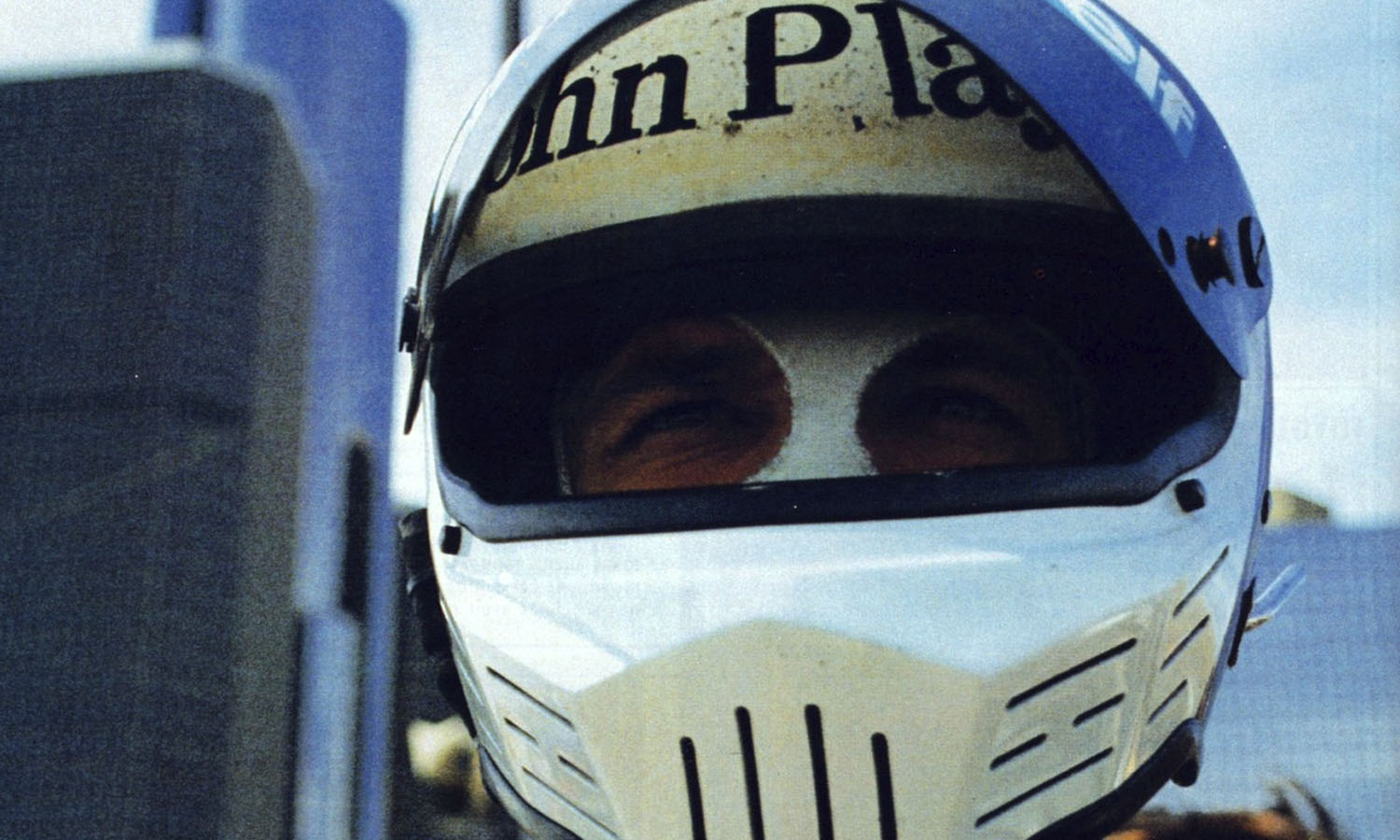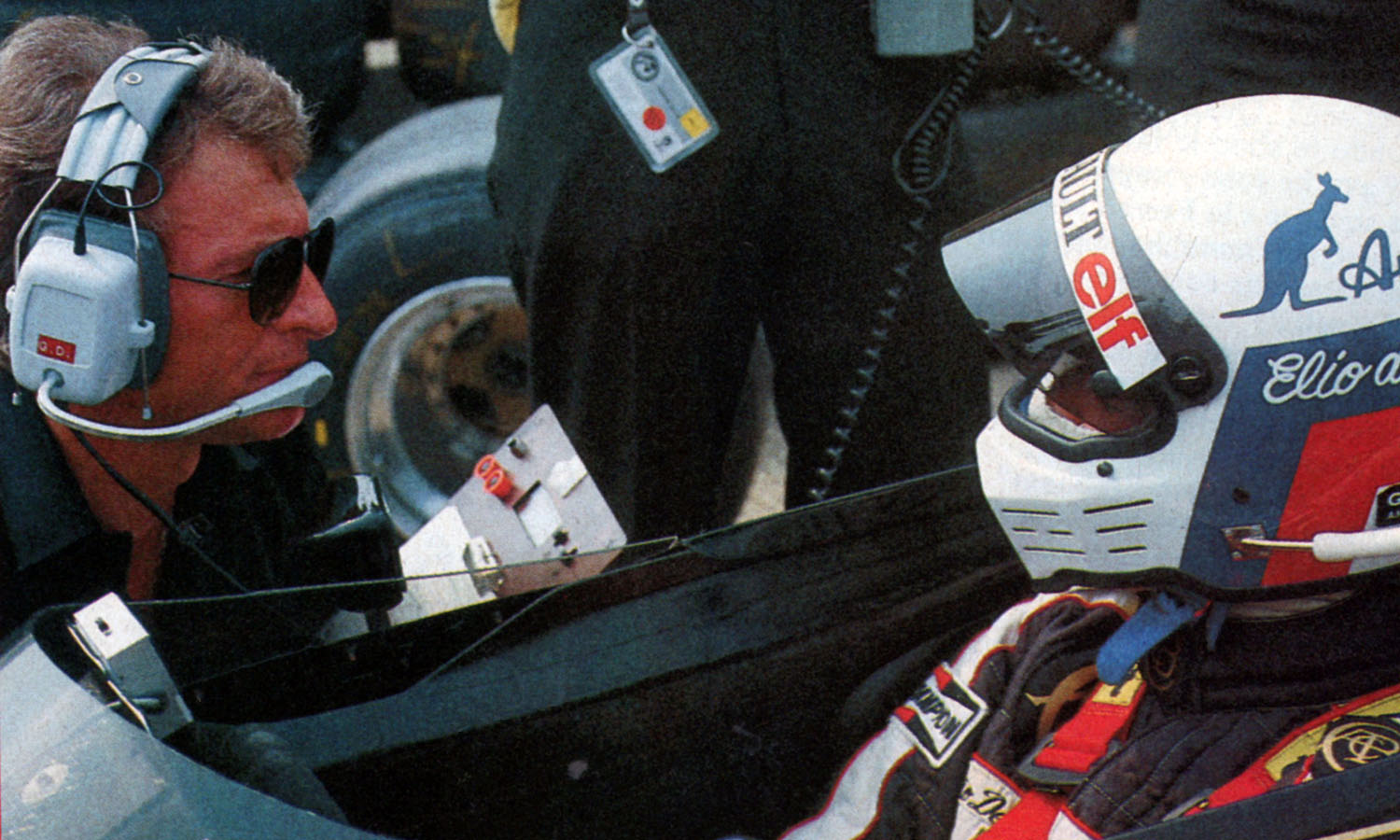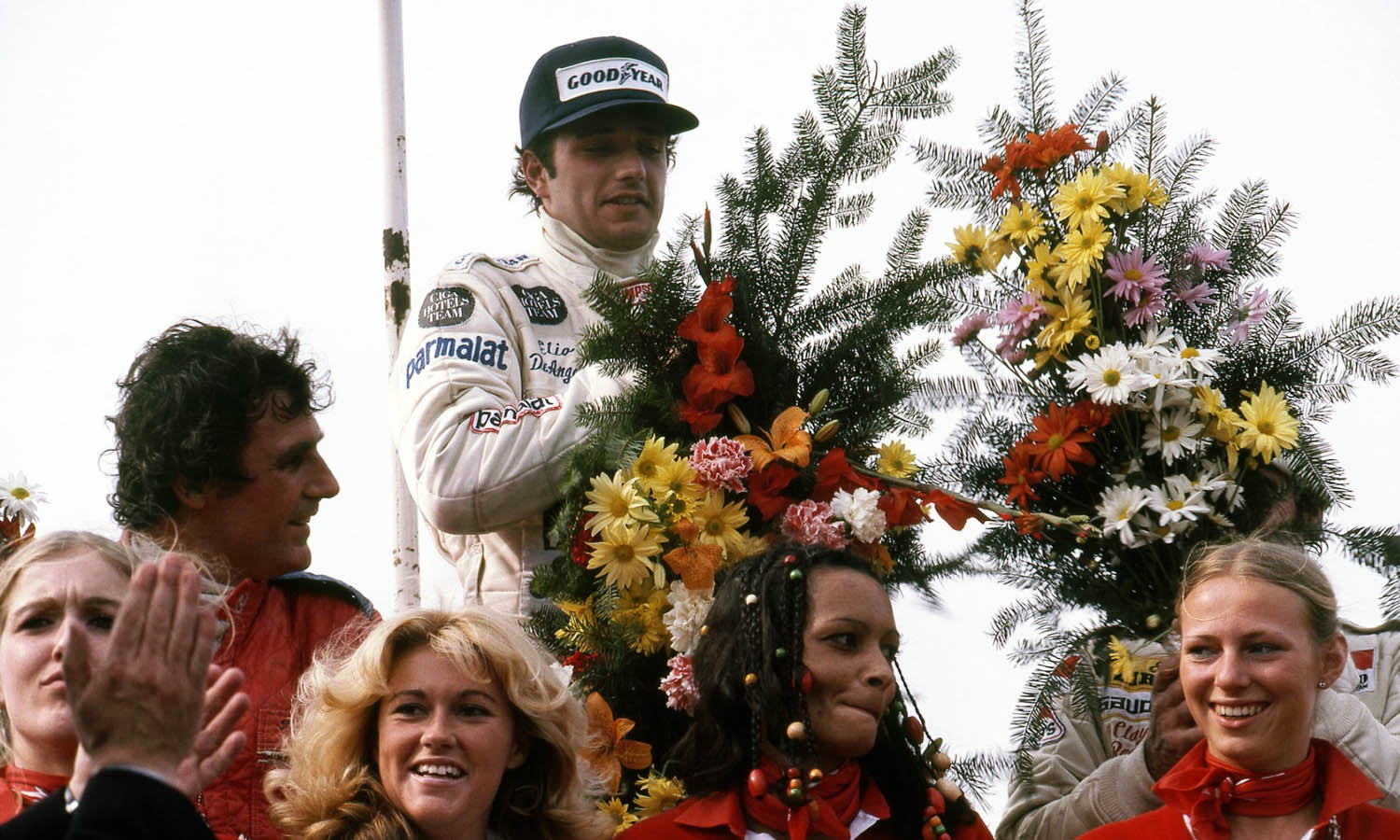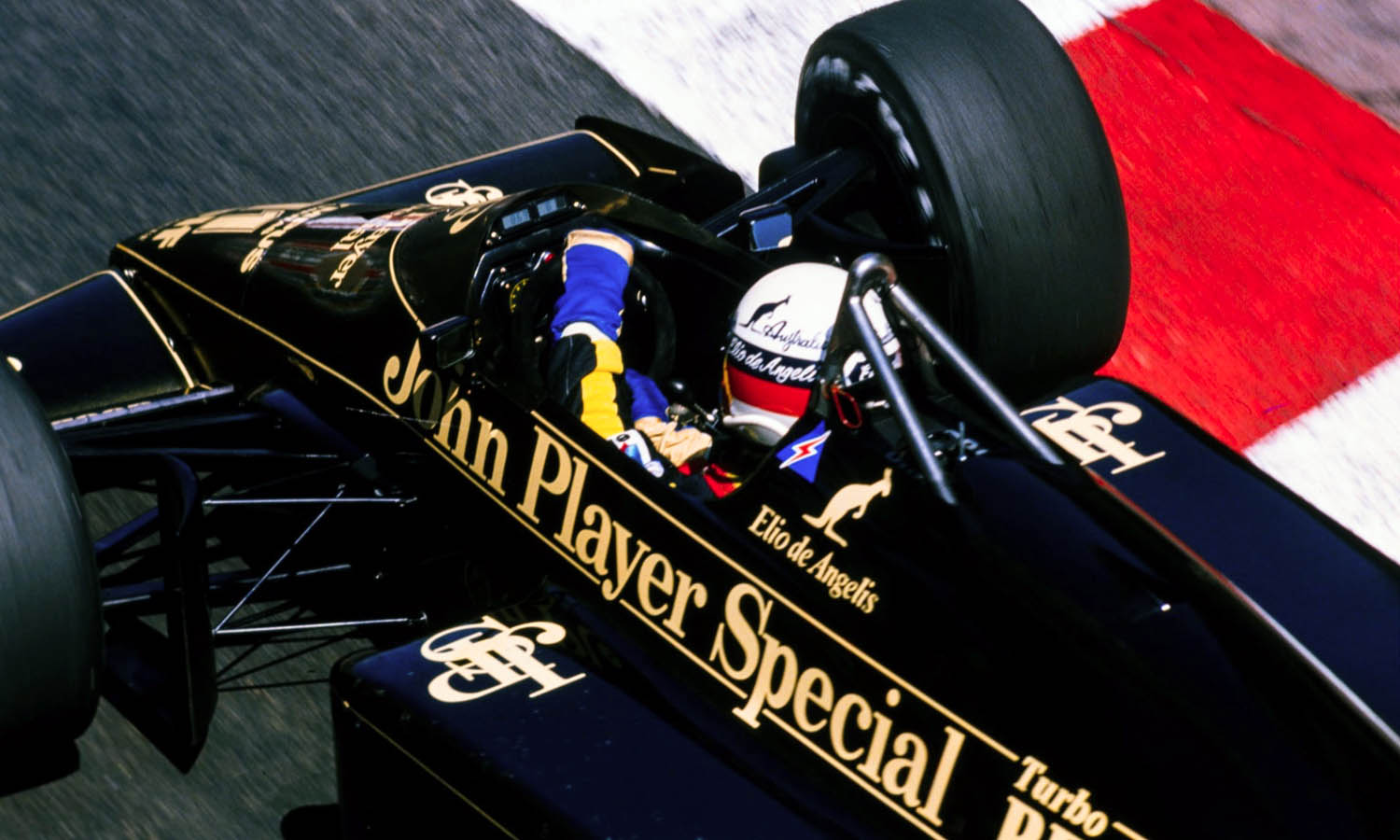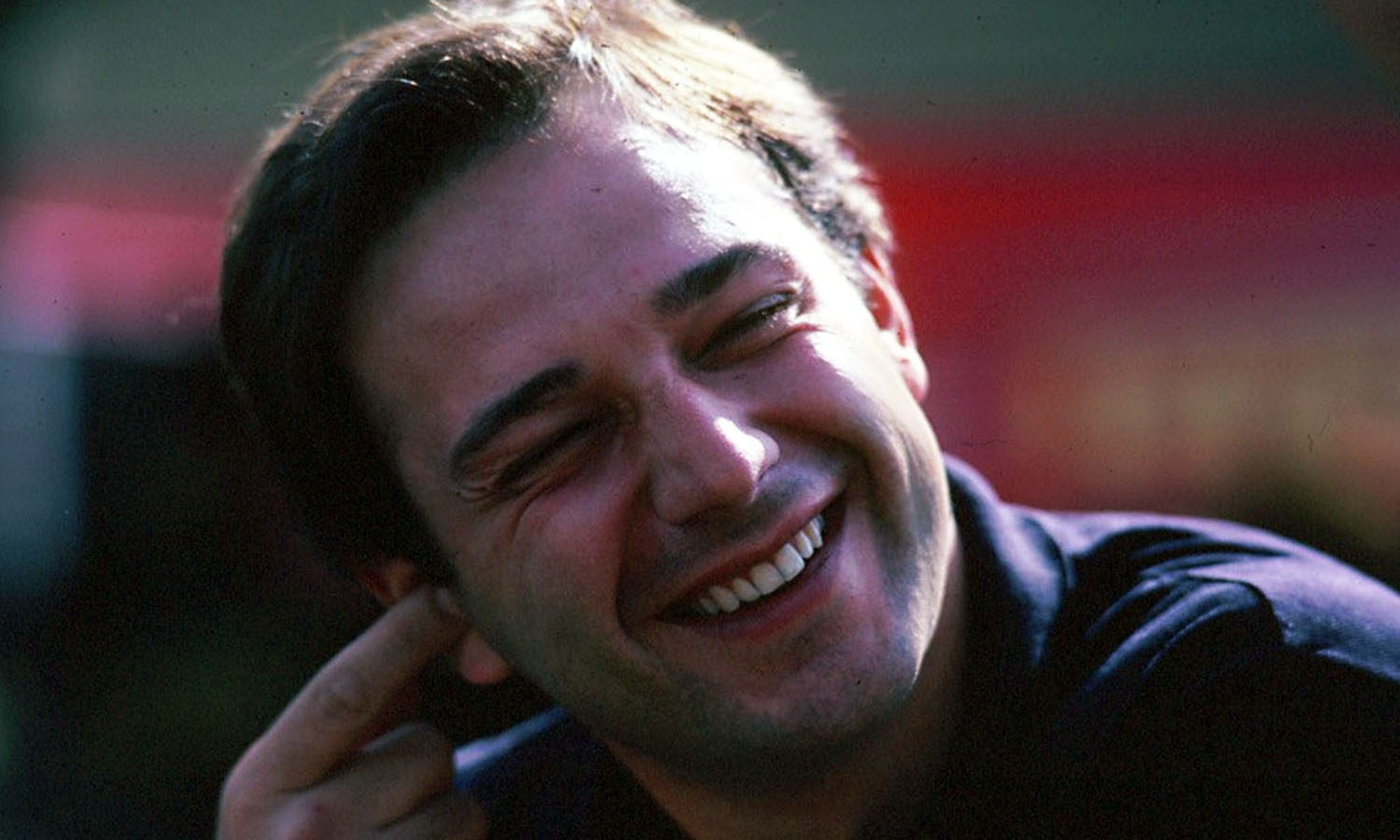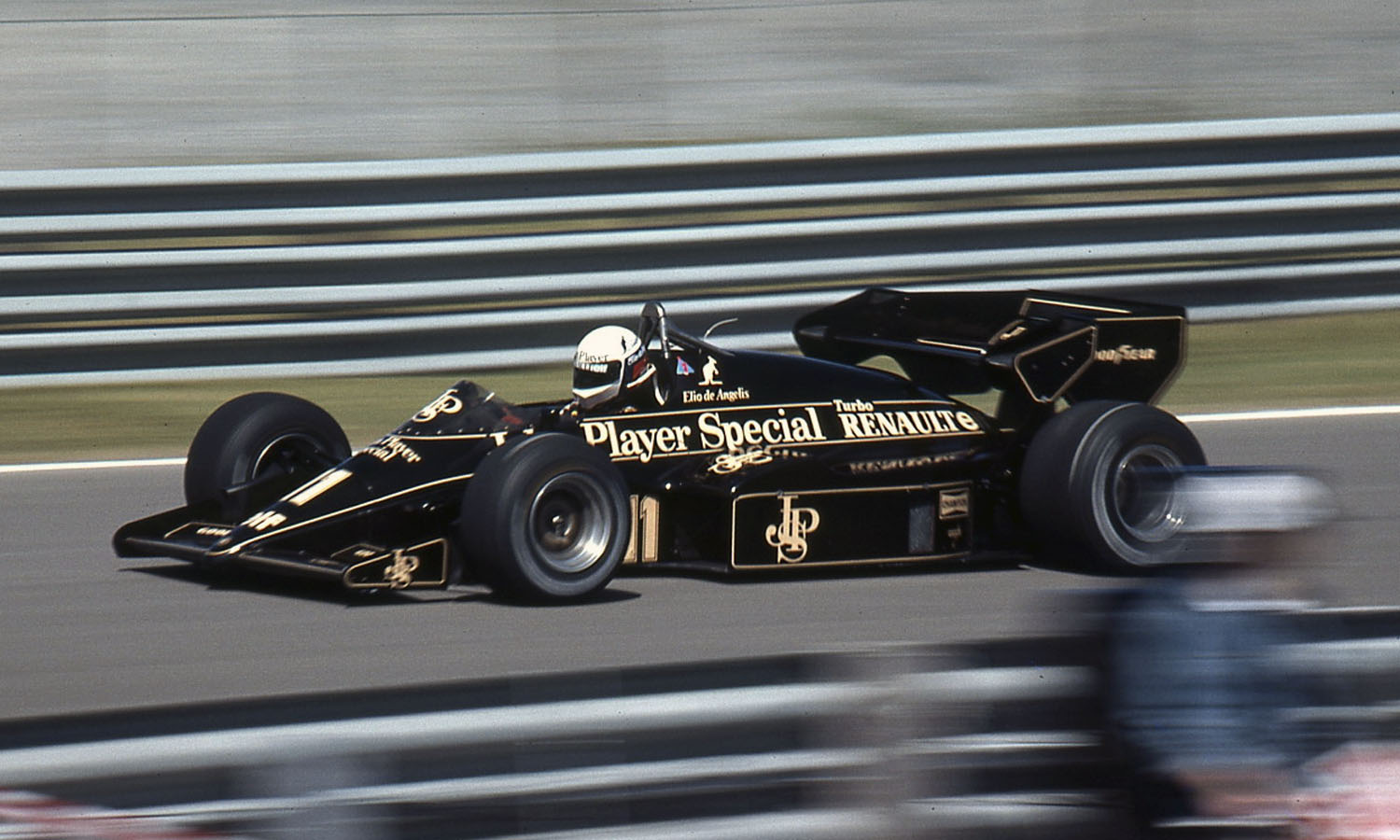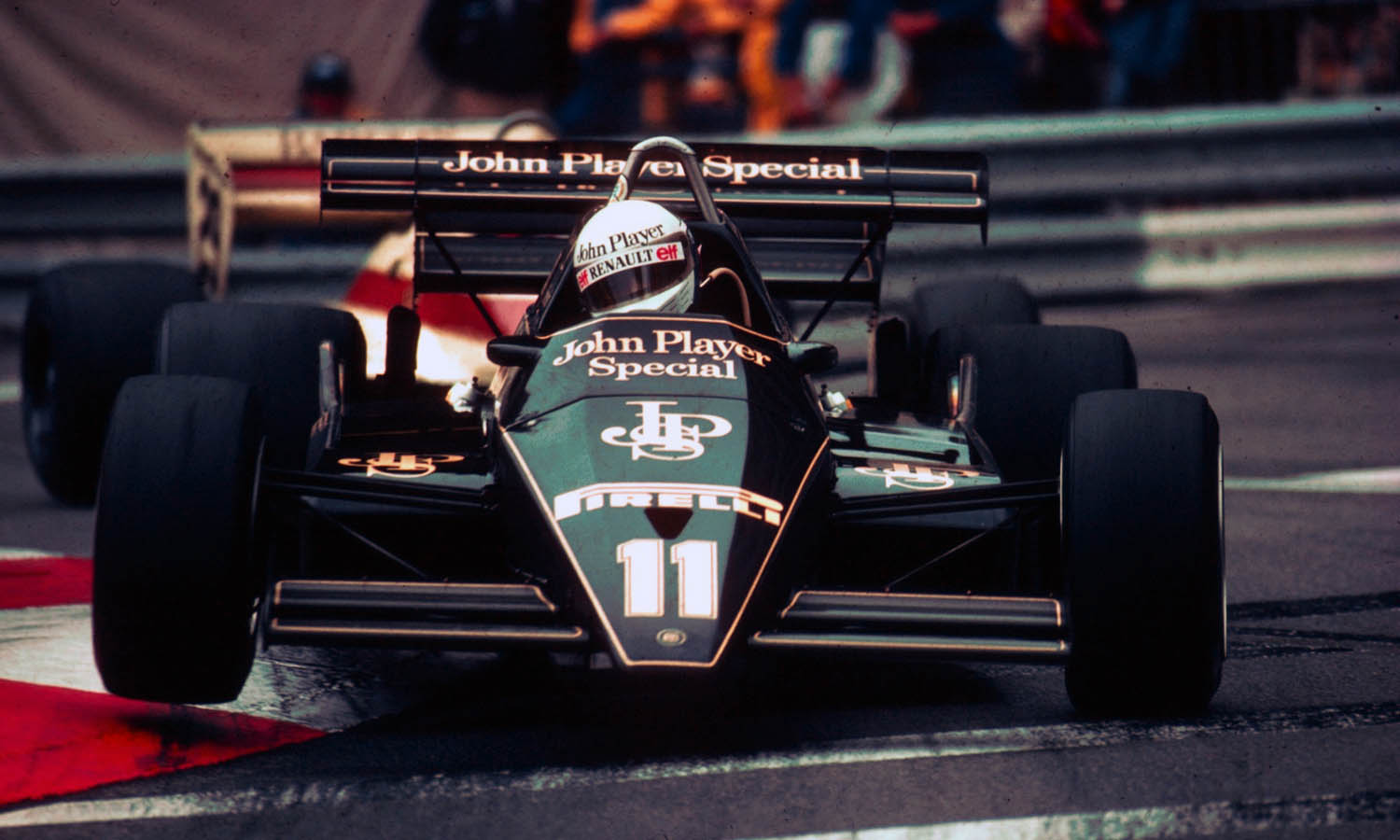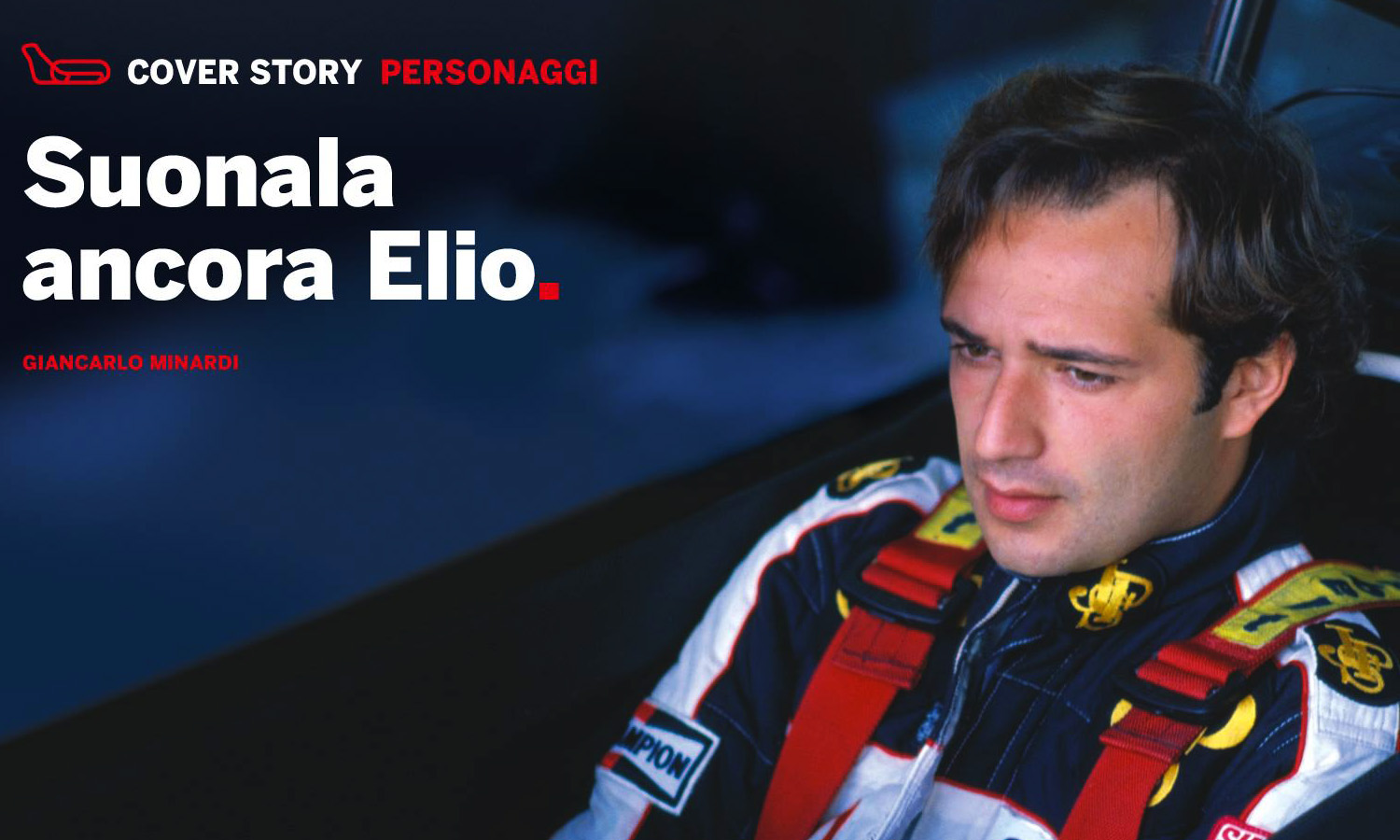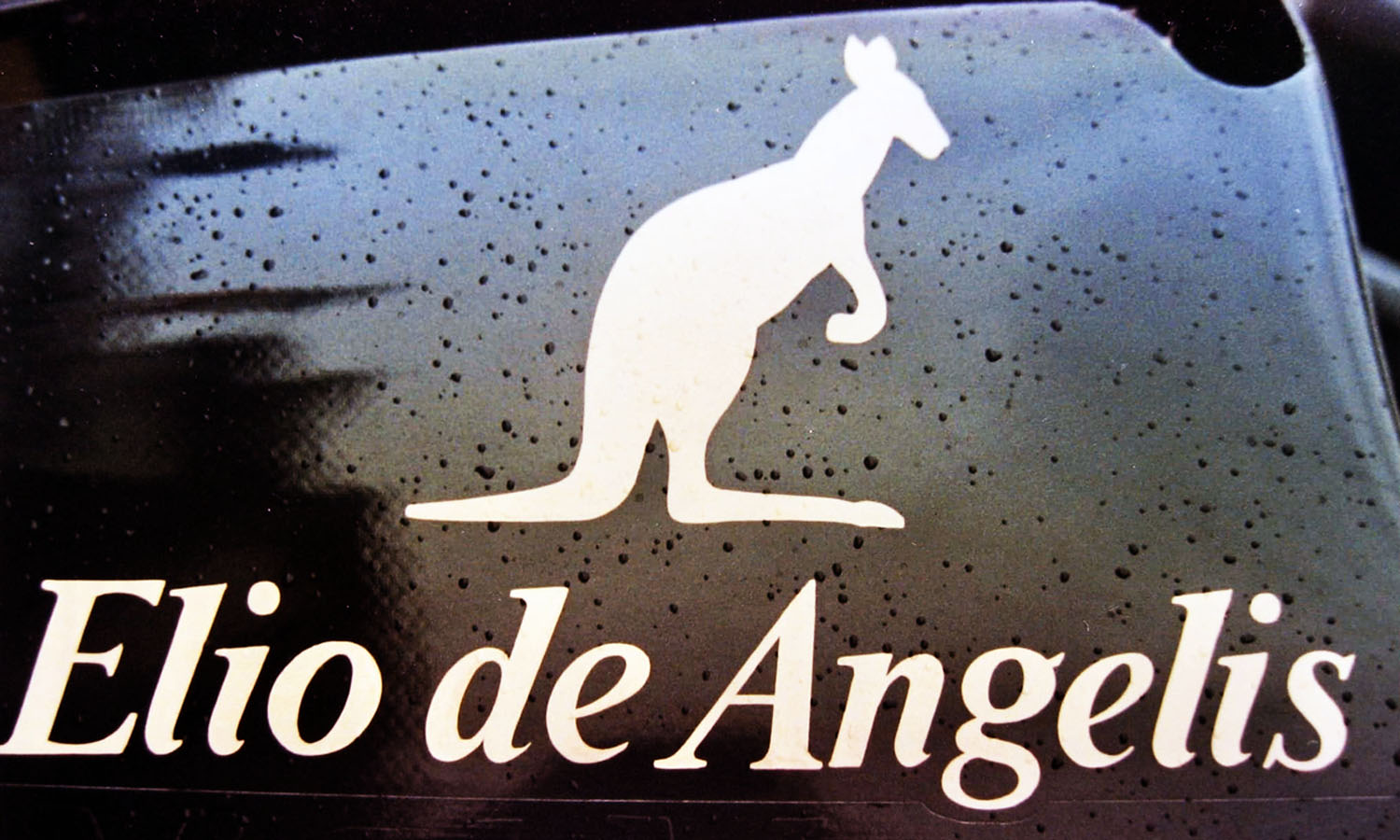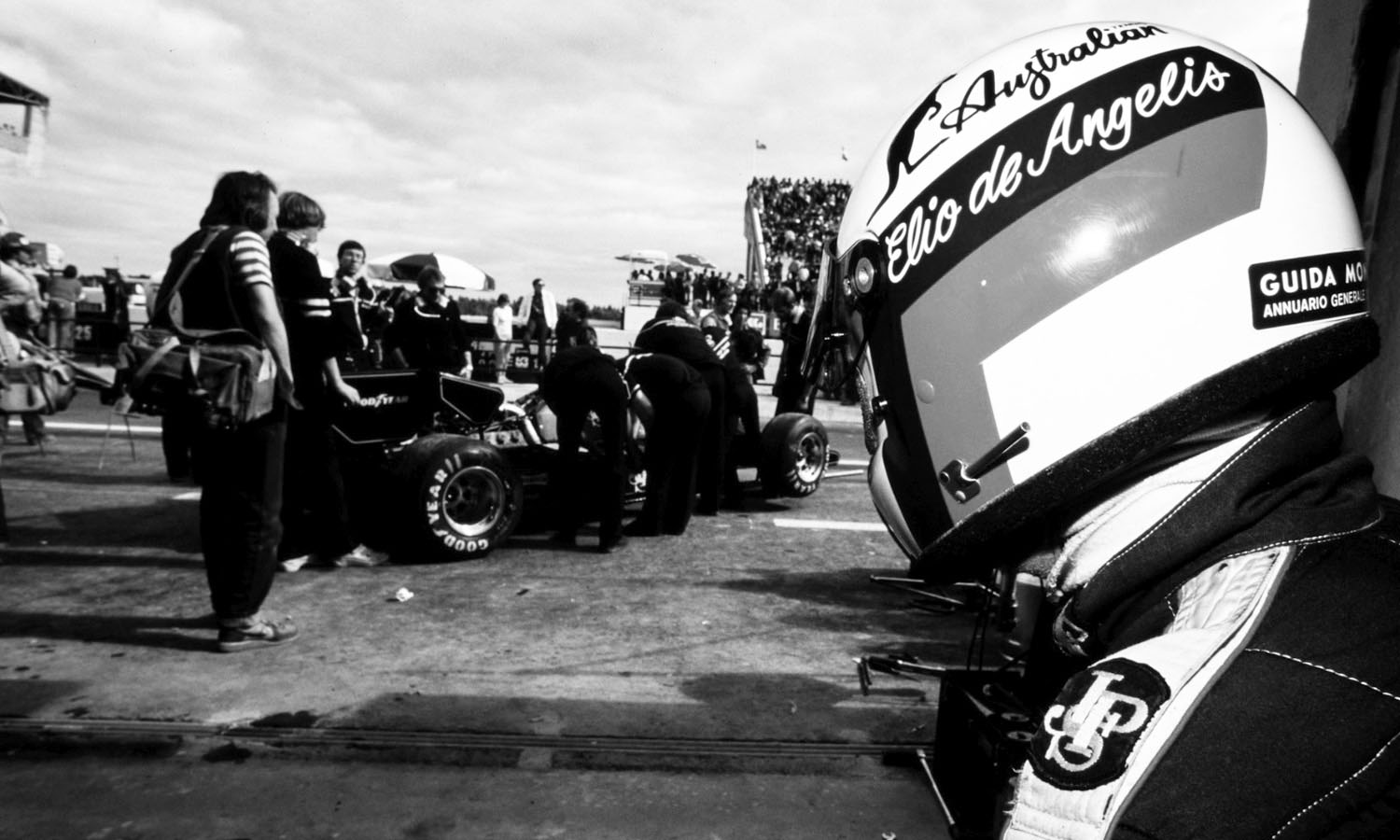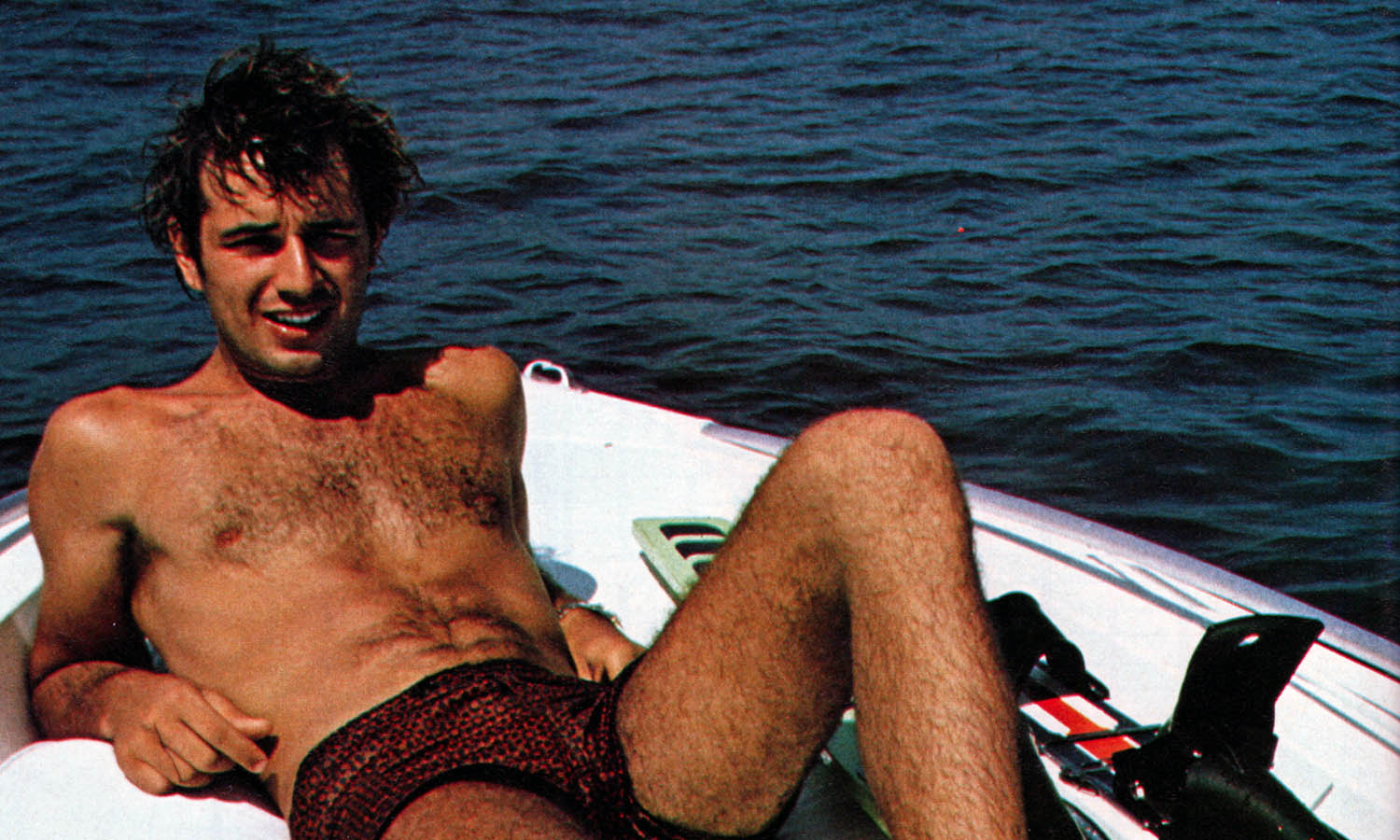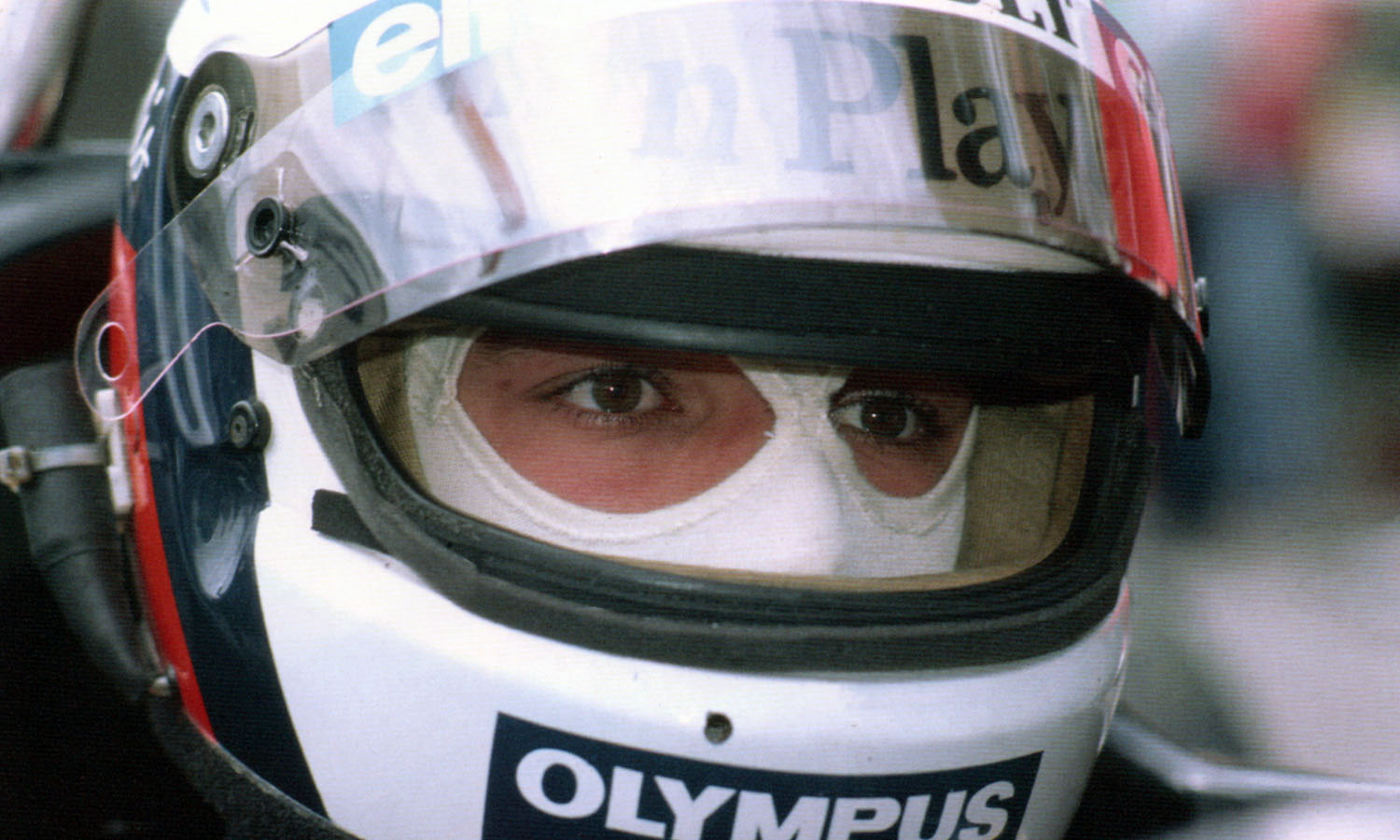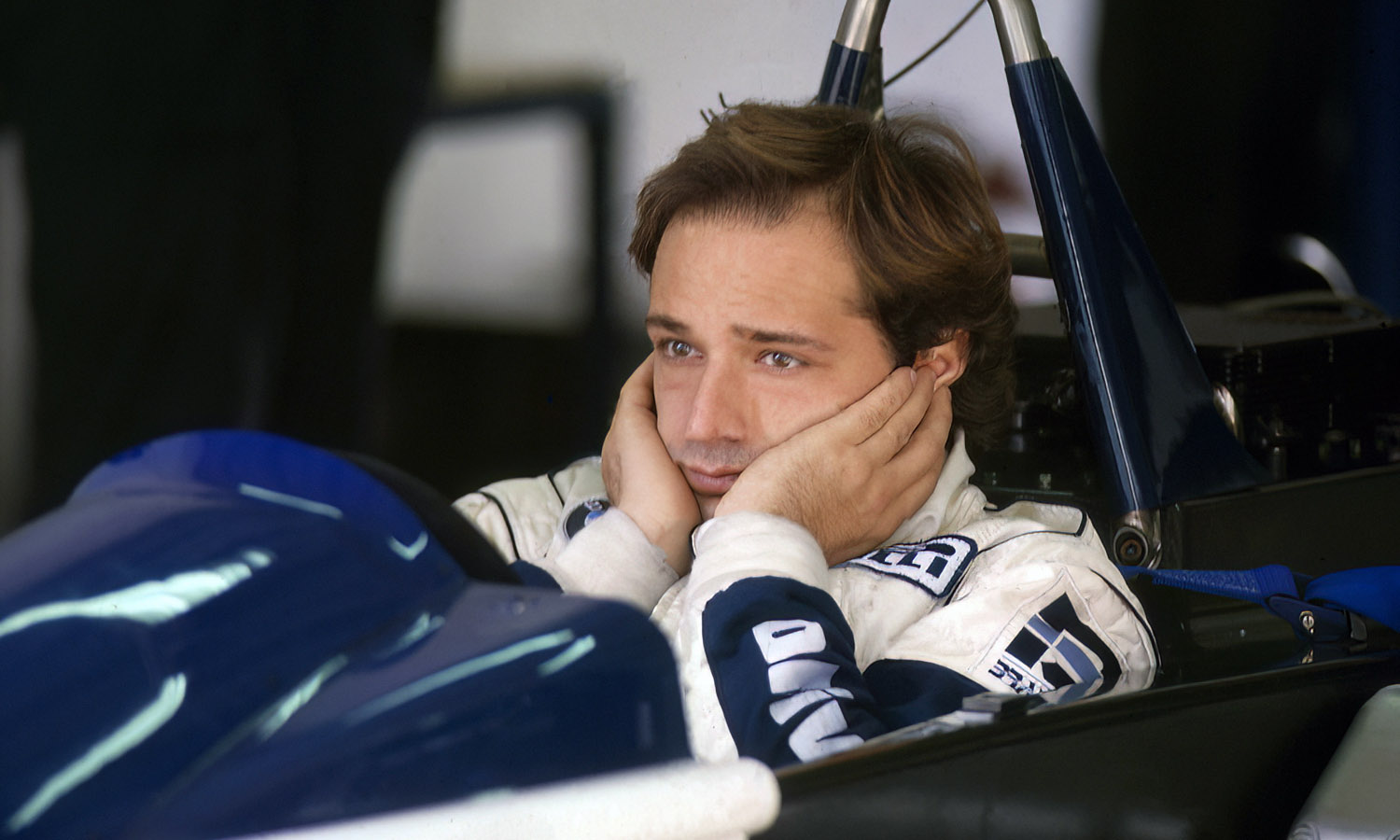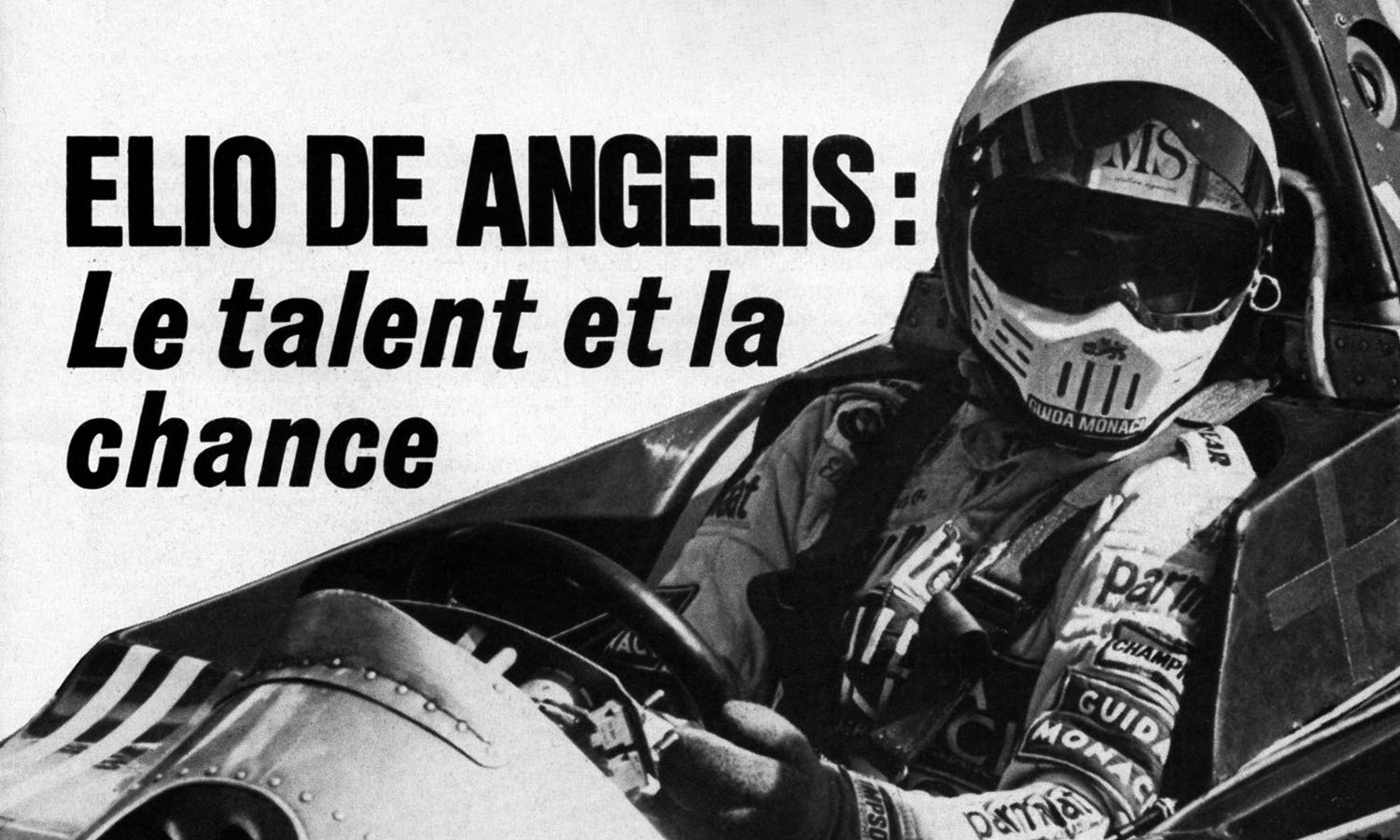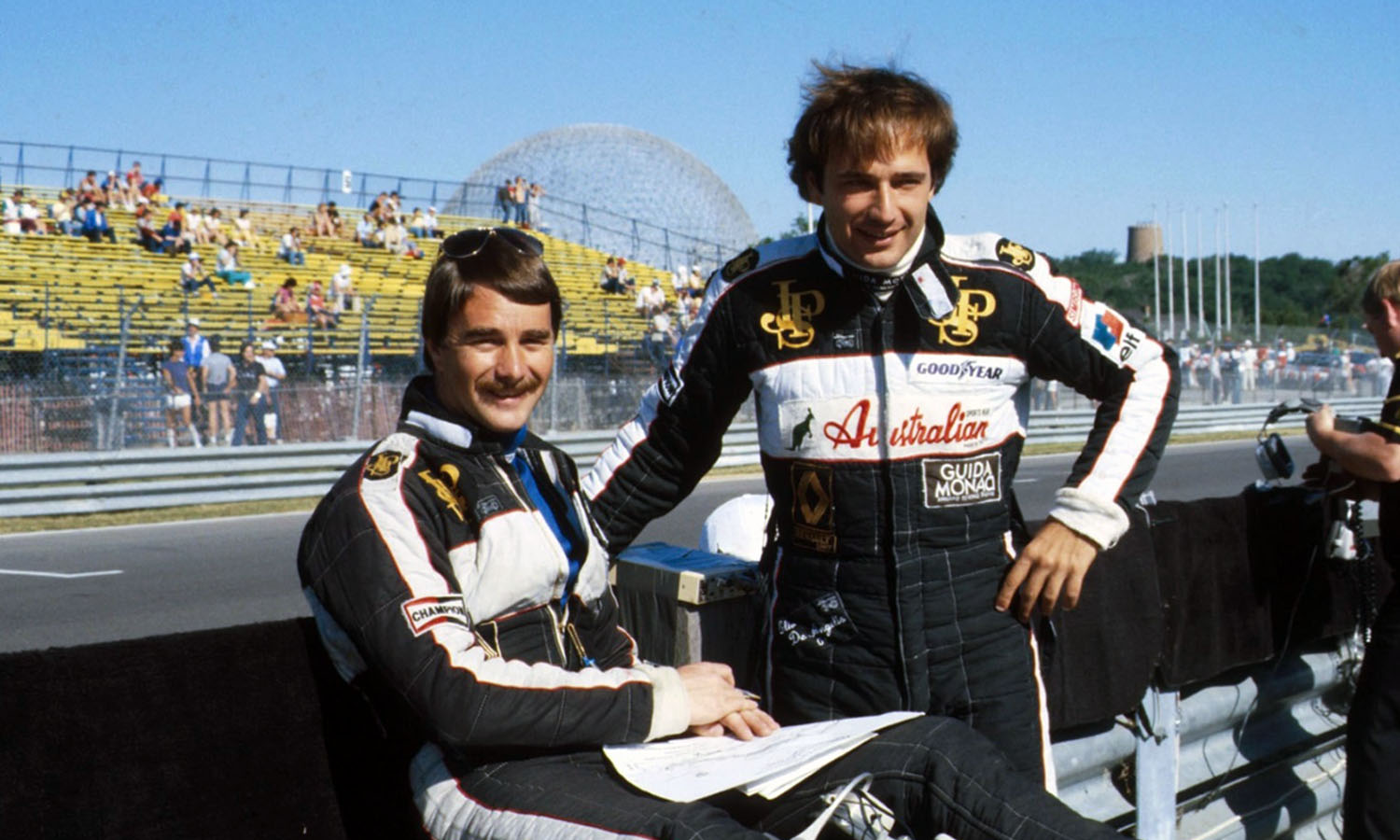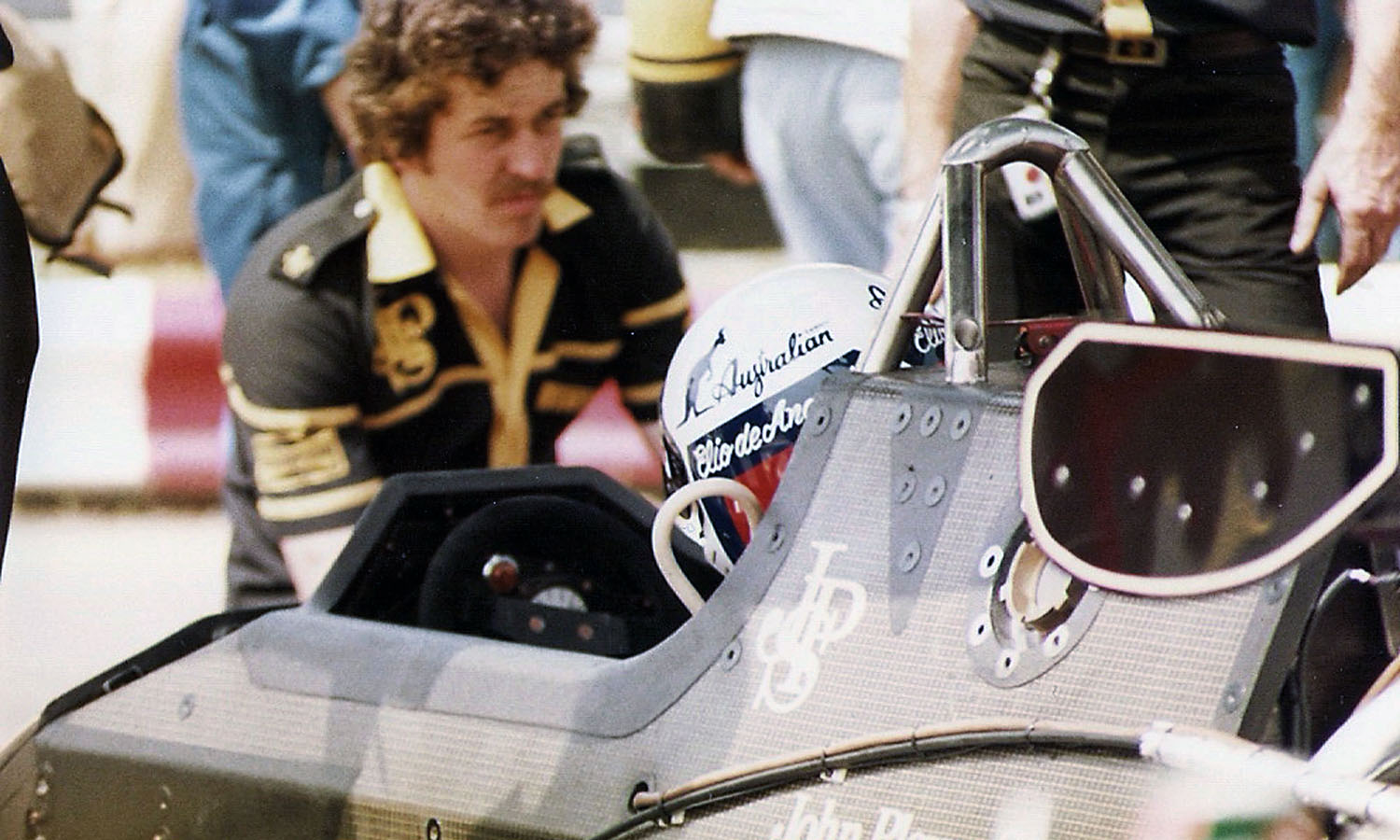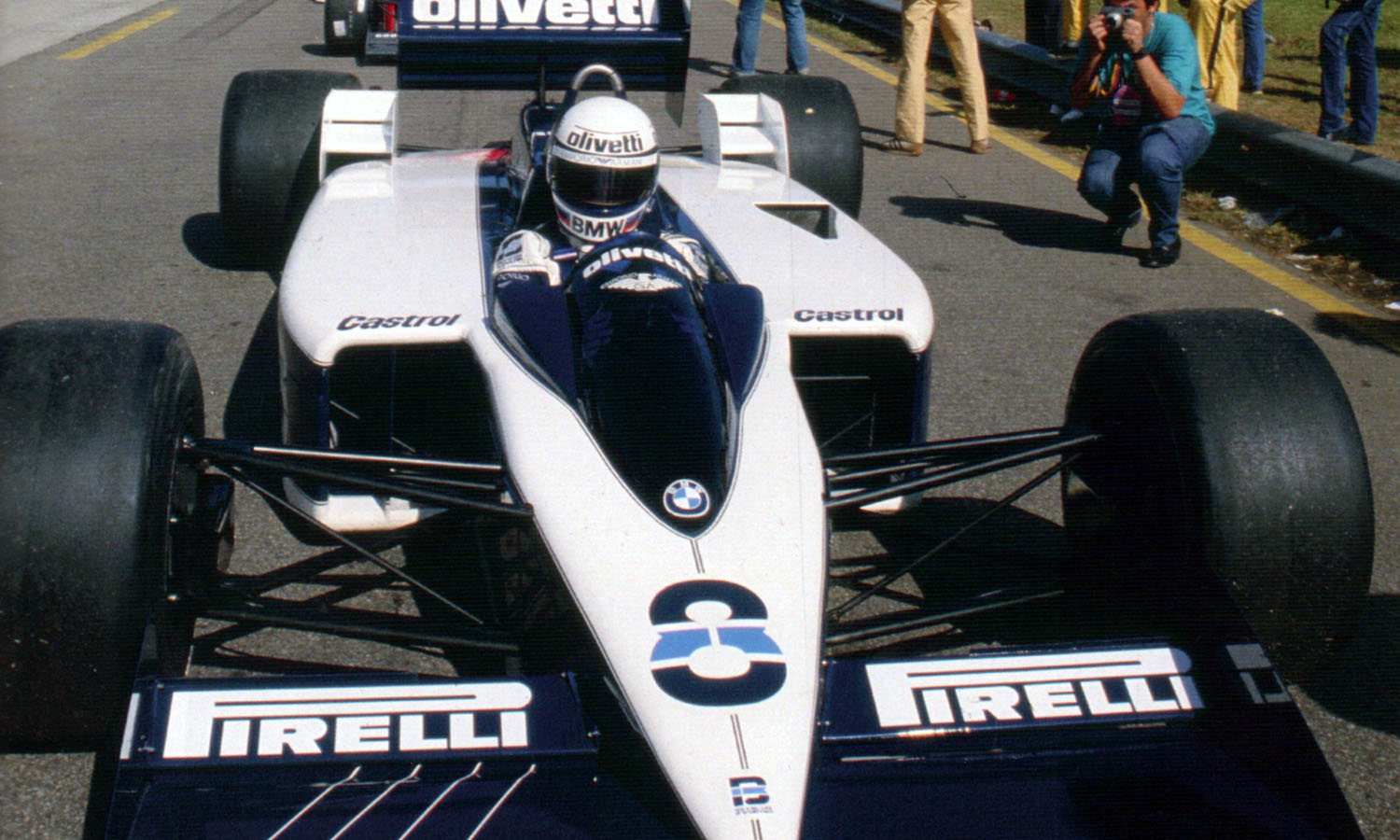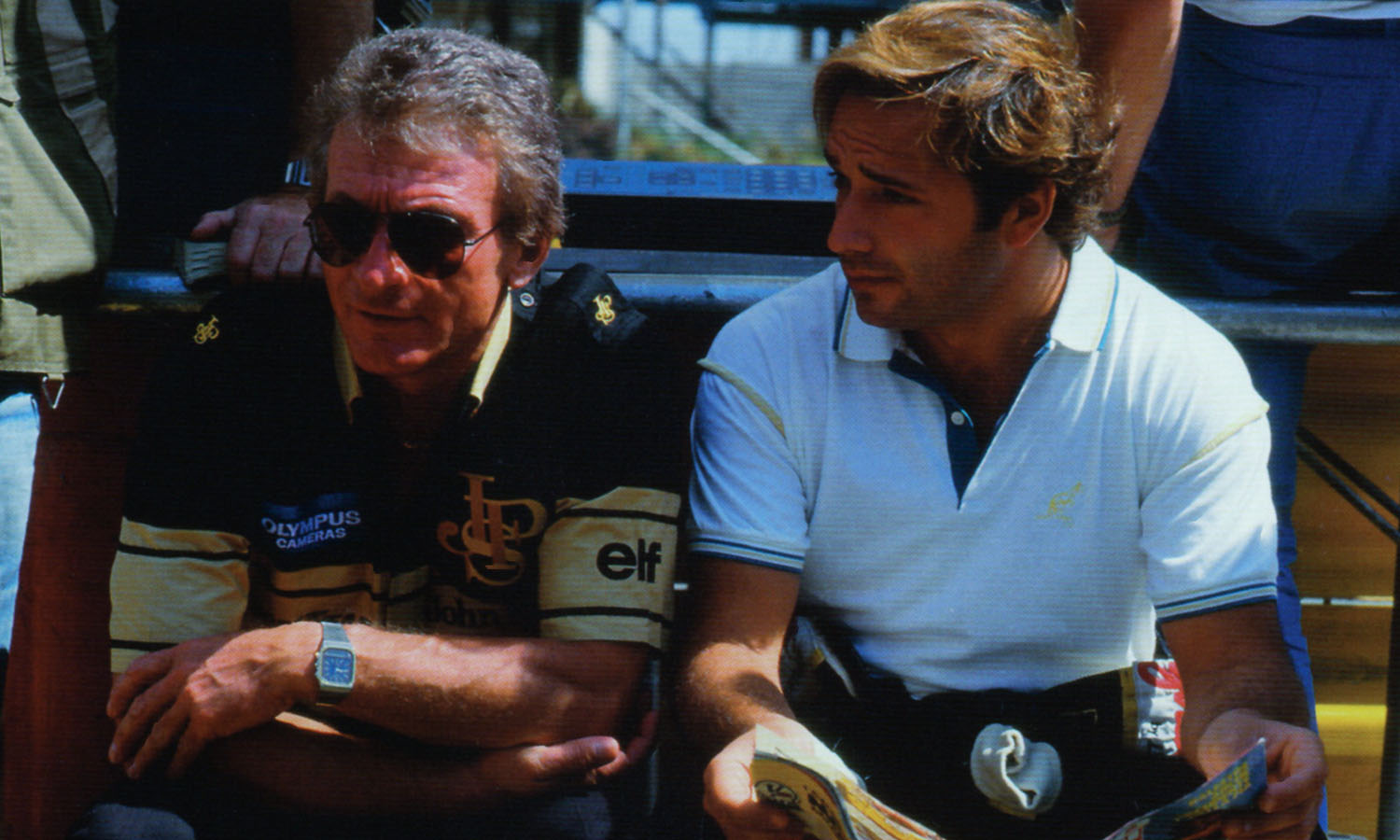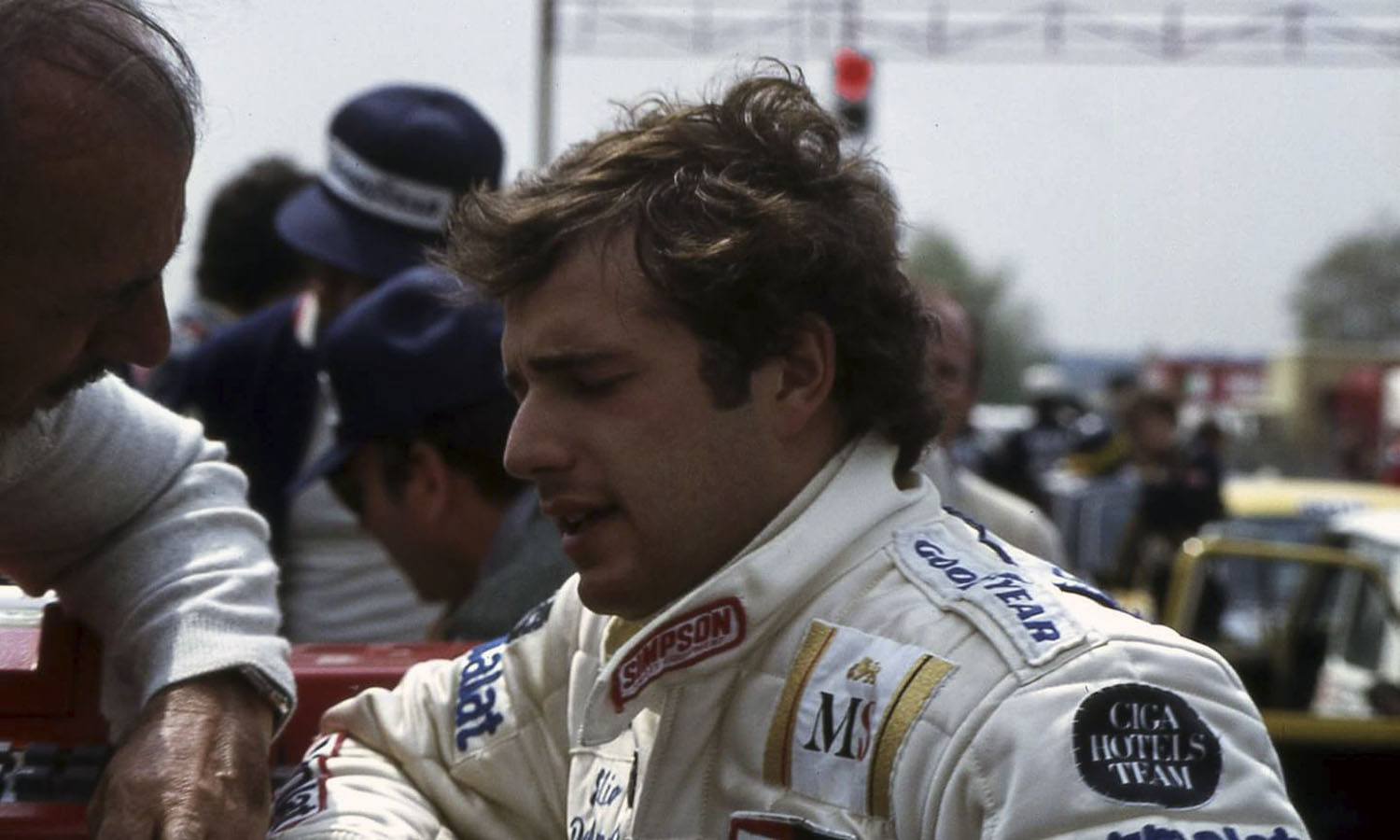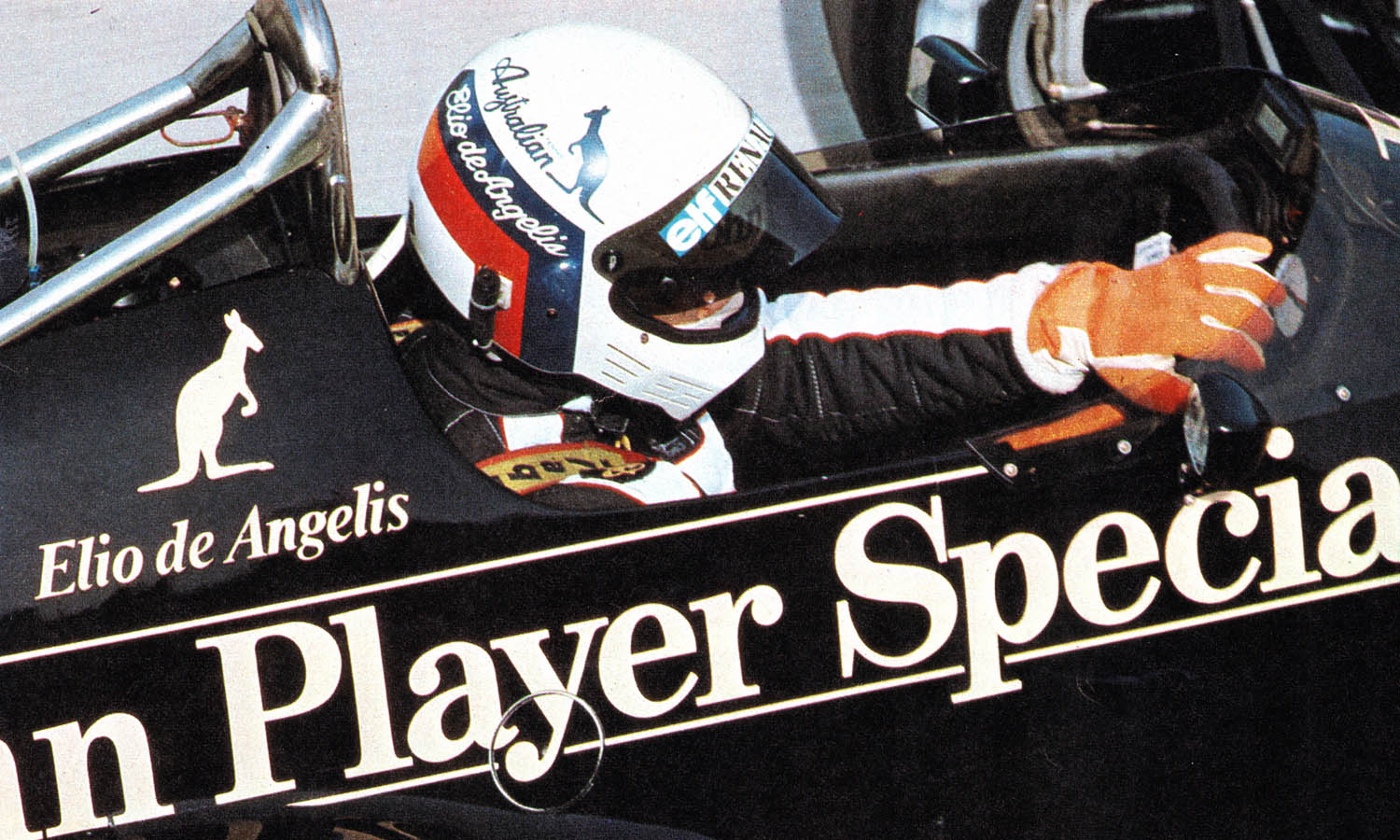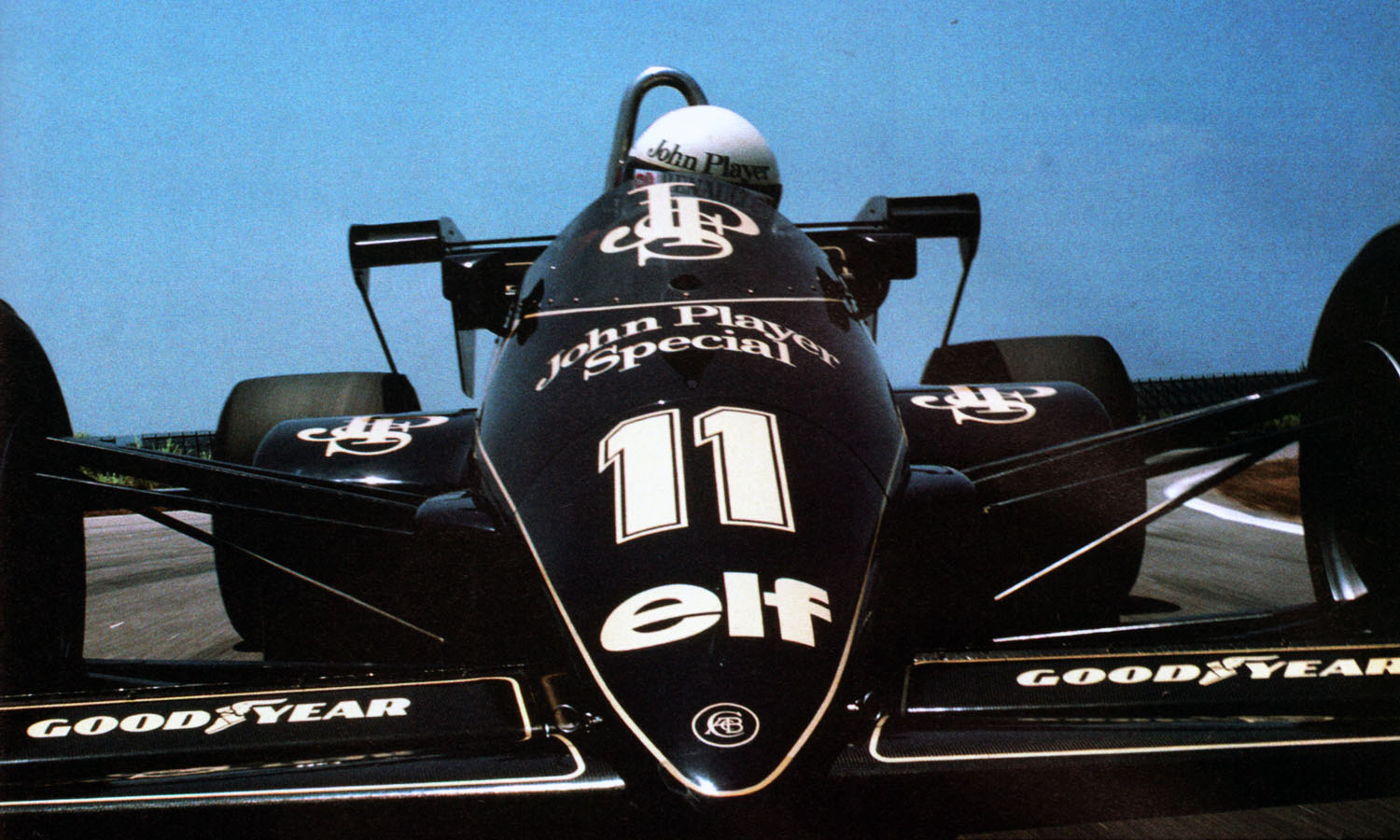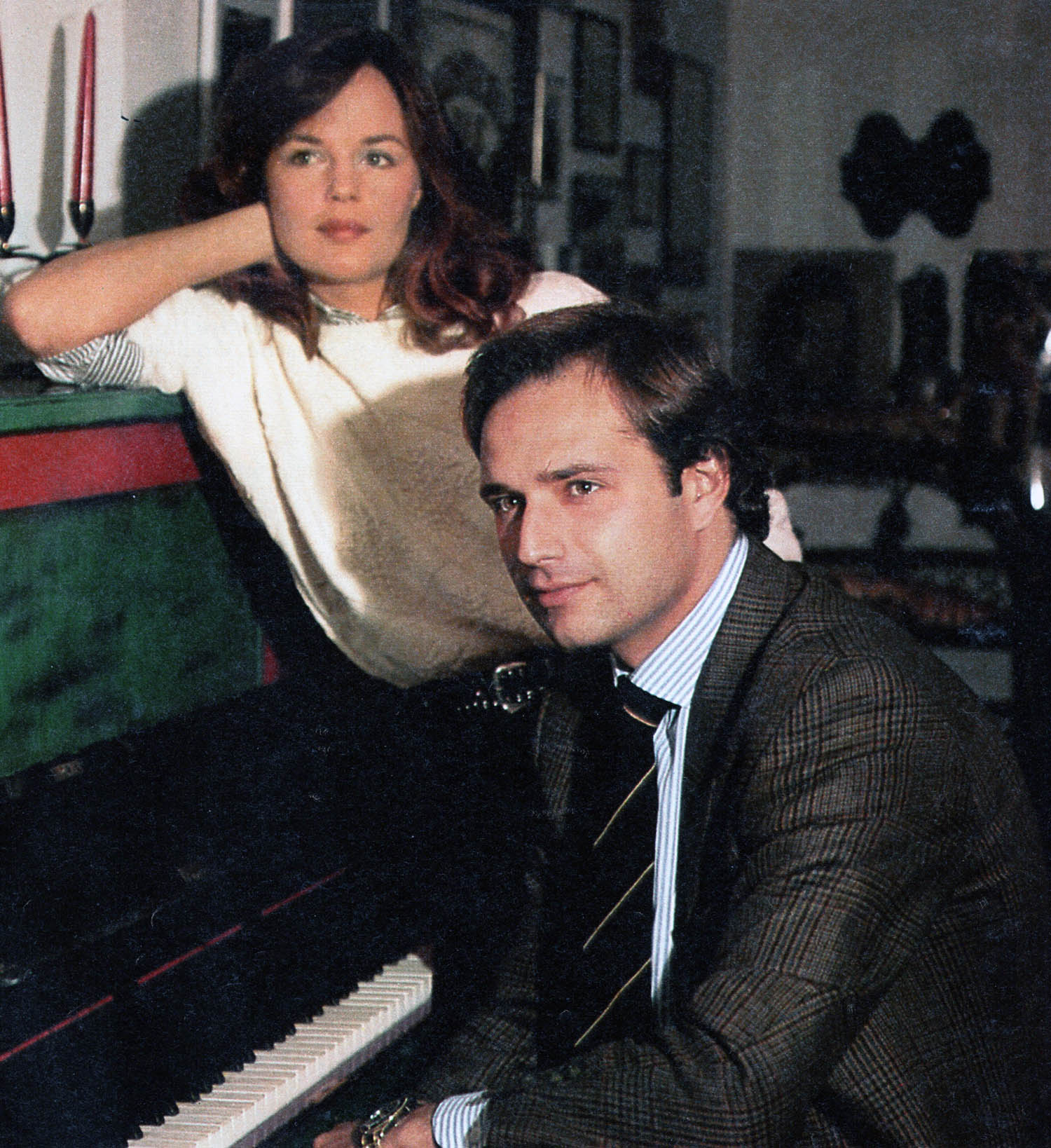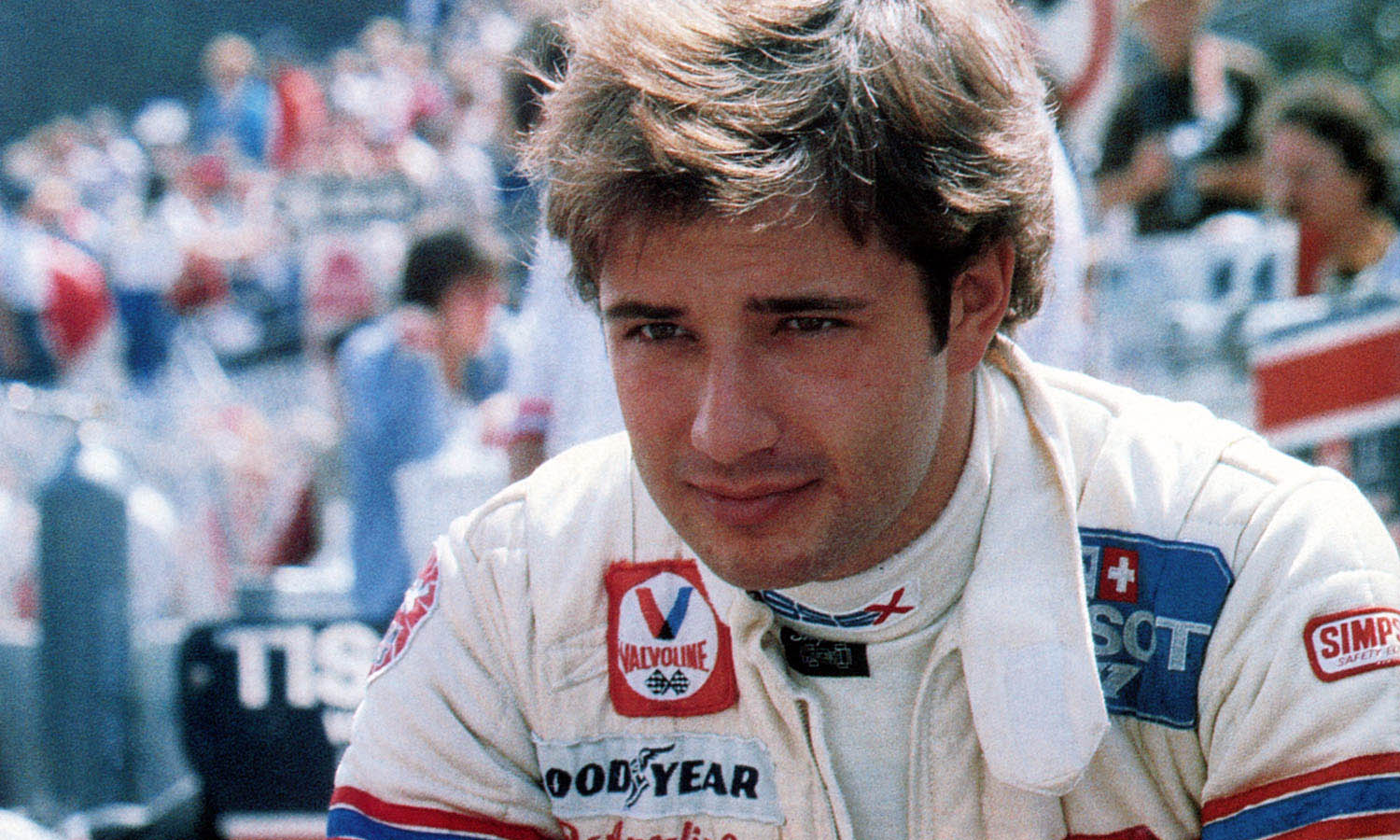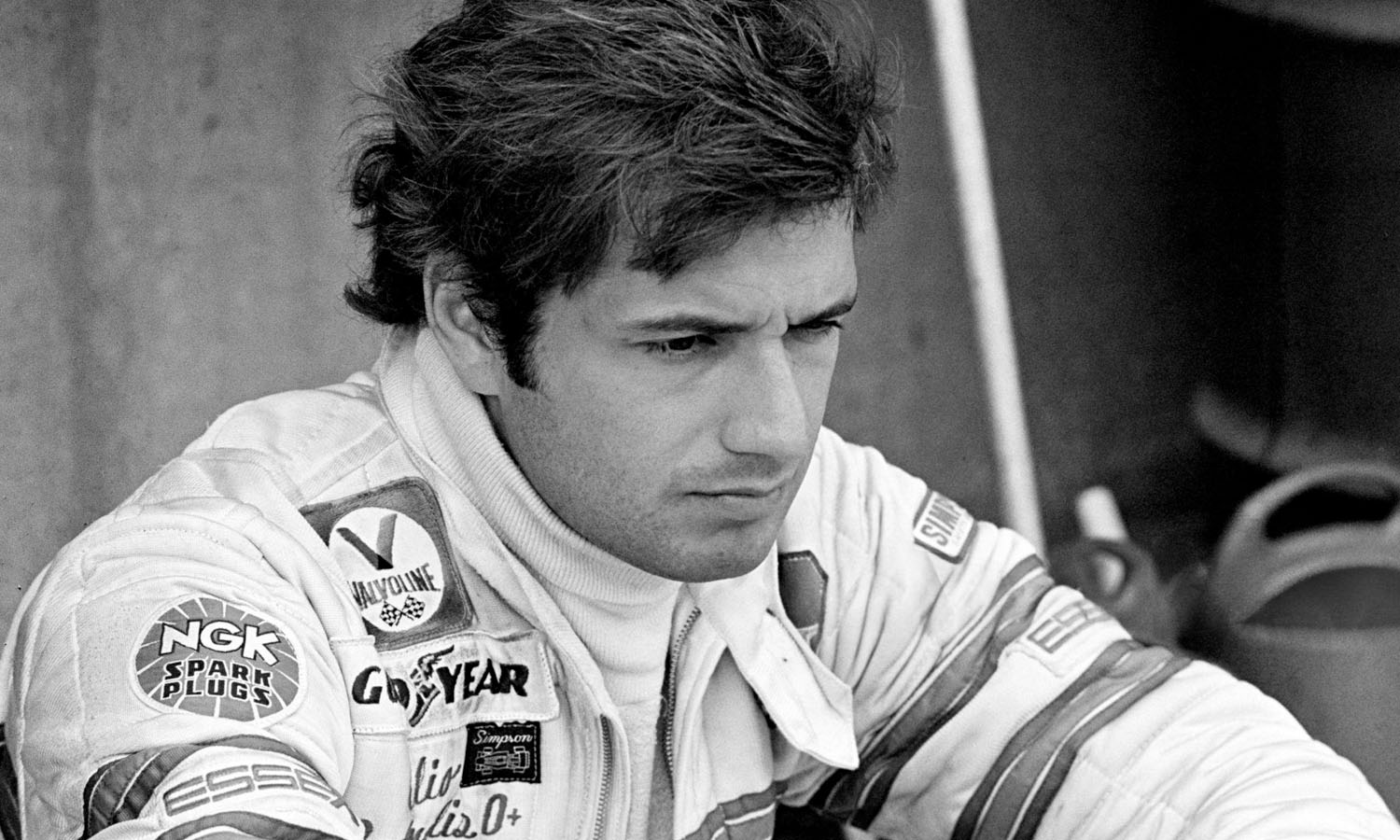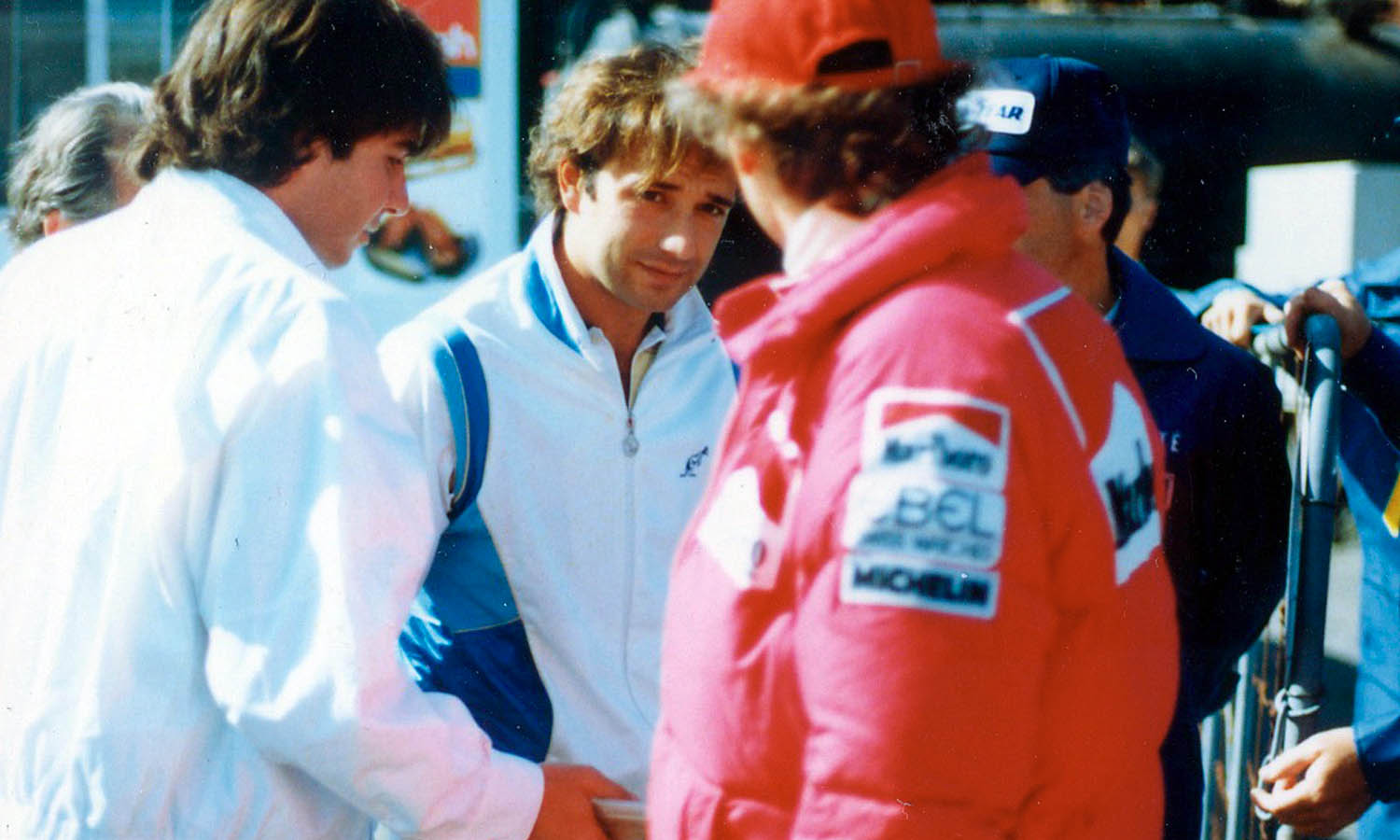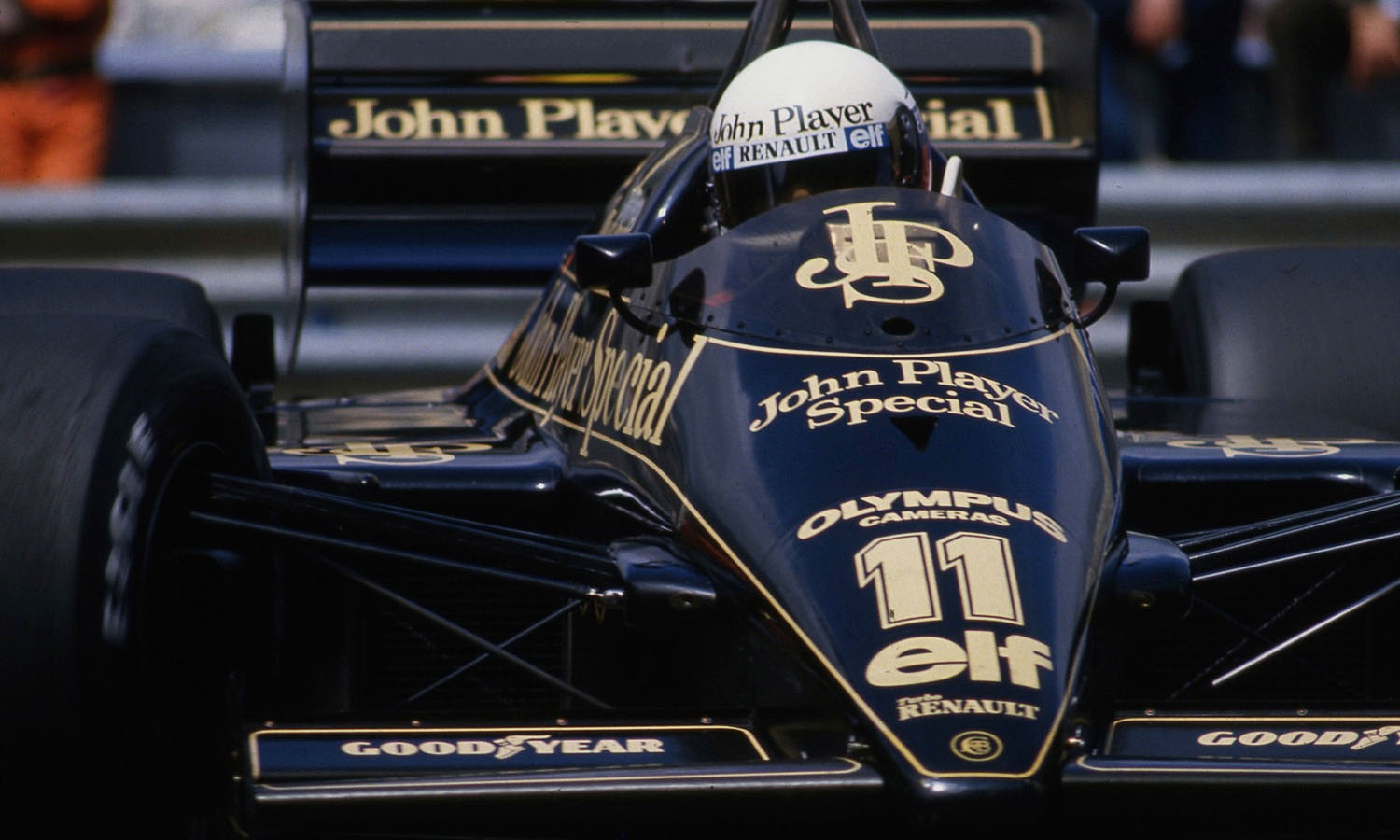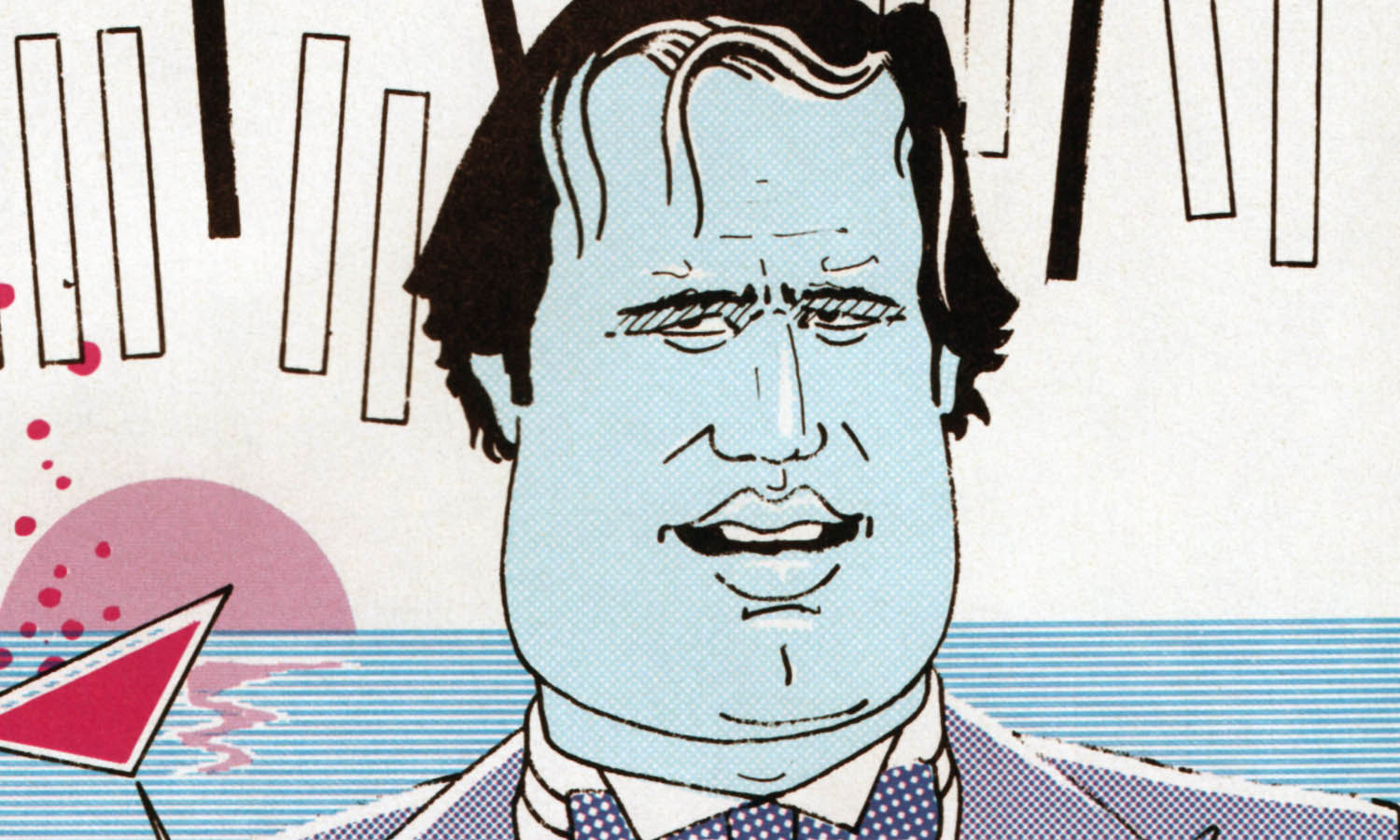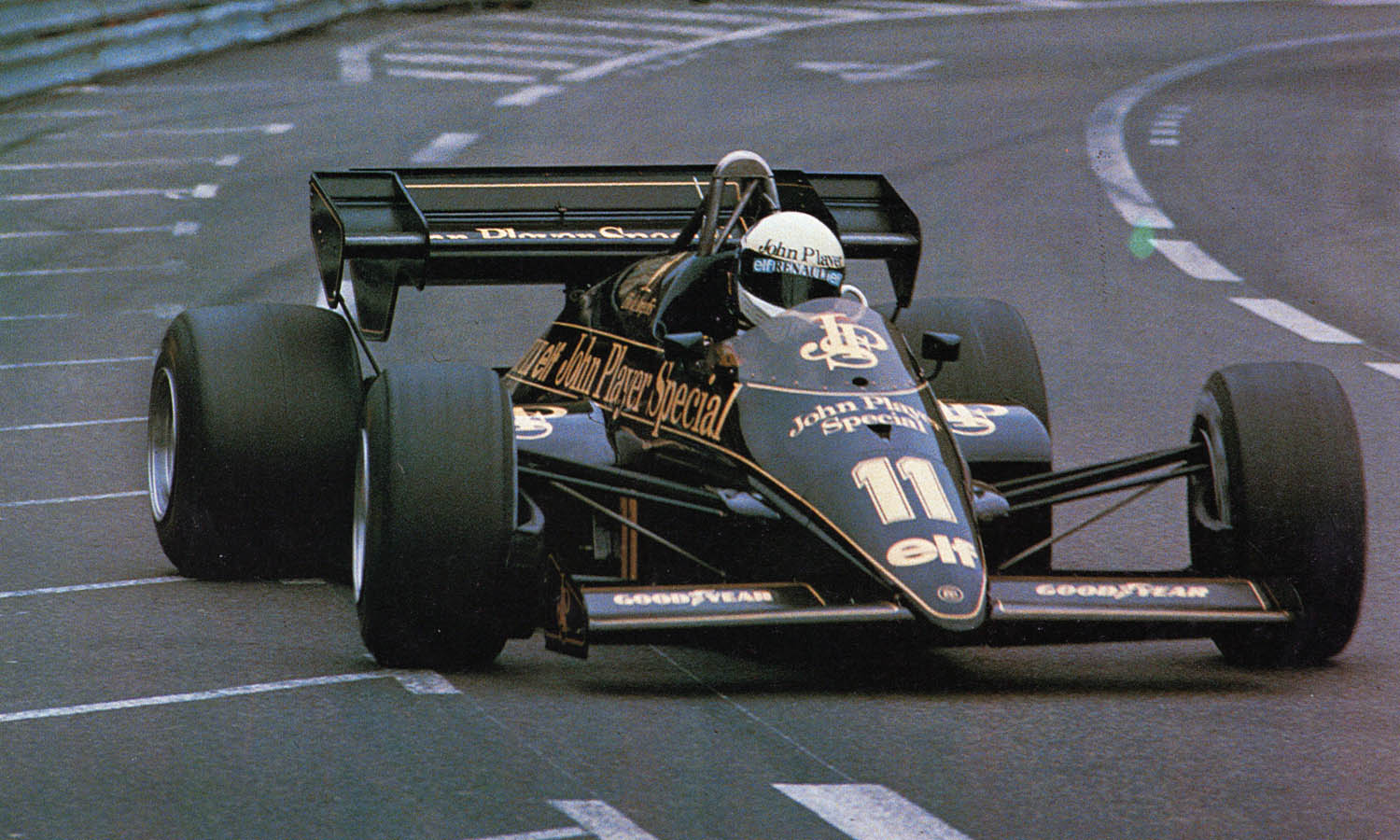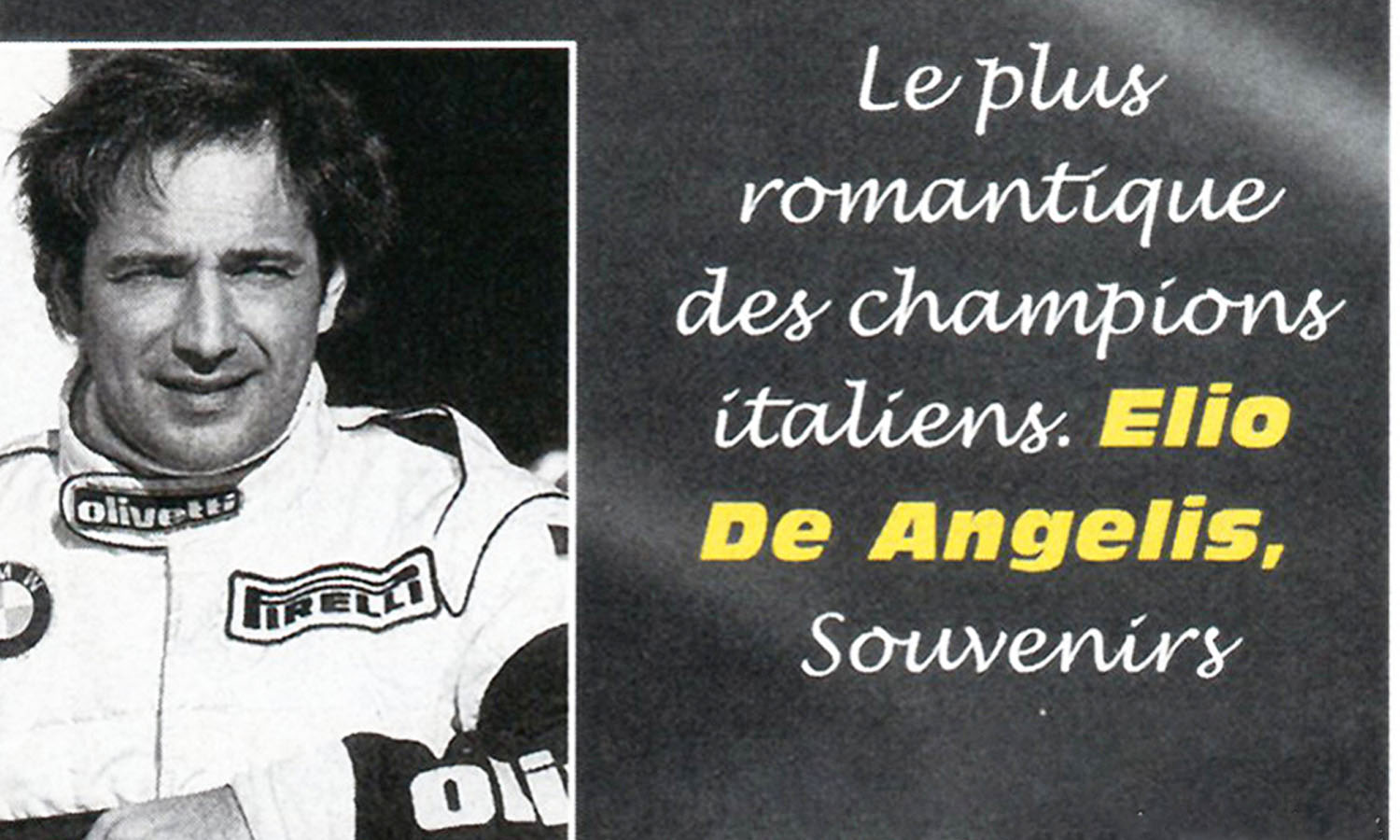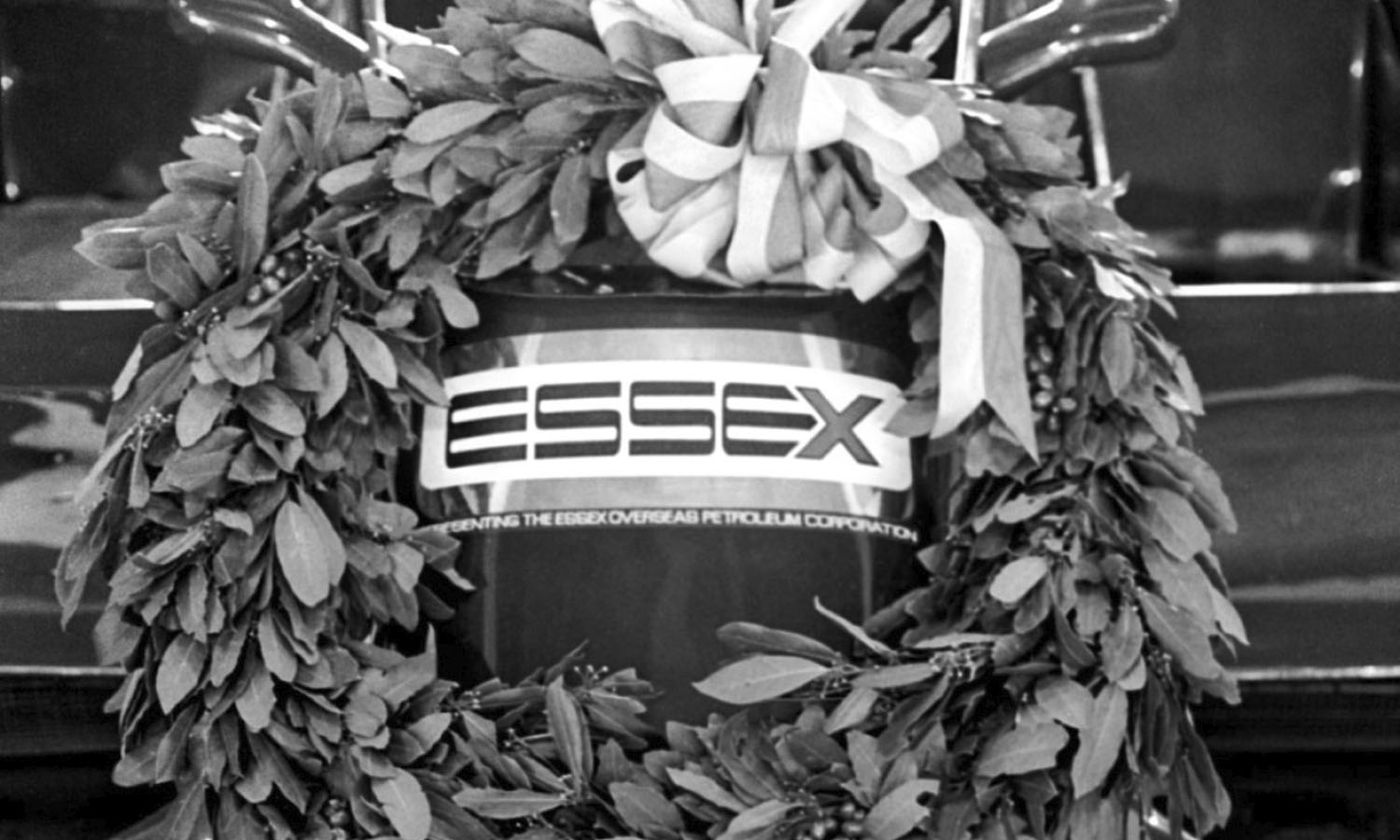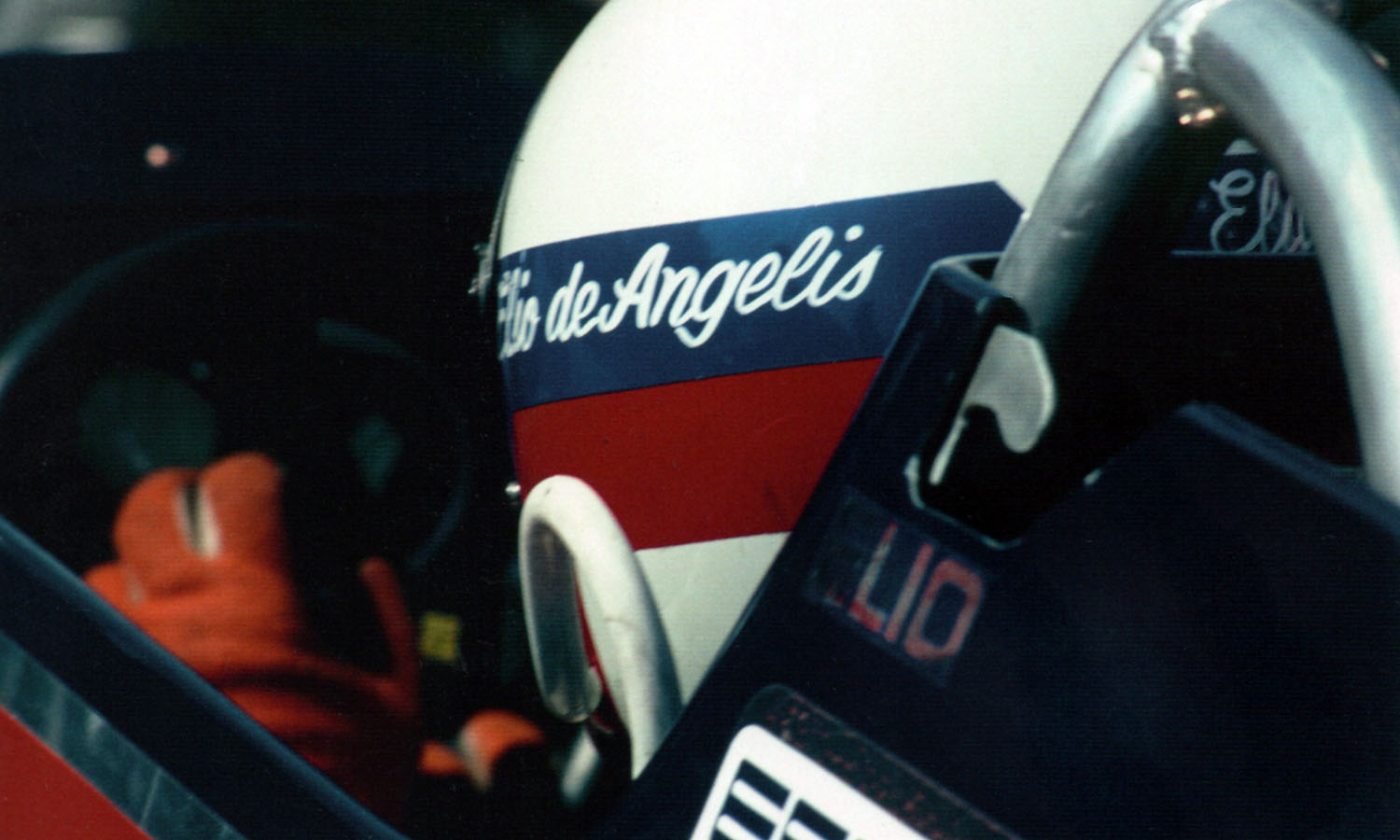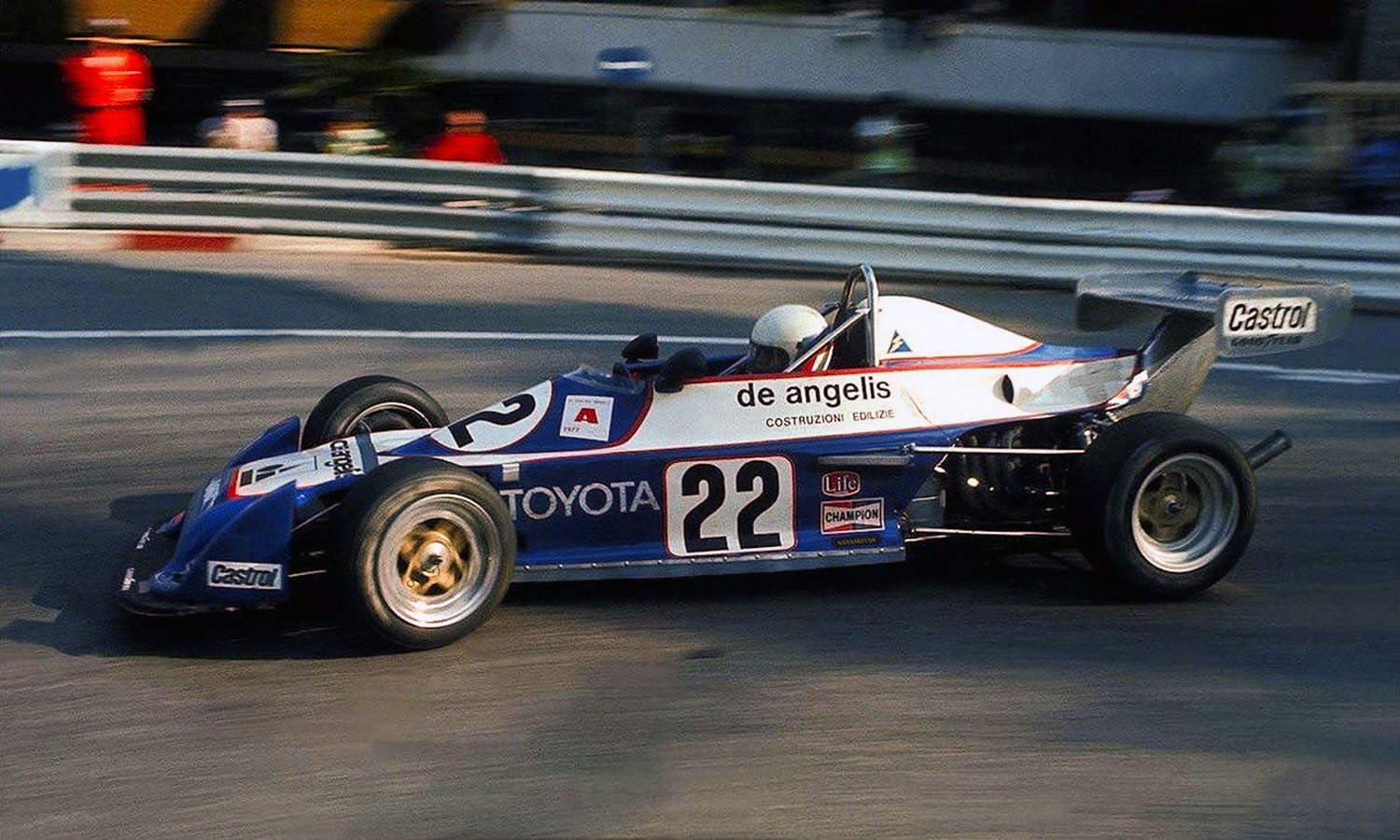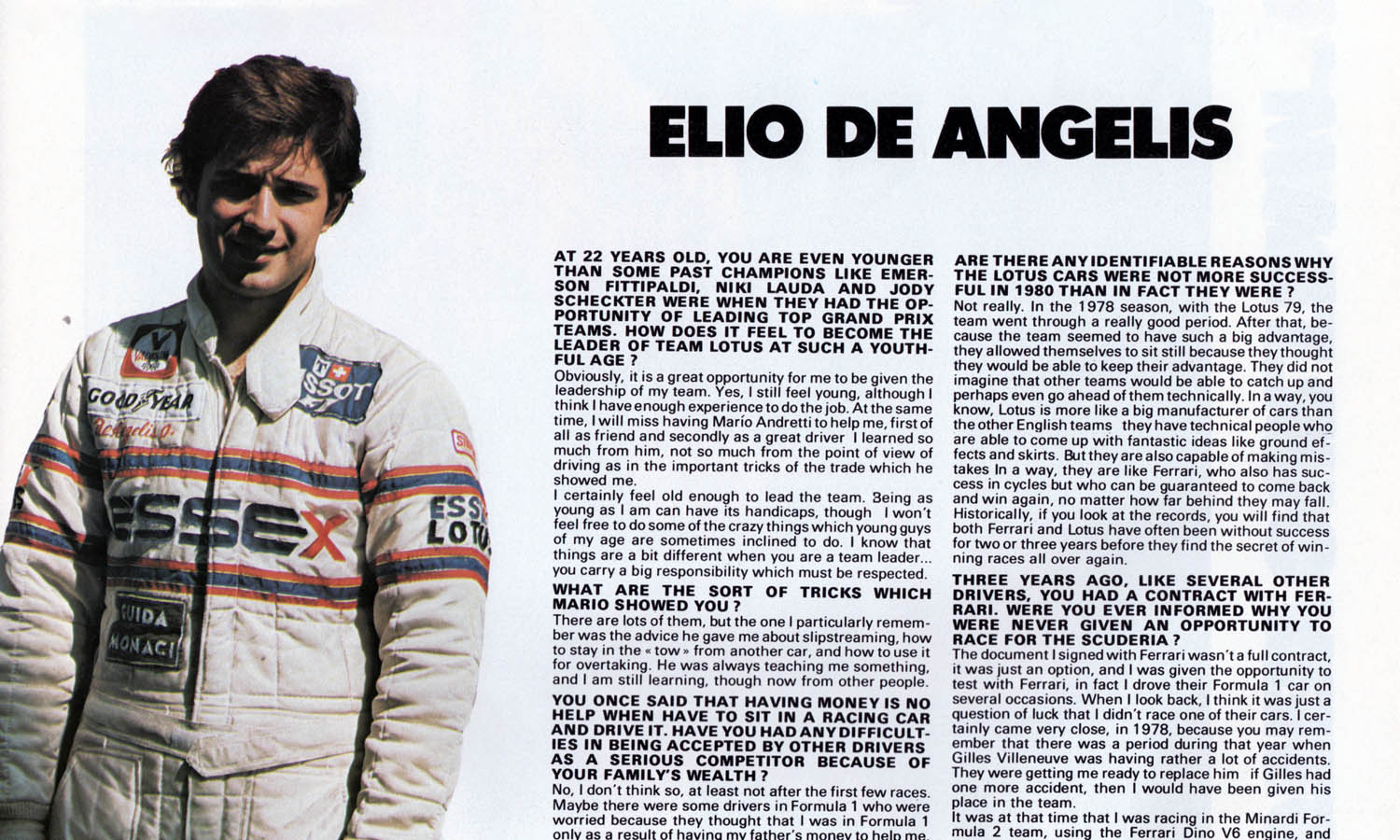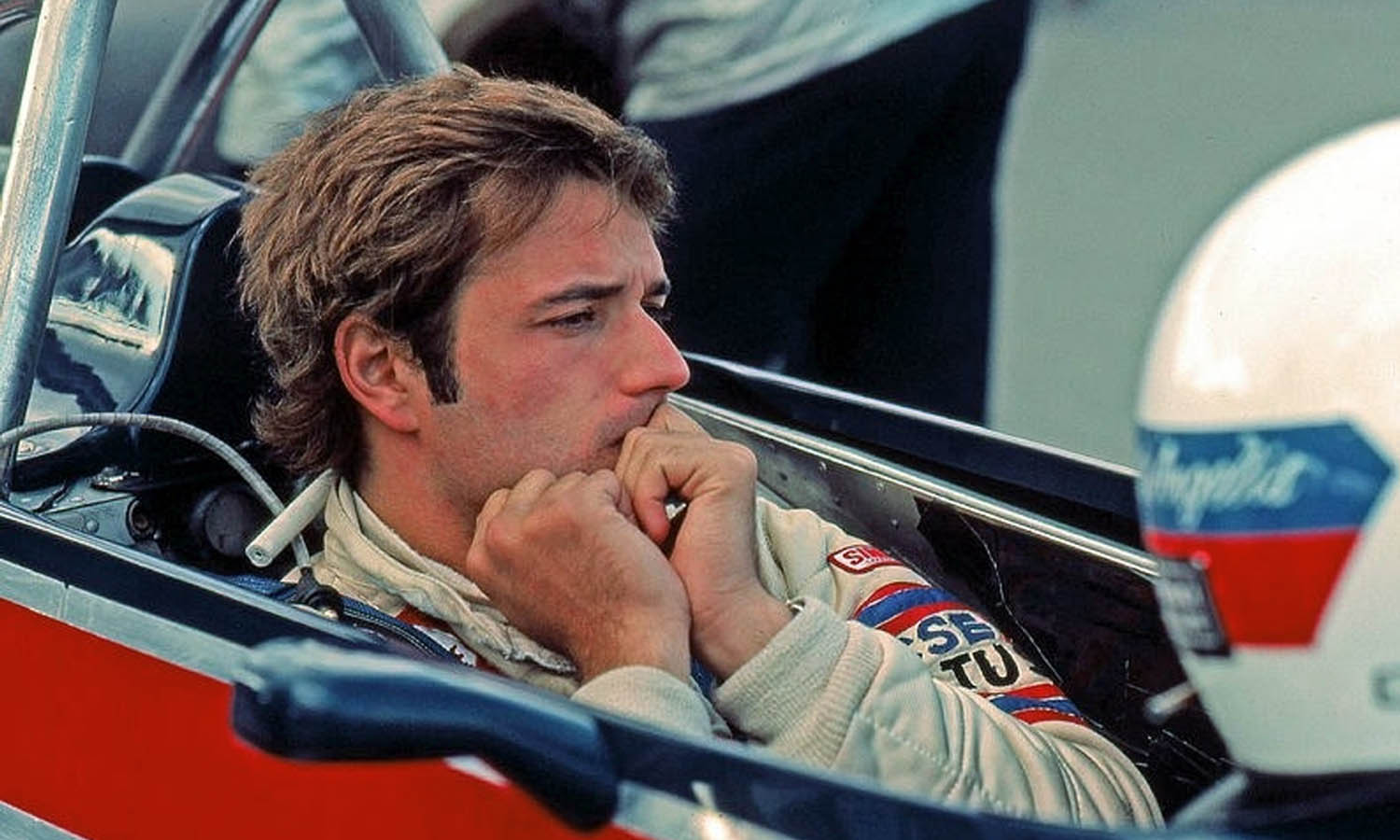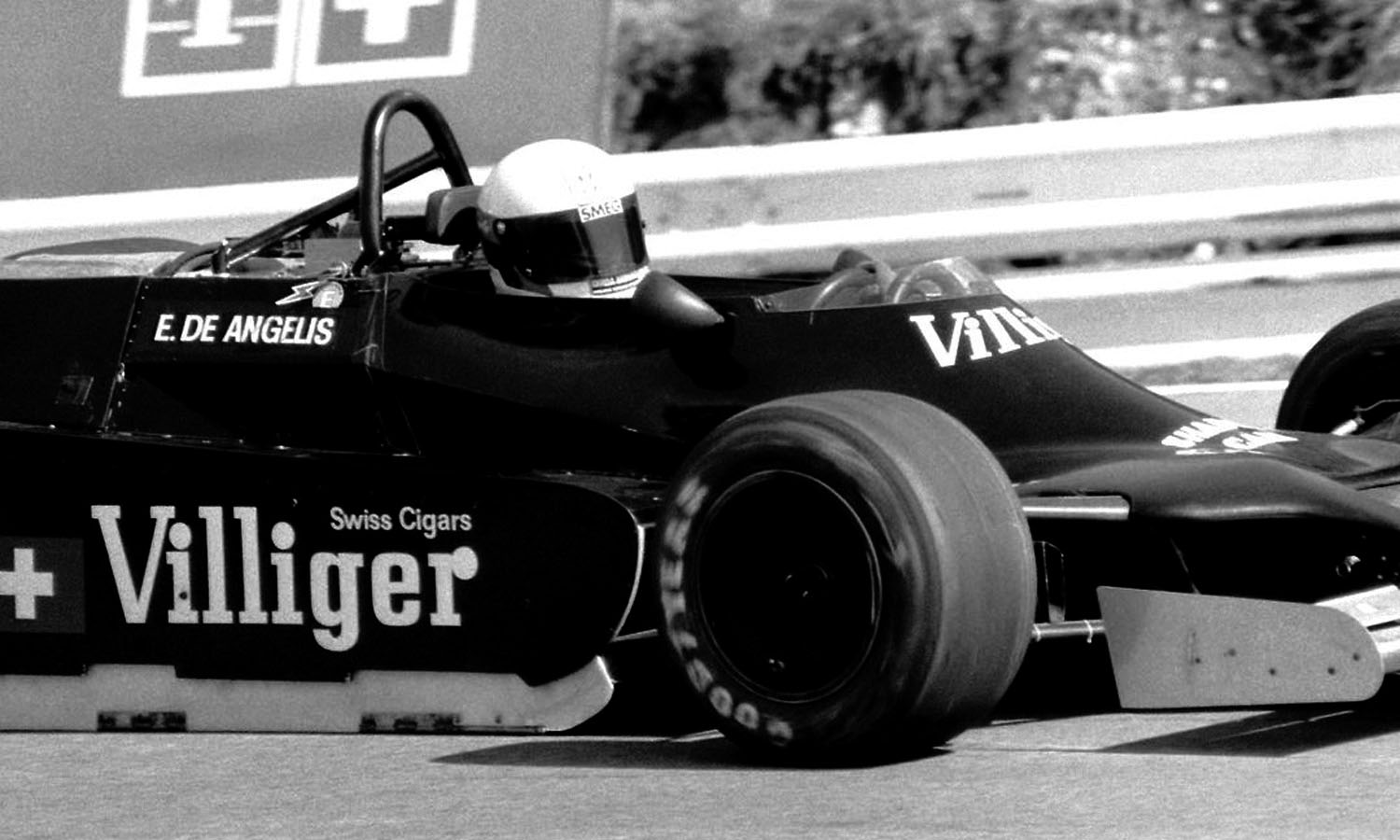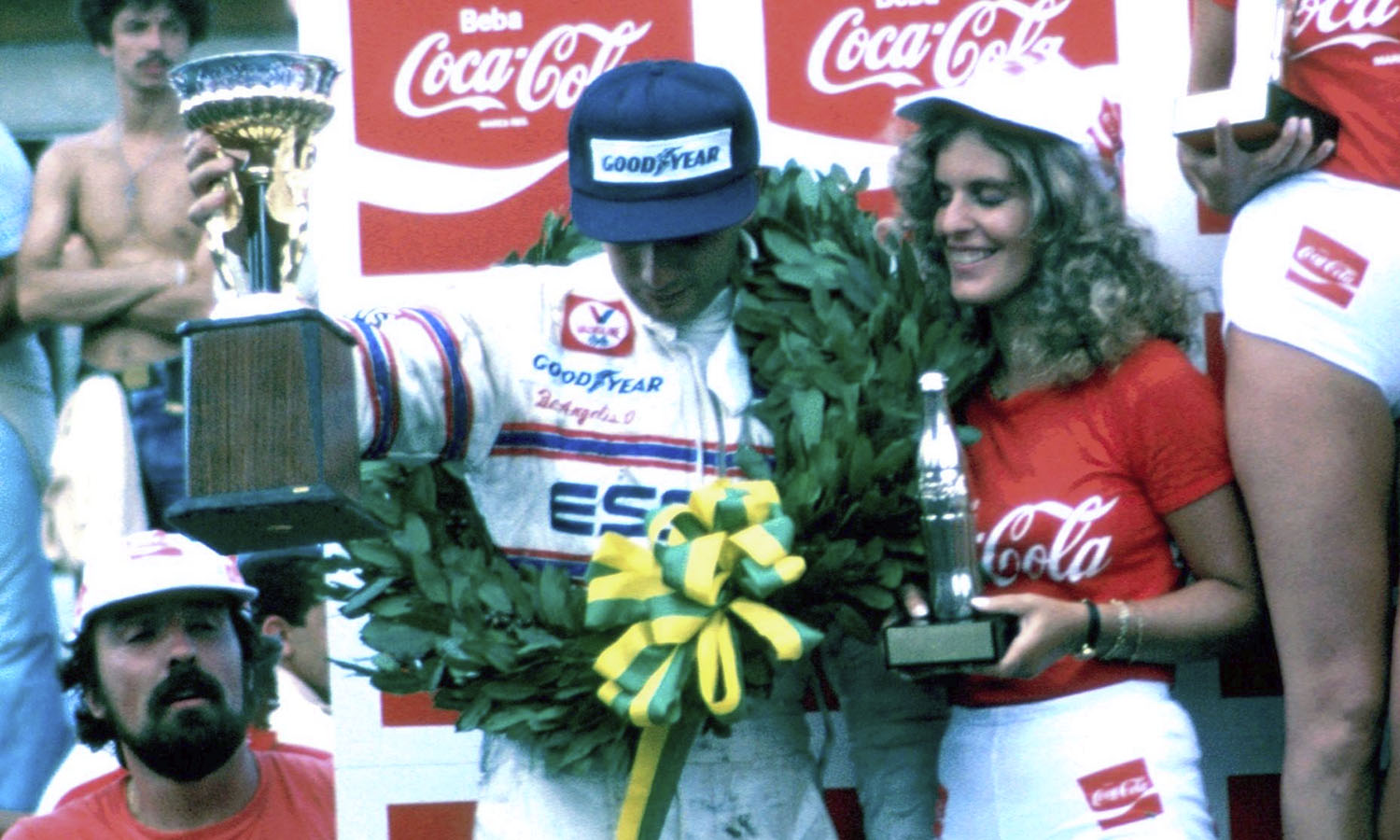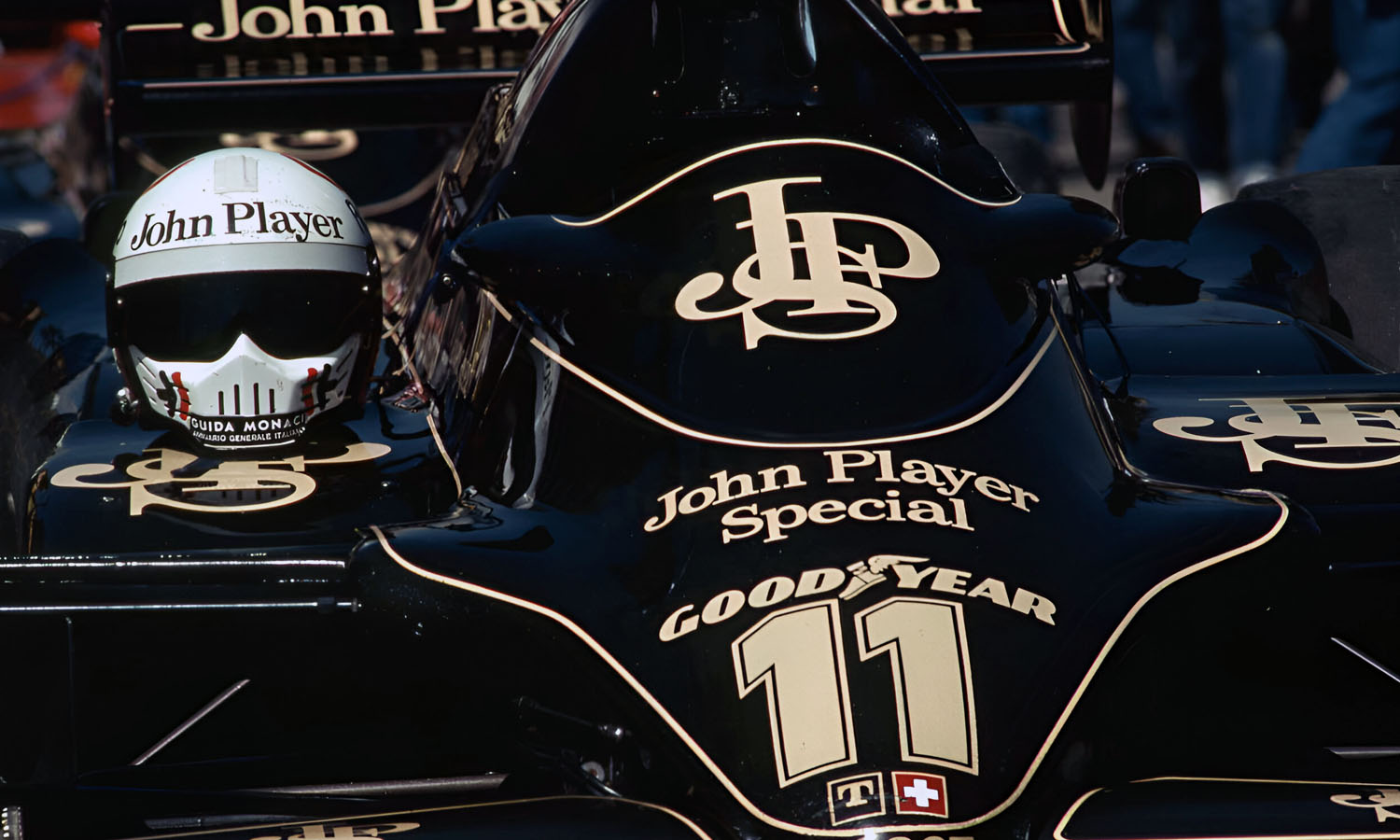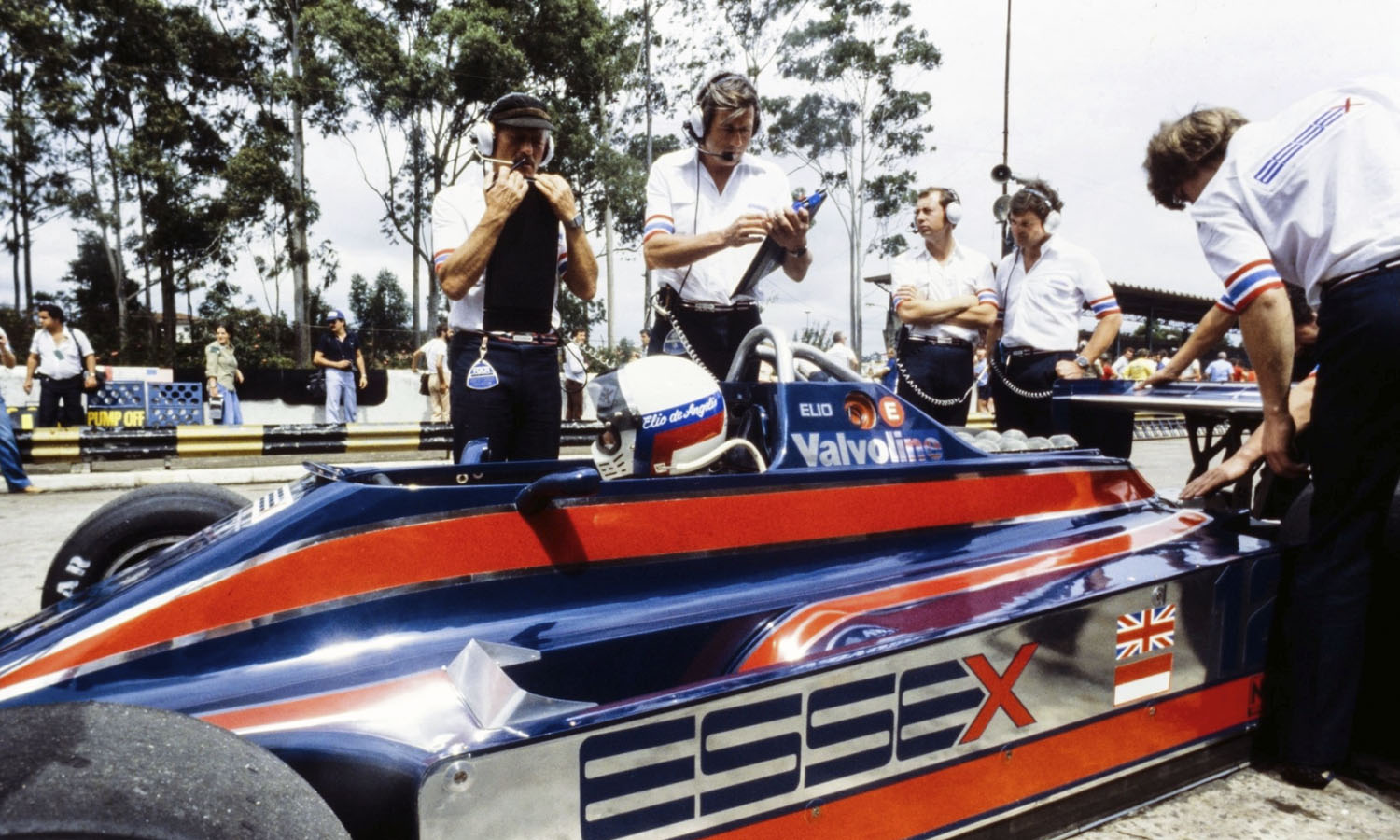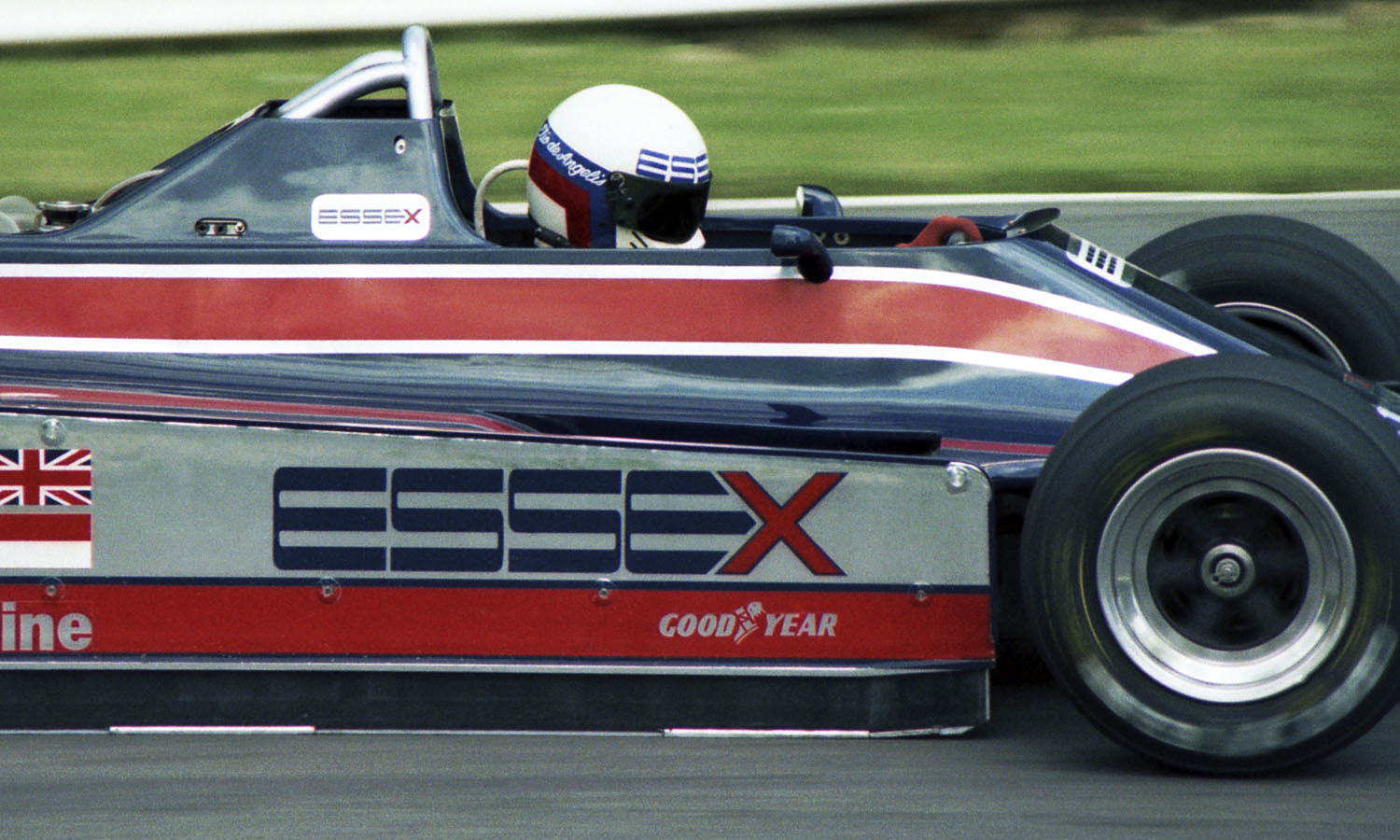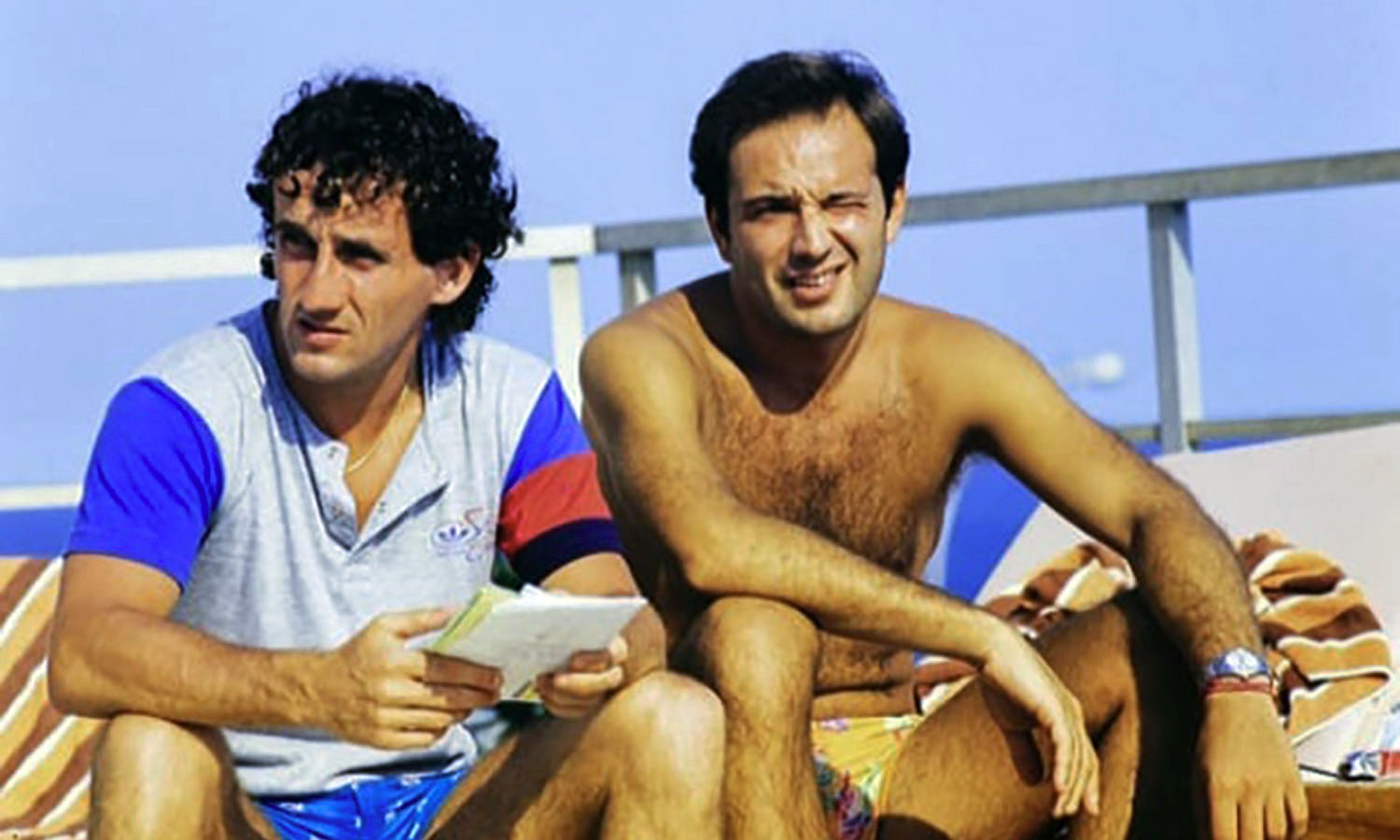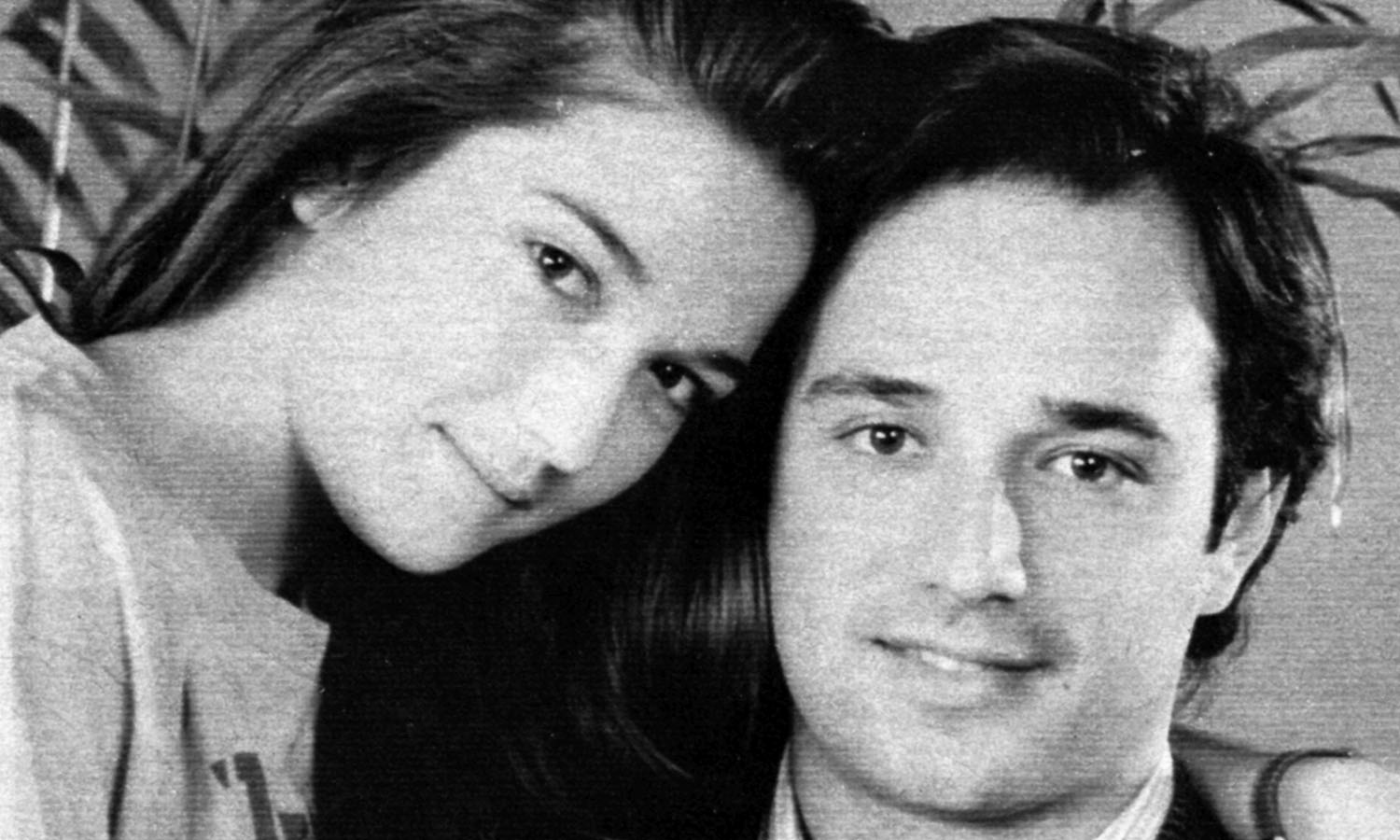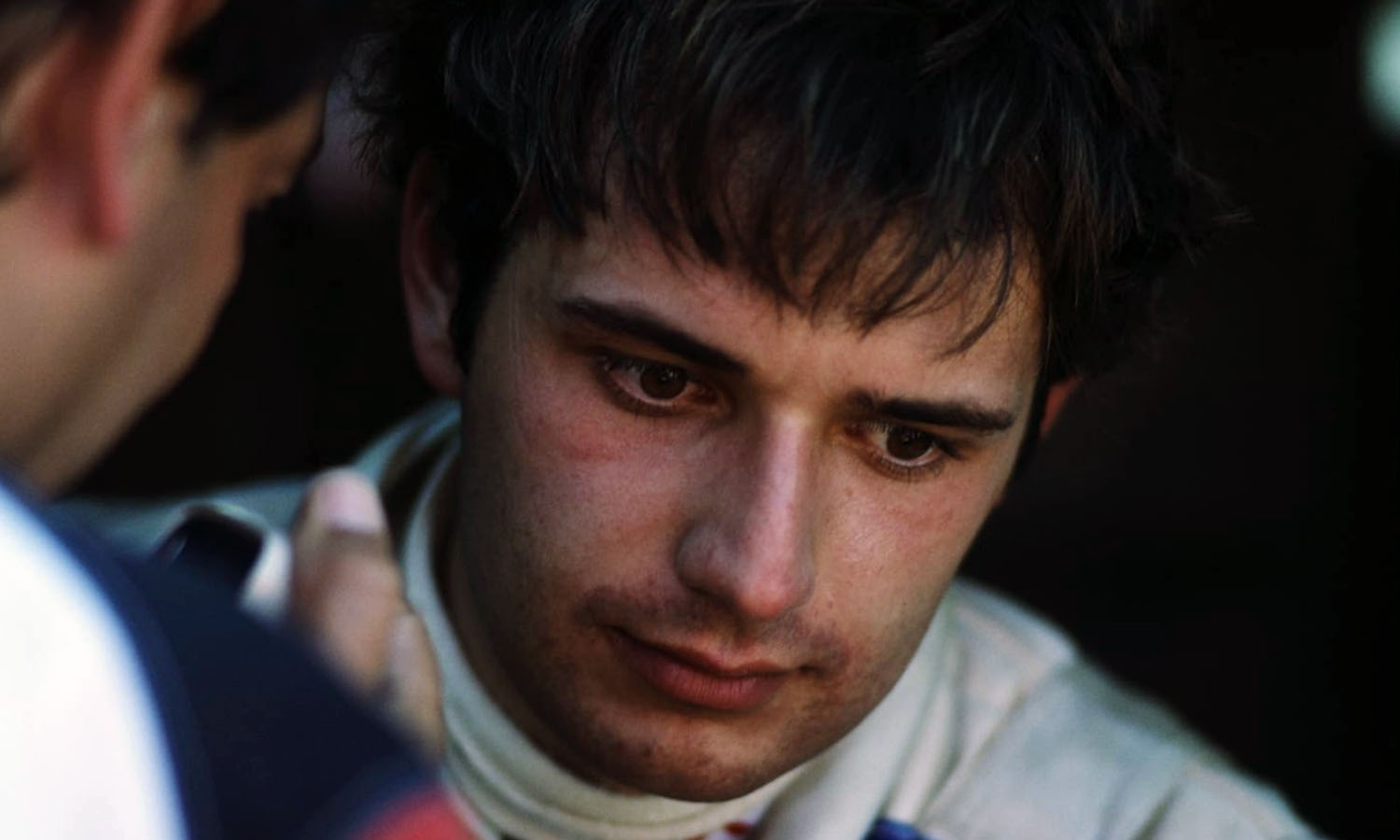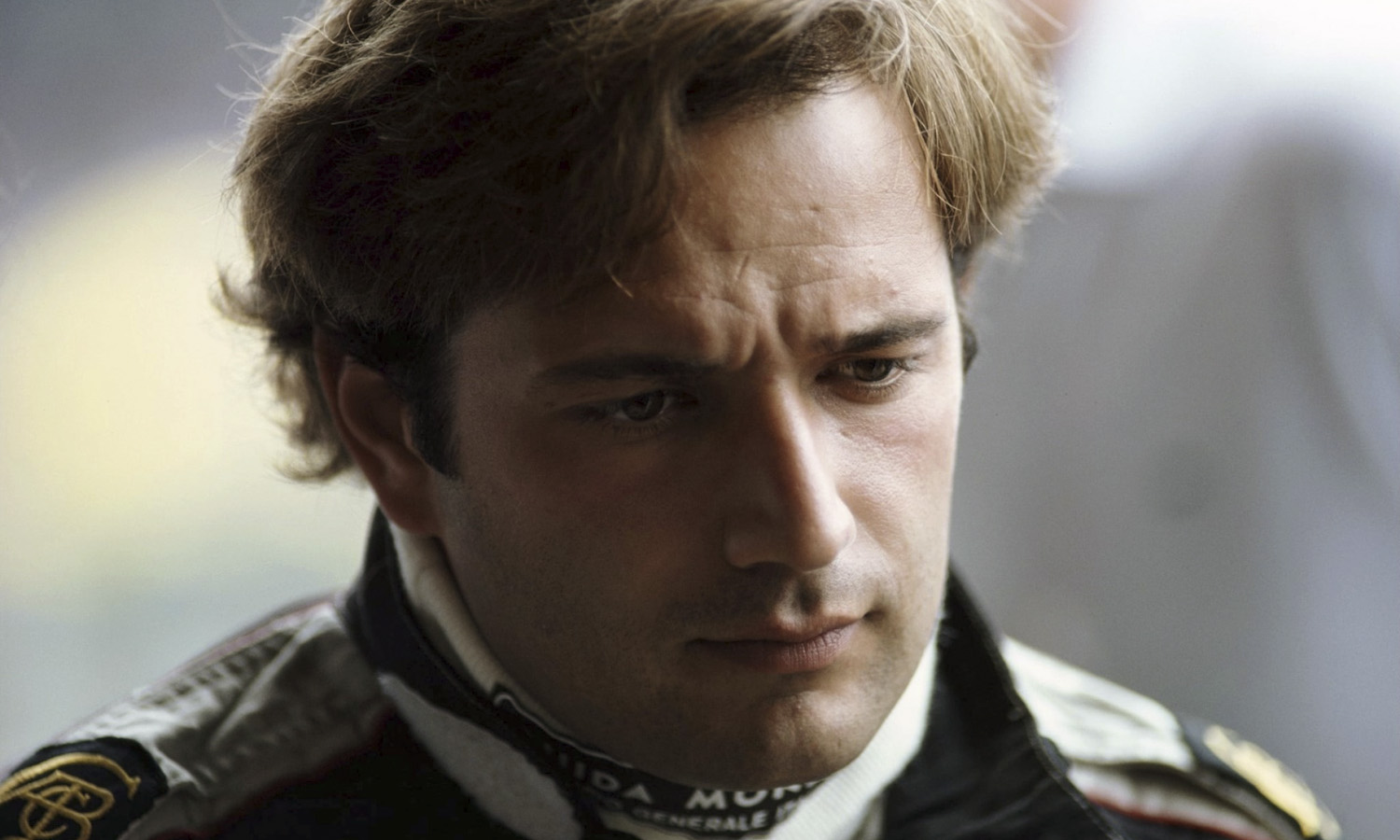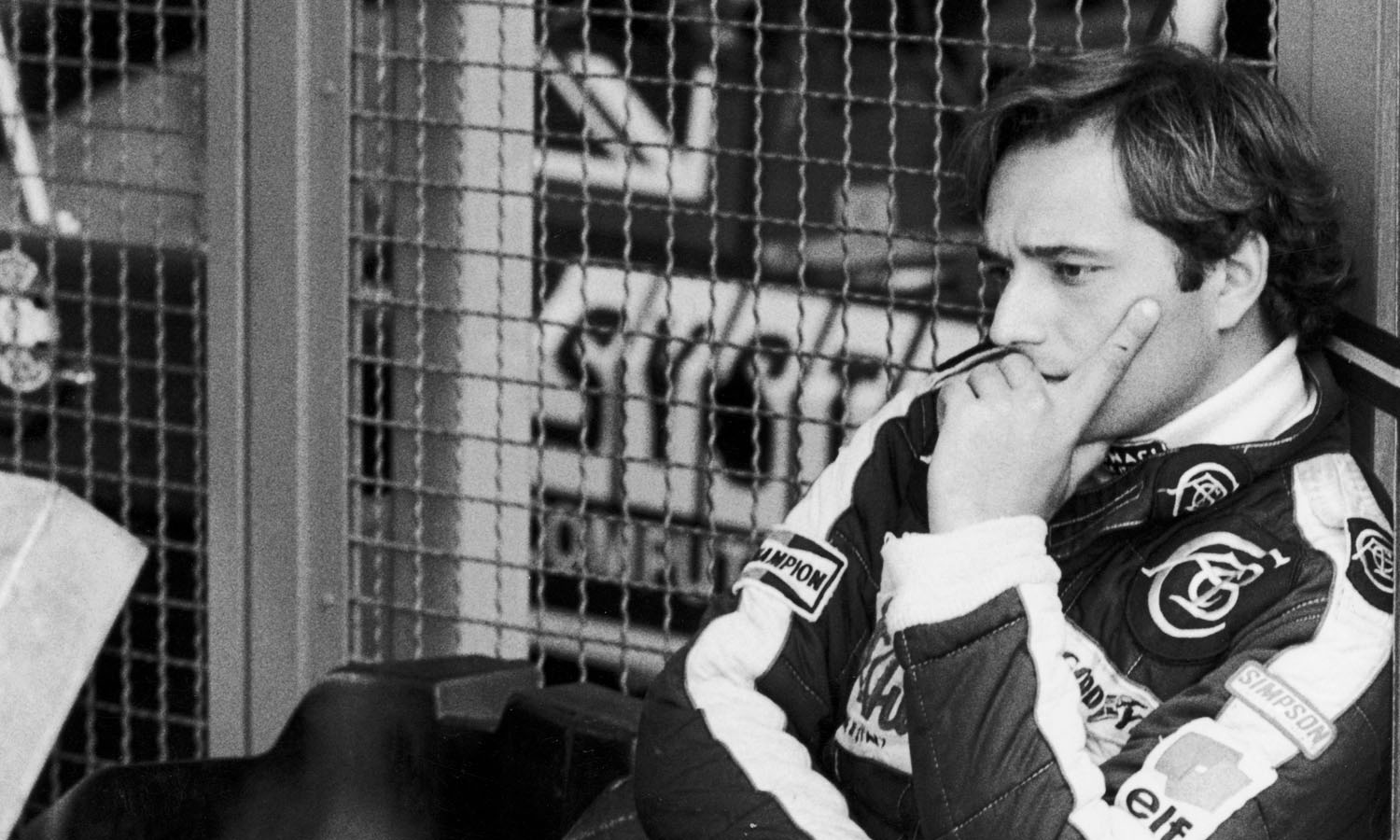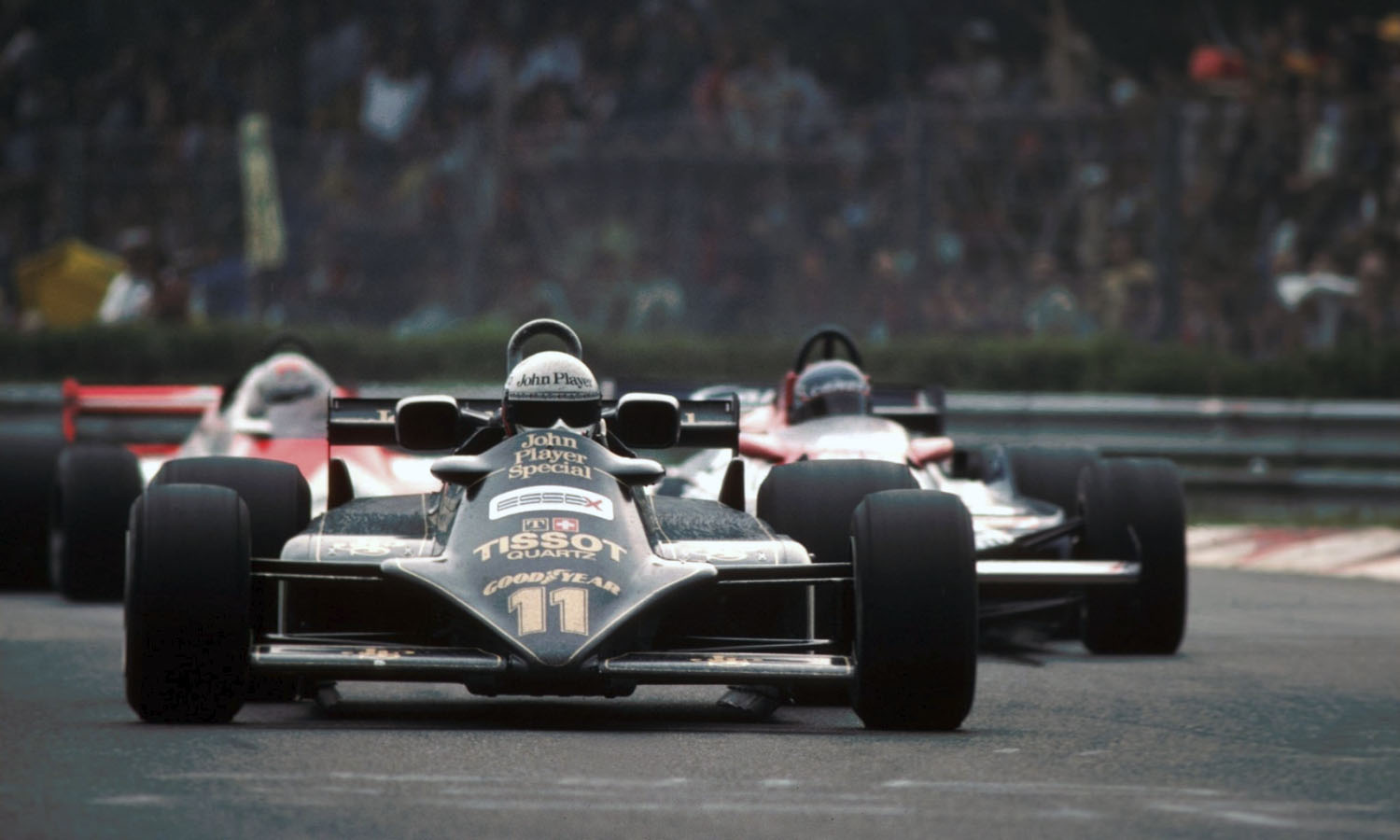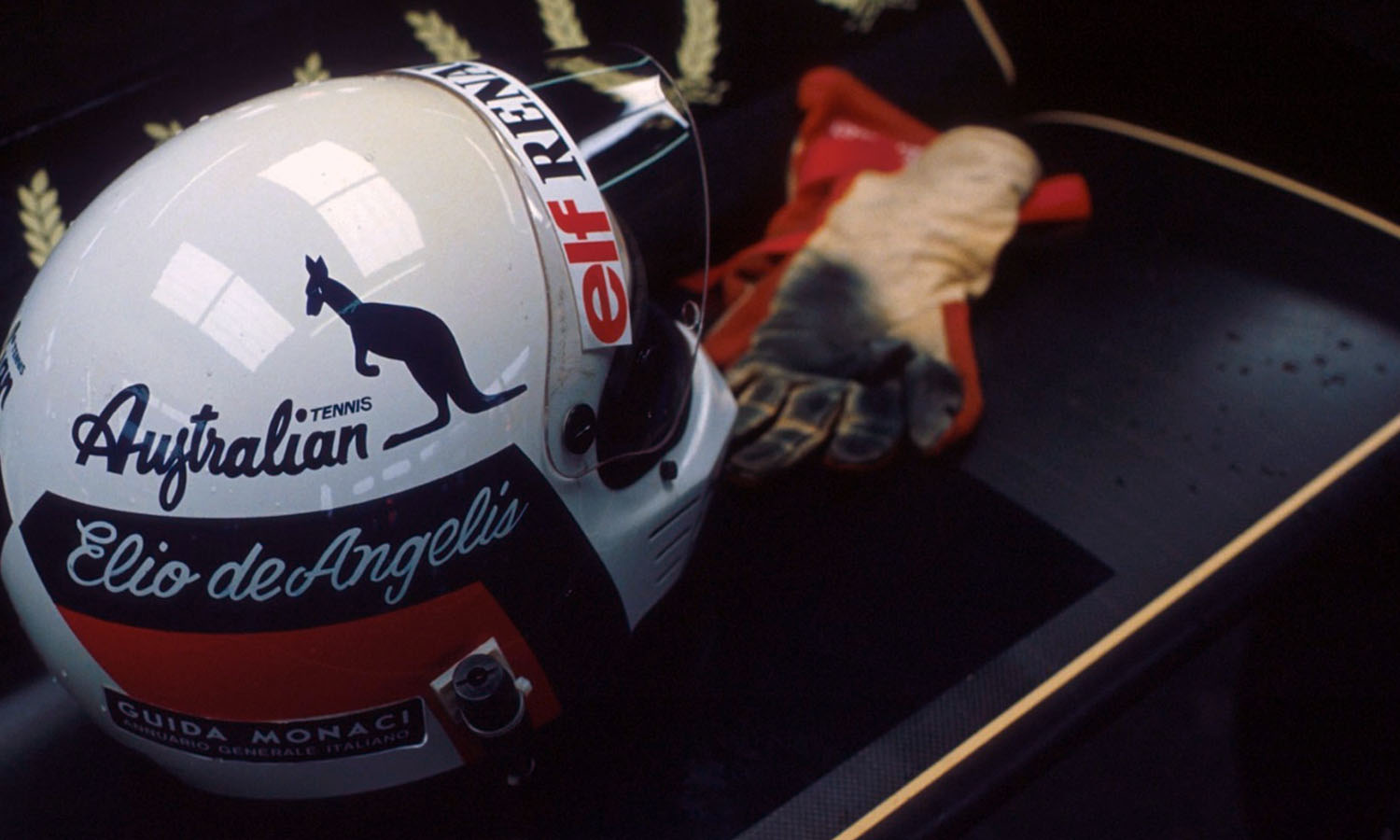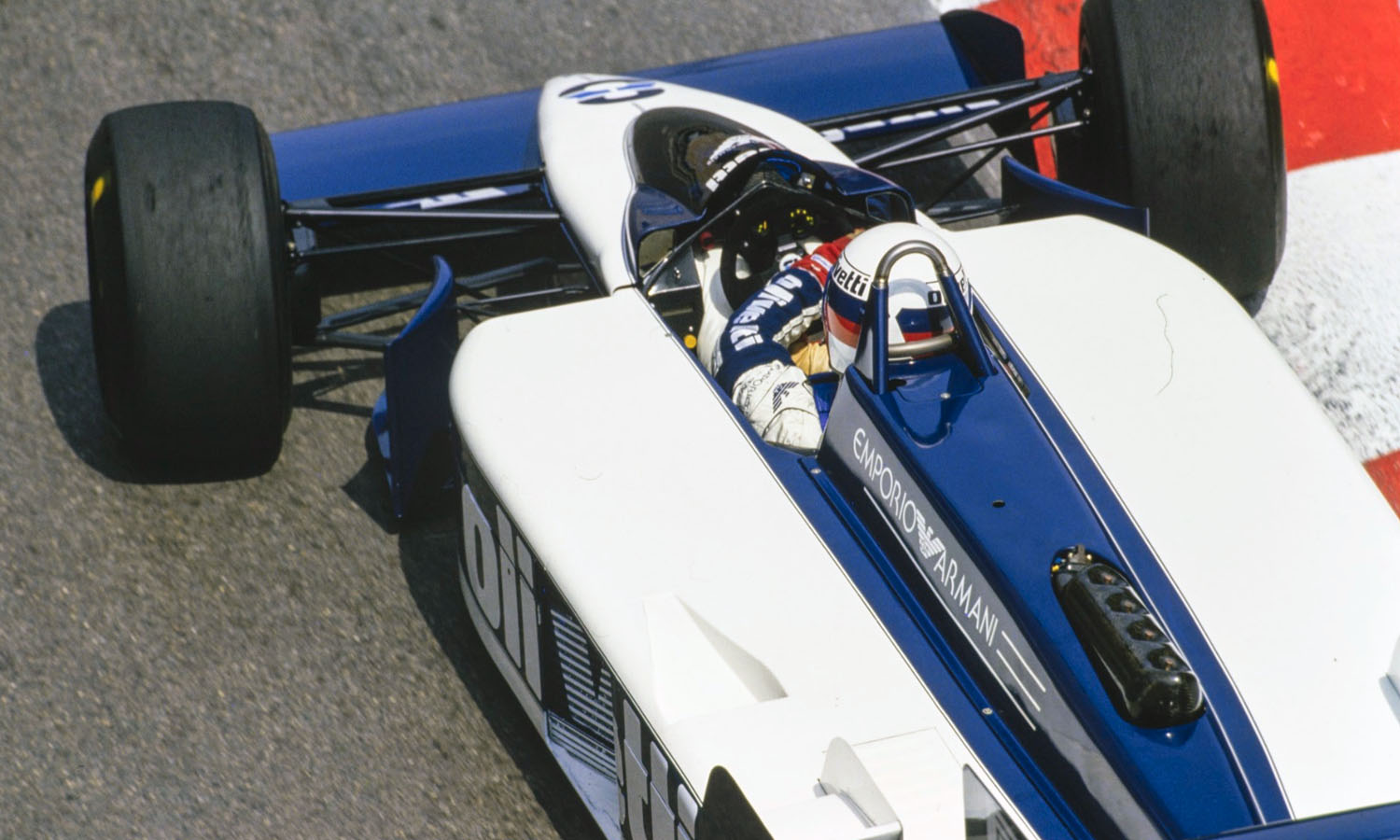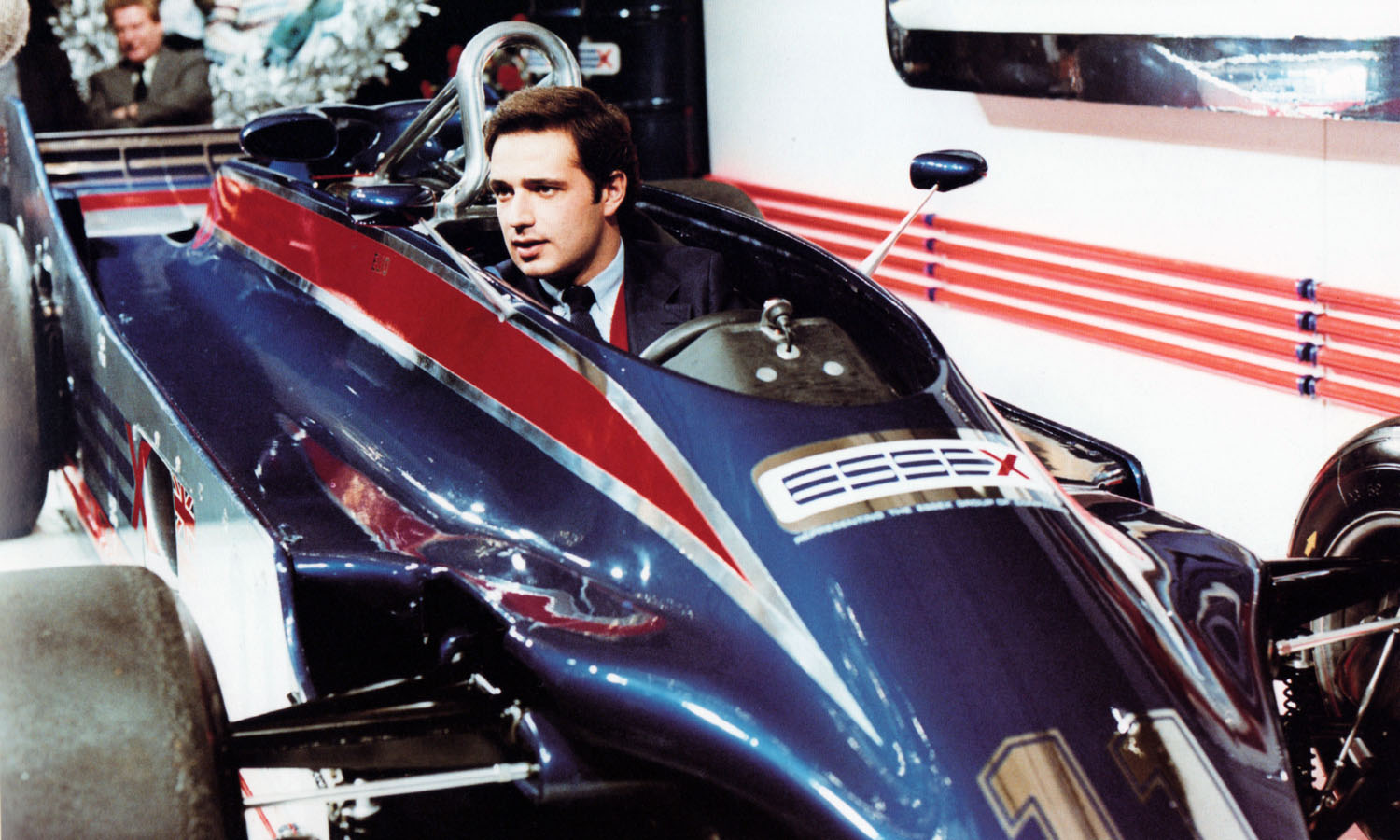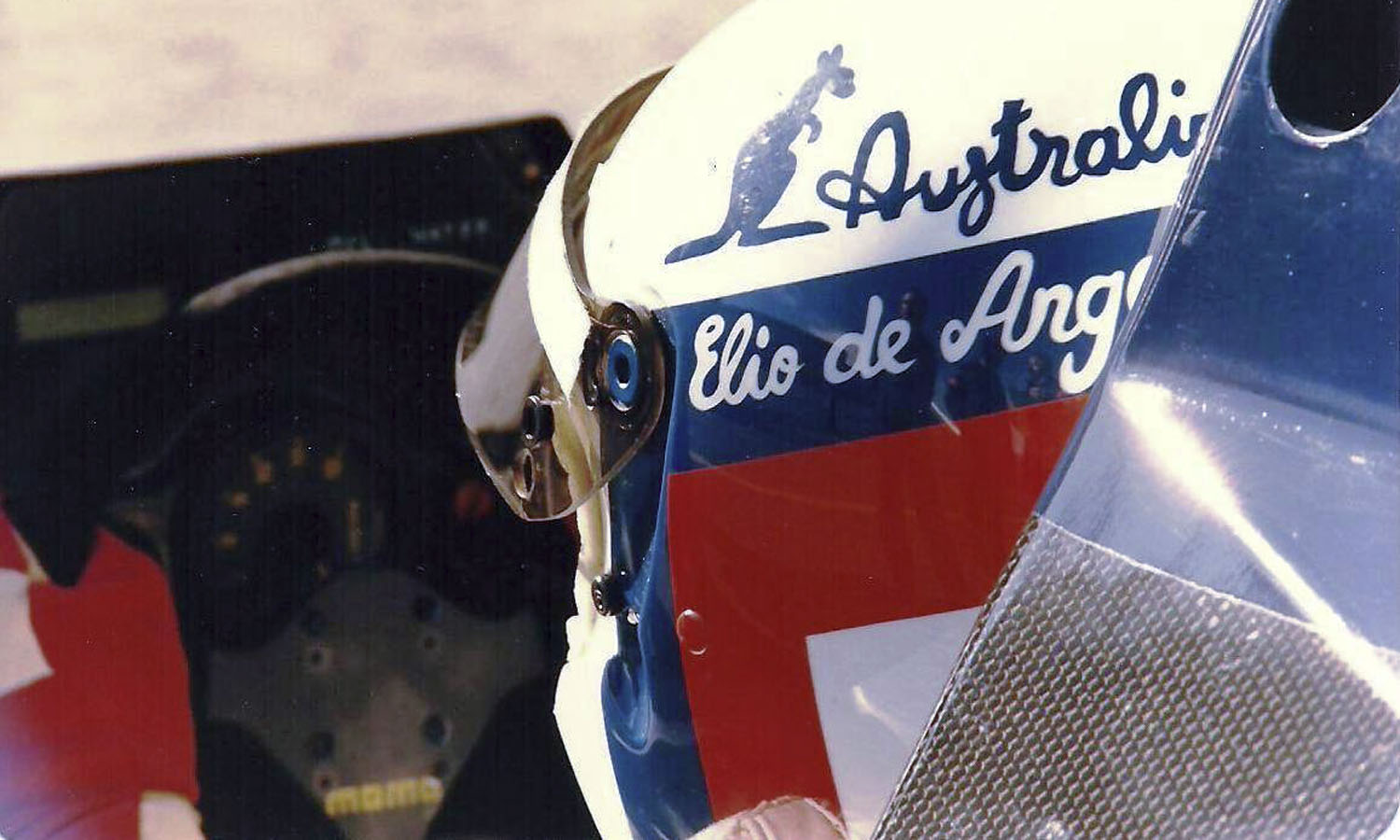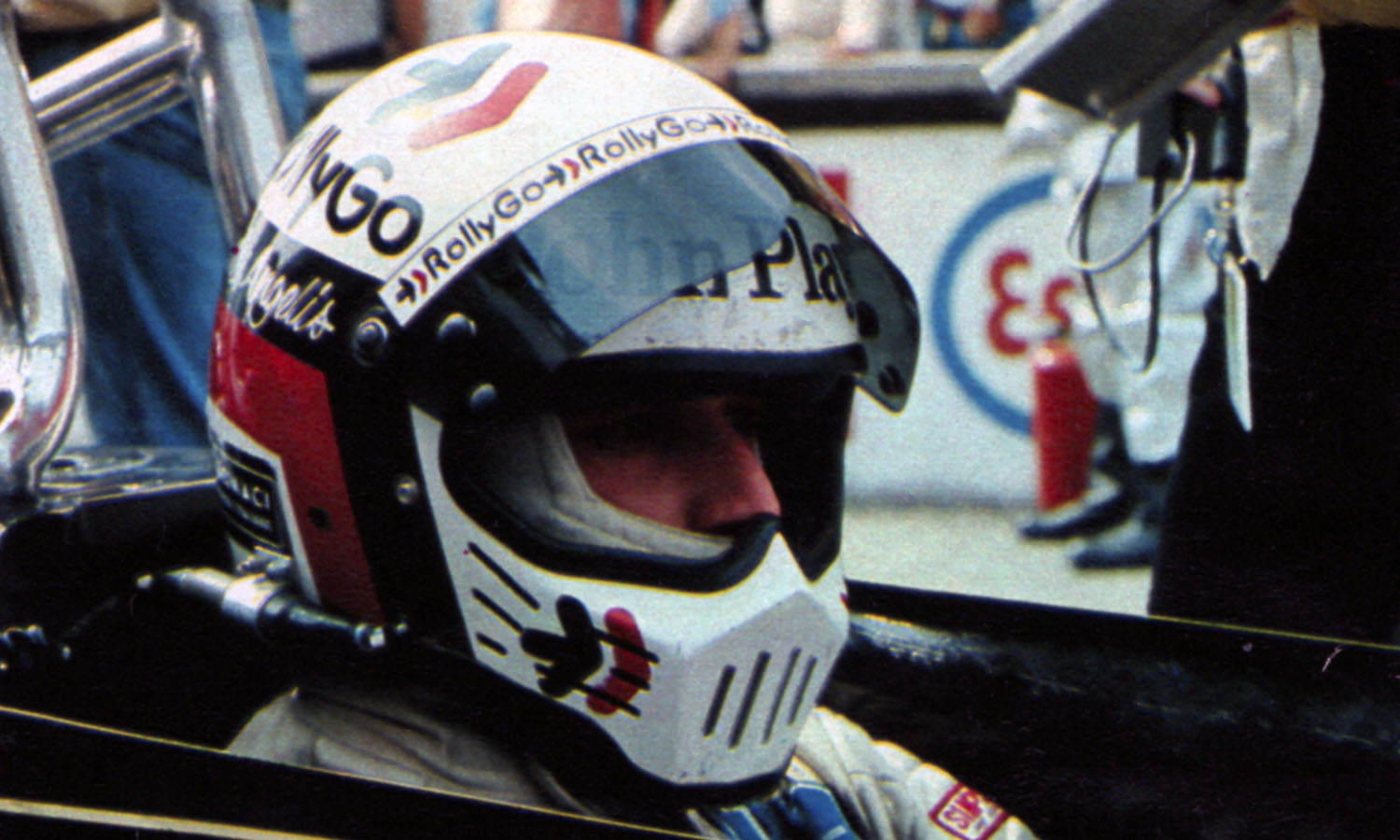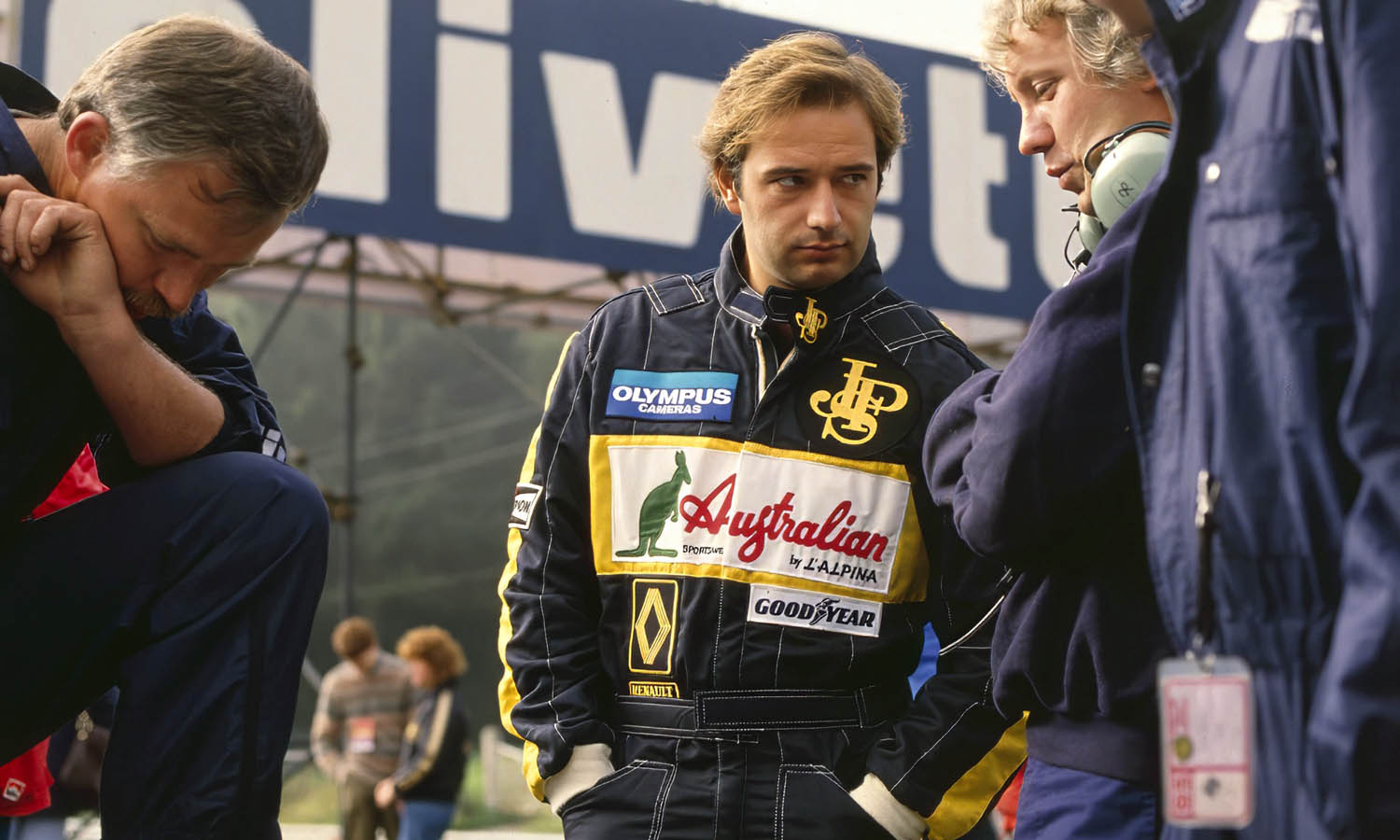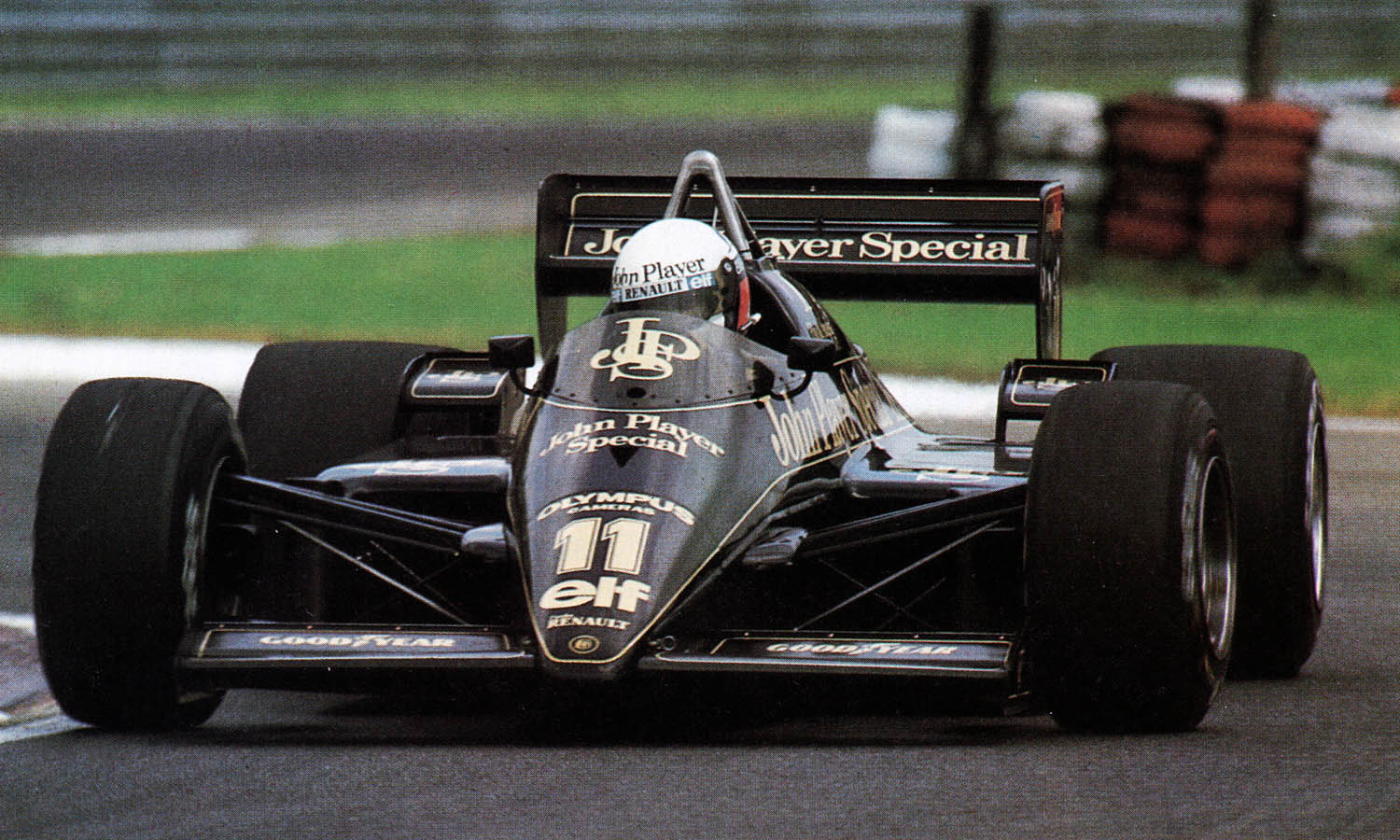This intrepid teenager who scoured the karting tracks around Rome under the gaze of Giulio, his father, ten years ago now has already crossed the threshold of experience and memories. Elio de Angelis, however, did not age prematurely. Today, in this black overall which accentuates the contrasts, he seems, having exceeded by a year its own quarter of a century, to have been spared the inexorable sequence of time…
Translated by this website
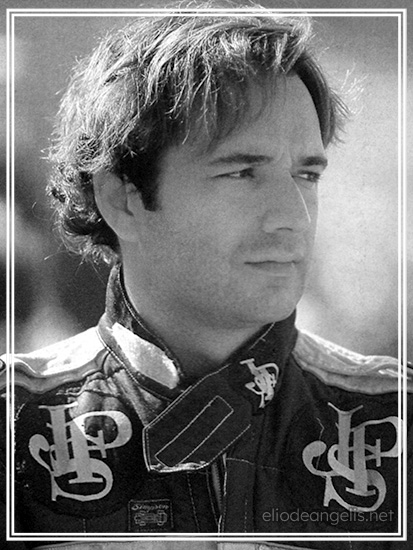
When he compares photographs of him, from his beginnings in karting to Formula 1, Elio de Angelis has no reason to find himself very different from what he was, outwardly speaking at least. The others don’t see this attractive Italian so much changed either. Impossible to admit, for example, that his features have hardened. Elio de Angelis walks with a candor identical to that of his first steps in Formula 1. He also displays, perhaps, a certain detachment which does not mask a great fury to impose himself, this famous “rage to win” which inhabits the exceptional champions. In short, Elio remained de Angelis by irresistibly climbing his ascent slope. His results, based on brilliance and regularity, plead his cause as a driver. But what the man remembers from his entire career as a major sensation, absolute even, is his meeting with Colin Chapman during practices for the 1979 British Grand Prix at Silverstone in a secluded corner, behind the pits. “I qualified between the two Ferraris at the time, behind Jody Scheckter and ahead of Gilles Villeneuve. Chapman appeared in front of me, congratulated me and immediately asked me my intentions for 1980. All in a few brief words. I had no time to think, I was so impressed.” His destiny was therefore decisively played out on July 13, 1979.
Elio de Angelis was however only one of the five names (the others being Nigel Mansell, Eddie Cheever, Jan Lammers and Stephen South) that the Lotus manufacturer had “in mind”.
And it is easy to imagine, in hindsight, all that Chapman had sensed in Angelis. He dreamed for him a future in the process of fulfilling himself. Chapman, the fact is established, has never regretted his choice. And Elio?… Immersed in the game of multiple solicitations, occult outbidding, negotiations underhand, he has never regretted anything either, even during the worst vicissitudes that hit the John Player Special team. “It takes all this in a man’s life to progress…” he said in a calm voice. The great strength of Elio de Angelis is to have followed his own line by overcoming all the obstacles and avoiding all the chicanes that dot a young career. He never gave in to the accessory. He never let himself be distracted by the superfluous. Nor be dazzled by mirages from elsewhere. Nothing, however, had spared him. Nor the sadness of the passing of Colin Chapman. Nor the torments that overwhelmed Lotus. Nor even the periods of doubt and questioning that assail a Formula 1 neophyte and a leading team. This young first Italian succeeded, prosaically, in coming to maturity, rather in blossoming, without losing any of his natural elegance or delicacy. He is now one of the ultra-restricted elite of drivers that we would like to snatch at the price of gold, at an almost exact assessment of their high class. This kind of compliment, Elio de Angelis receives it with a measured smile. In a second, he forgets his instinctive reserve. “Lotus is my second family…” The flash of happiness that lights up his eyes is not a mind invention.
In truth, Elio de Angelis is happier than any other driver to have conquered a place of choice in the sun of Formula 1 because, a priori, he seemed doomed to an existence so easy that he was hardly suspected being capable of such internal rigor. About him, appearances, banal but verified observation, its often misleading. When asked what he would have done with his life if he hadn’t succeeded in winning in Formula 1, he calmly replies: “I never considered it”. He had to overcome the prejudices that preceded him. This difficult world of Formula 1 does not accept those who venture there on their own gifts. Elio knows it. He never said anything about it, even if he suffered more often as an Italian attached to the most prestigious English team, he was condemned to fight, in priority, for himself. For the satisfaction of asserting himself as a transplant recipient. “I had grown up with admiration for Jim Clark. I was ten years old when he died. Afterwards, I read everything about him. This man fascinated me. He was my intimate and secret model even before the contact with Colin Chapman. I opened about it frequently with Colin Chapman but, ironically, he didn’t like to evoke Clark’s memory or exploits very much. I had touched a sensitive point…” He whispers delicately. He had awakened an old pain, one of those sorrows that never fades. Subsequently, in the heat of his apprenticeship, Elio de Angelis transferred all his faculty of admiration to Niki Lauda. And now?… “I only refer to myself…” He advances, his face serious. Not out of bravado but, what is essential, out of confidence…
He is completing his sixth consecutive Formula 1 season. What he has acquired over the years and from the Grands Prix, he evaluates it in full consciousness. On the positive side, Gérard Ducarouge speaks for him: “At 25, Elio has a unique knowledge of Formula 1, compared to his age. However, he is not yet at his peak. He has everything: youth, experience, talent. He has the potential of a world champion. It is up to us to provide him with the equipment worthy of his means and ambitions”. On the negative side, Elio de Angelis has a regret: “I competed in exactly six Grands Prix less than Nelson Piquet, who is six years older than me. And he has already been world champion twice…”
The big confession is dropped. Elio de Angelis is now at the rank where his entourage, that of his opponents like that of Lotus, installs him. In global orbit. The dream is not out of Elio’s reach. And if he analyzes himself by comparison with Piquet’s record, it is to reveal himself even more clearly: “A motivation is preserved. It is a matter to be settled with yourself. You can’t cheat in this sport. I don’t want to delude myself. My experience in Formula 1 would be of no use to me if my character pushed me to be satisfied with my present state. I can’t imagine finishing like an old boxer or an old driver, being pierced with blows to both physical and moral. The desire to run to the maximum of one’s resources, the renewed ambition of a supreme objective, the pleasure of progressing or enriching yourself with new sensations.

These are all human and sporting data that are maintained through the choice deliberate that one makes of his major options. A guy like Nelson Piquet is certainly more saturated than me. And the remark fades away like an unanswered question.
This projection of himself into his own future, Elio de Angelis considers it as the last leap he has left to make. Having discovered the mysteries and pitfalls of Formula 1 at a very young age, this quiet Italian never expresses himself except on the basis of his personal experience. What he knows, he learned only by himself. He set himself a big challenge. “What matters in our business is the opportunity to have the best machine or, at the very least, one of the best of the moment. For us drivers, more than for any other kind of sportsman, time is running out. At 38, I will not be as comfortable in my own skin as I am today. And in ten years, I want to have fully seized my chances…” he says, with the serenity of the strong, his eyes fixed on this precise deadline. His long membership in Lotus requires him – he is impregnated with this – to win this bet on adversity. And the look he casts on this “black and gold” phalanx, from Hazel Chapman to Peter Warr and Gérard Ducarouge, through all the collaborators, is not that of an ordinary mercenary of the circuits. “After all they have done for me, after all the efforts, in the good and the… not so good hours, I owe to them to become, one day, world champion. All these years spent together were neither lost nor wasted, I know that. Everyone at Lotus has been wonderful to me. Our working relationships were also friendship relationships. Links have been created. Okay, it would be exhilarating for me to snatch the world title in absolute terms but, beyond this performance, the important thing is to conquer it at Lotus. Especially for Lotus and in recognition of a lot of things. The good fairies who bent over the Roman cradle of Elio de Angelis on March 26 1958, really brought him, in addition to comfort and all possible gifts, a rare nobility of soul. And this idealization of his profession-passion is one of the hidden sides of his motivation.
These same fairies also offered him, in refinement, a patience that should not be confused with any resignation. Elio de Angelis acknowledges this with modesty: he had to wait a while before feeling his best in his driver’s suit, before reaching his optimal speed. “I still waited forty Grands Prix before winning one, on August 13, 1982 at Zeltweg, in battle with Rosberg. That day, a curtain was torn in front of me. I had a better understanding of the reality of the competition, in all its complexity. From there, I understood that, from then on, nothing would be like before for me. Basically, the true price of a victory is not measured in the euphoria of the moment and in the material satisfaction that follows. It is measured in the dimension that it gives, in this invisible threshold that it allows to cross. That being the case, we see things and people in a different light. We are invested with additional responsibilities. And we have lost the right to disappoint,” he says, without any trace of haste in his presentation, visibly savoring the pleasure of retracing everything he has gone through and felt, in pink as in gray, in the kaleidoscope of his career. Elio de Angelis had made Lotus’ return to the heights a reality. He was as much the instrument as the symbol of the renewal of Lotus. He had restored to Colin Chapman the taste of his past splendor. And in a way, he was charged with an additional mission…
Certainly, since August 13, 1982 Elio de Angelis has not reaped all the successes he would have liked and of which he was as worthy, indisputably, as his machine. Failing to be the man of brilliance, his career development has taken place in his image, much more subtly, on the razor’s edge of reliability, brilliance and regularity. A driver who finishes in a very good place in the Grands Prix, who accumulates points and who frequently climbs on the podiums, builds his record with great merit and presents himself in the eyes of the public as a winner of the second type. He explains this realistically: “When you start out, in racing in general and more specifically in Formula 1, you have only one obsession: to go fast and be the best almost at all costs. Obviously, it is an elementary stimulation, even the common denominator of all drivers. Above all, it is not a question of stopping there, of confining yourself to these primary positions. Today, I know myself better, I know that I can go to the limit without taking insane or exaggerated risks, for me as for the machine. I used to think I could fix my car on my own, based on my impressions alone. This presumption, I got rid of it. I talk a lot and I listen even more; I dialogue much more with my family than in the past. And I believe in this way to be logical with myself and with my profession…” With this introspection, his forehead is crossed by a wrinkle of seriousness. His approach turned out to be implacably logical. In this Elio de Angelis-Lotus J.P.S. duo, the man and the single seater go hand in hand.

And when this calm Italian recognizes “having learned the price of reflection”, it is necessary to understand, beyond words, that he has crossed a threshold of no return in his overall approach to Formula 1. He has the age and the means of his great ambitions. He expresses it out of pride, to measure the progress made. His will to succeed is also clairvoyance and method. Elio de Angelis is not afraid of anything. Not even accidents or death. “My great love is racing, above all else. I will not sacrifice my job for a woman. No passion is as strong in me as that of racing…” He spoke spontaneously, without there being any need to train him on this delicate subject of all. This man who thrives in speed does not cheat with the order of values he chooses for himself. No one around him stood up against his determination. And yet, he has projects, in the long term, full of head…
Once he has put away his helmet and suit, Elio de Angelis will embark on another trajectory of existence. He’s already planned it. He reveals it. “At the moment, what I earn from racing, I invest in real estate business in Sardinia, with my younger brother Roberto. One day, I will fully immerse myself in this environment. No hurry. First of all, I have to achieve my goals as a racing driver.
How can we consider doing anything other than racing without having taken all the joys possible from it?” If he questions himself in this way aloud, it is to better express his certainty of providing himself, one day, with all the answers he wishes and that everyone around him hopes for. He has never had, since his birth, what is modestly described as “money worries”. It is precisely for this reason that he has always shown himself, under easy appearances, extremely demanding with himself.
The path he followed to enter Formula 1 and then to reach the top was never a free choice. “I wouldn’t be able to fight well, he whispers, if I dragged within me a frustration or a certain disenchantment…” He donated his person, his youth and his enthusiasm to racing. And if he draws up a career plan beyond the paddocks, it is only to show that he intends to remain master of his destiny. The opportunities to leave Lotus had not spared him. “I pushed them away”, he observes, “because I have something to achieve with them.” And at the back of this stand where he has discreetly taken refuge, his eyes are carried with their eternal flame of melancholy, on the swarm of men in black who are silently busy on the Lotus-J.P.S. nº 11, the number of his great happiness. He entered, one day, in this black commando, he grew up there, he flourished there. And, we have no doubt, he will stay there for as long as necessary…
Of him, of this somewhat enigmatic boy, Gérard Ducarouge, who knows a lot about men and drivers, often says “that he is more of a gentle man than a gentleman”. He would have betrayed himself by denying his Latin personality in a typically English team. “Elio is not spontaneous in detail or in communication. He is, on the other hand, in the main lines of the analysis of the behavior of a single seater. He speaks honestly and thoughtfully. It thus facilitates the work. Then it is he alone who does the rest …”
This portrait of him amuses Elio de Angelis. “When we measure the enormous work of engineers and mechanics, we have no right to be wrong. I know what they expect from me. My duty is to give them information…” he explains peacefully. He is certainly not the first driver to use this language. But his awareness of this evidence sheds more light on his style and manner. By dint of finishing Grands Prix in the points, he will perhaps enter the paradise of supreme consecration. This perspective comforts and stimulates him. “Yes, that’s right”. He acknowledges, as if his secret had been discovered. “I still give myself a lot of room for improvement. It’s not a question of time, but much more a question of circumstance…” He agrees to admit, in the same uniformly calm and measured tone that he never departs from.
Today, as it is, Elio de Angelis is a man who has arrived well positioned in his own dimension. For a long time, he was considered the archetype of these young boys filled with existence who embarked on racing more for the sake of fulfilling their idleness than for that of assuming themselves totally in a difficult profession. Racing is not just for those struggling to make ends meet. It is useless to ask him if he did not suffer for some time from being considered more as a young first of the circuits, a cinema hero at the limit, than as an authentic champion. This yesterday’s ambiguity of his silhouette, he sweeps it away with the reverse of a word. “Formula 1 is not cinema. And no track is like Cineccita”.
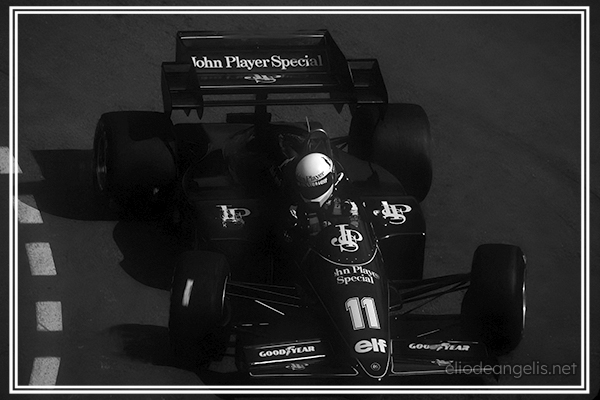
His natural elegance serves as his armor against the assaults of envy and mediocrity. He does not lock himself in a certain solitude out of contempt for his environment, but out of discretion and concentration. The character that he is, Elio de Angelis has chosen and formed by his own. Apart from that, he is not a man to be satisfied with compromises to seduce others.
And we come back to the starting point. One day, a teenager left his apartment in the residential district of Parioli, in Rome, to “experiment” with karting with the enlightened complicity of his father, Giulio. And if he has now become one of the very first drivers in the world, Elio de Angelis owes it only to himself, his relentlessness, his class, his vocation, speed and risk freely consented. If he had not devoted himself, body and soul, to this career as a racing driver, with all the dangerous hazards involved in an essential parenthesis of existence, Elio de Angelis would have let slip one of those great occasions of destiny that forge a man. And if, from now on, this boy to whom life has given everything is programming himself as a serious contender for the world title, it is because he has learned, in the solitude of his cockpit, the price of effort and constancy. “Do you think so?” He asks. Without skepticism or irony. This prince of speed does not always like to be updated. Let him lower his visor and look, away from all intruders, at his horizon line, just at the end of his hood. He sees his big dream there.
© 1984 Sport Auto • By Renaud de Laborderie • Published here for entertainment and educational purposes, no copyright infringement is intended


